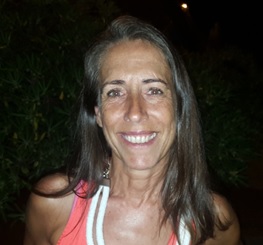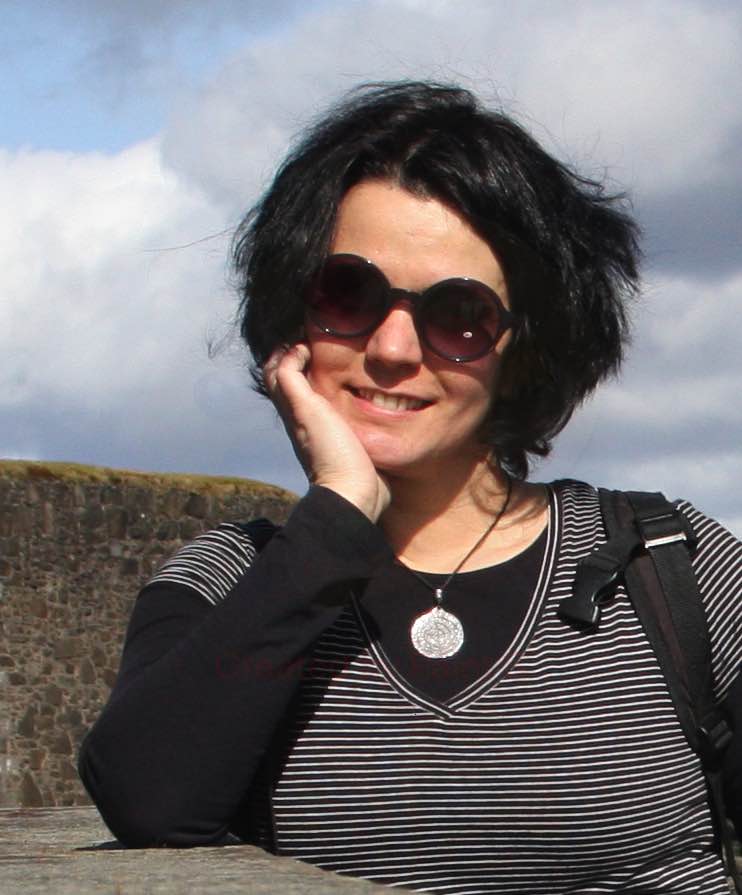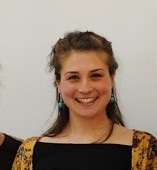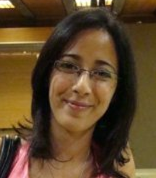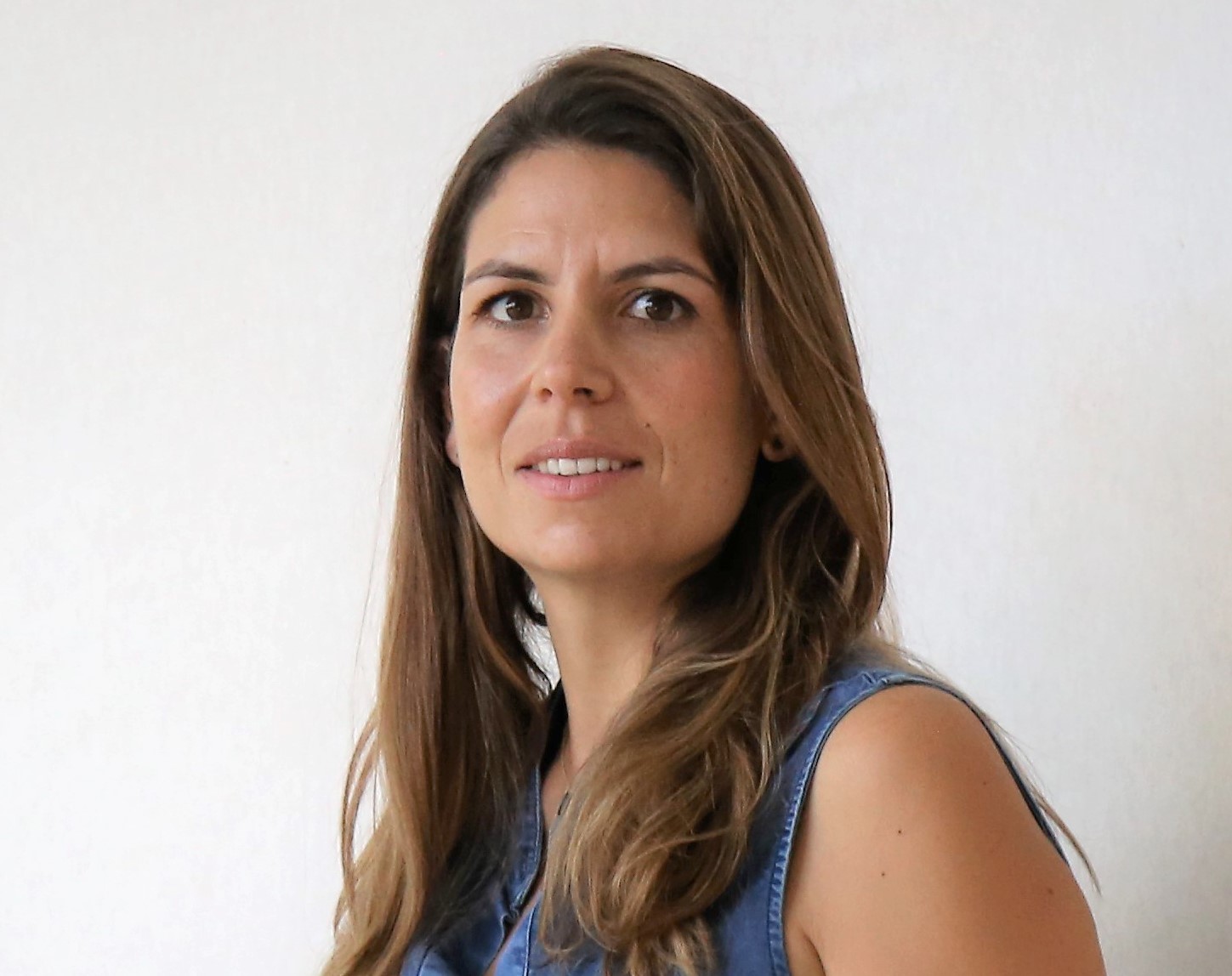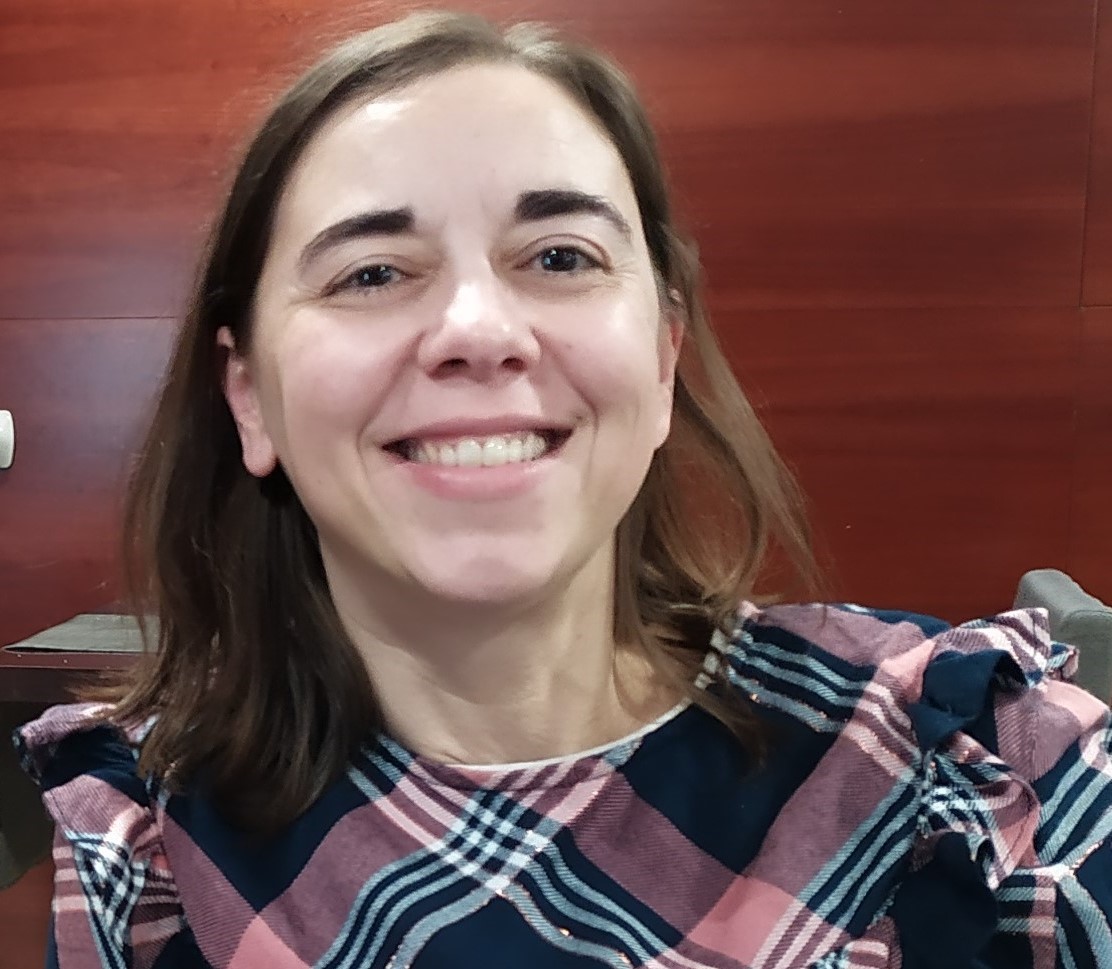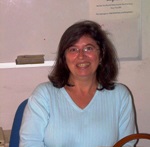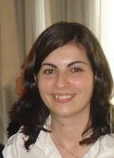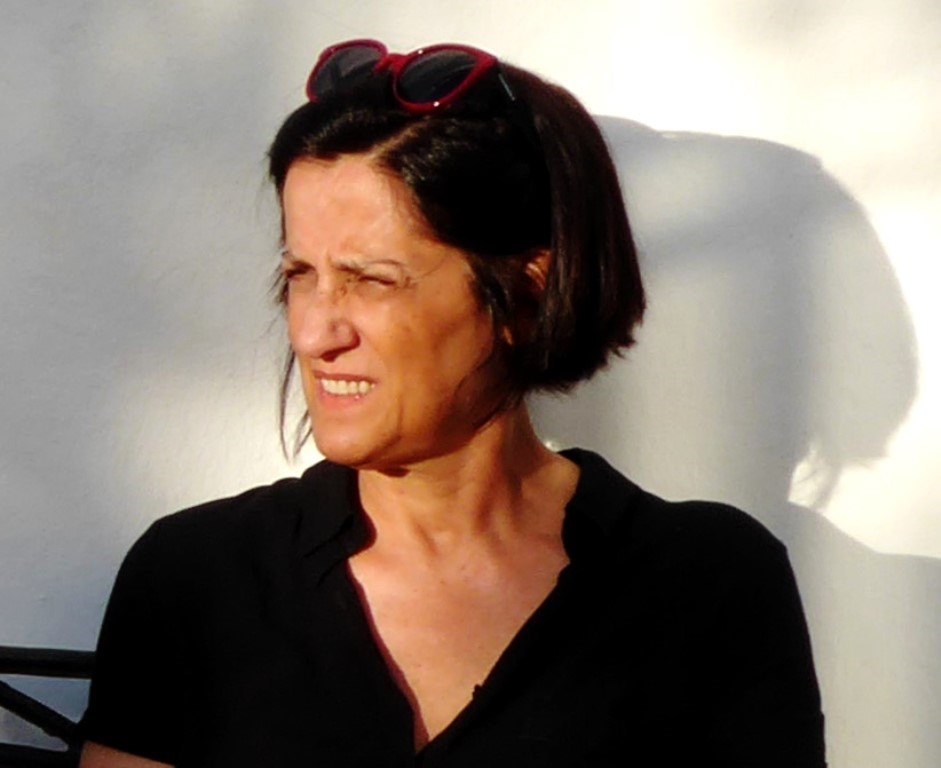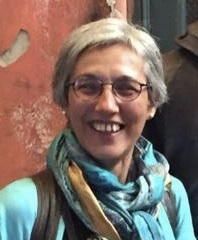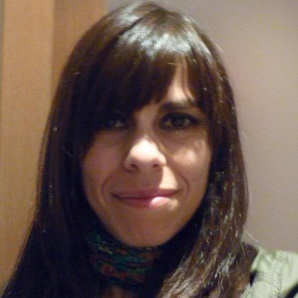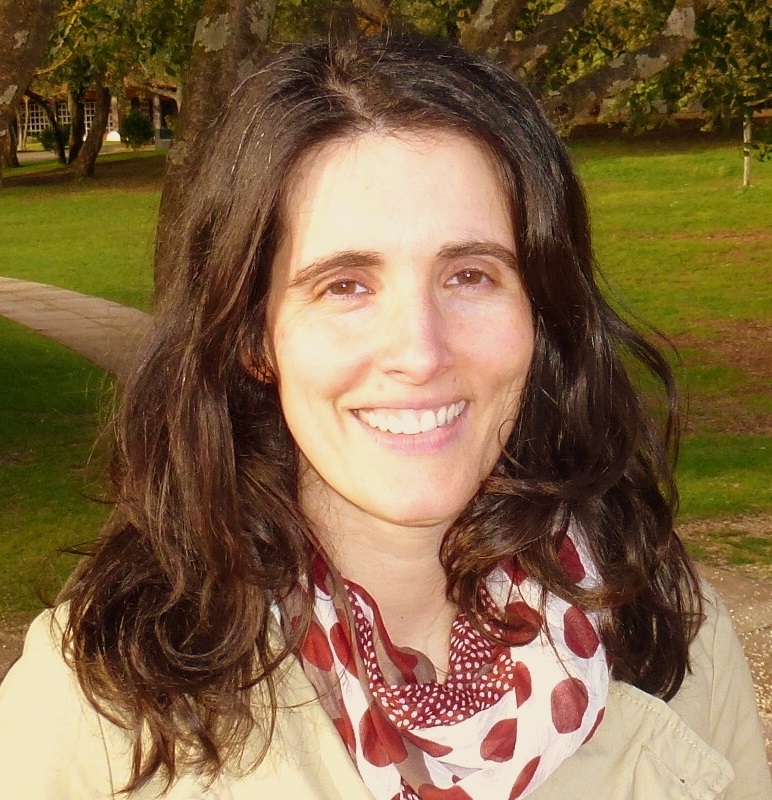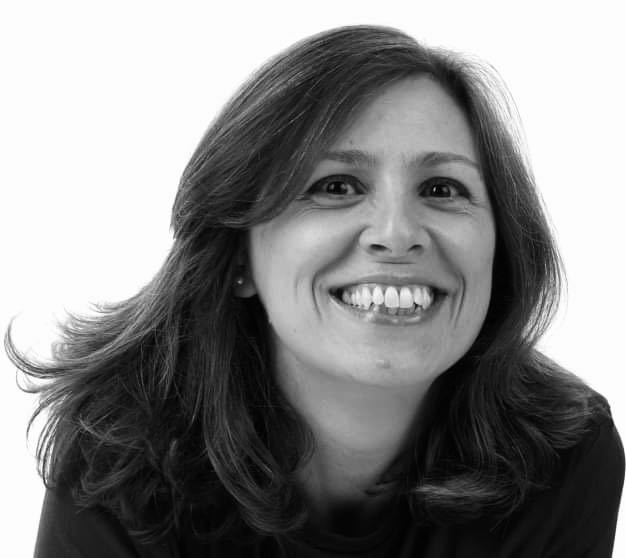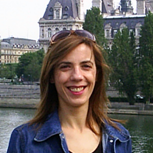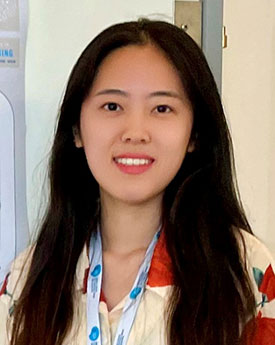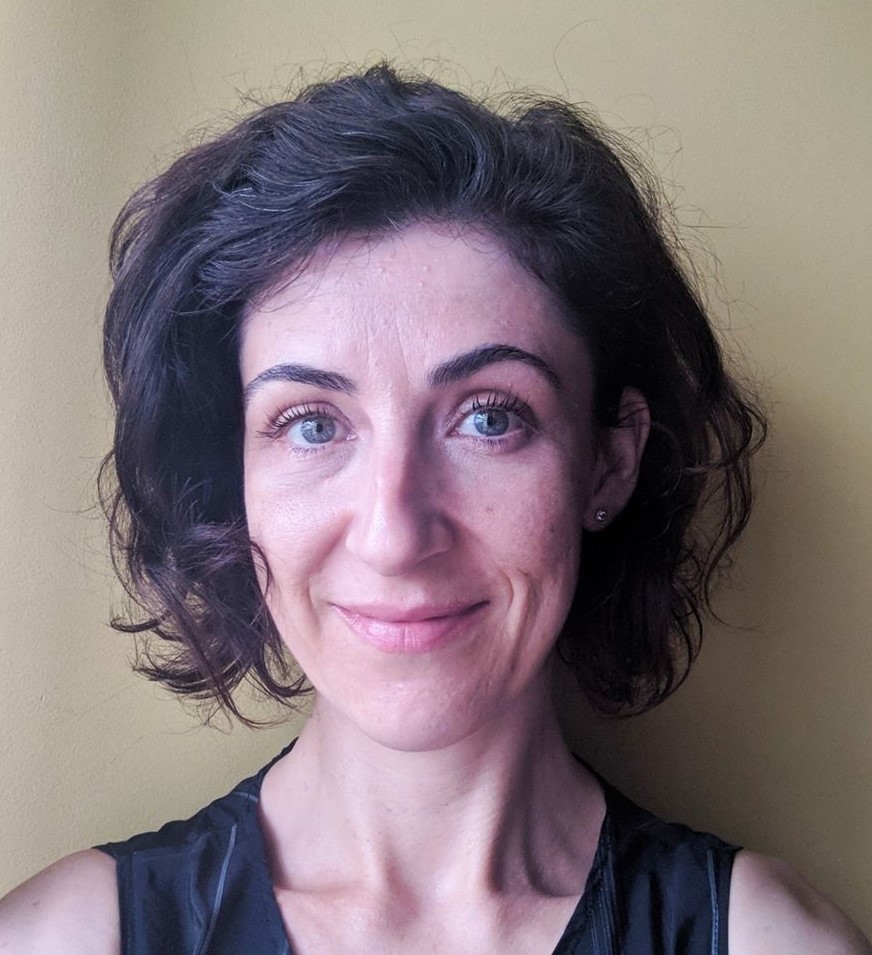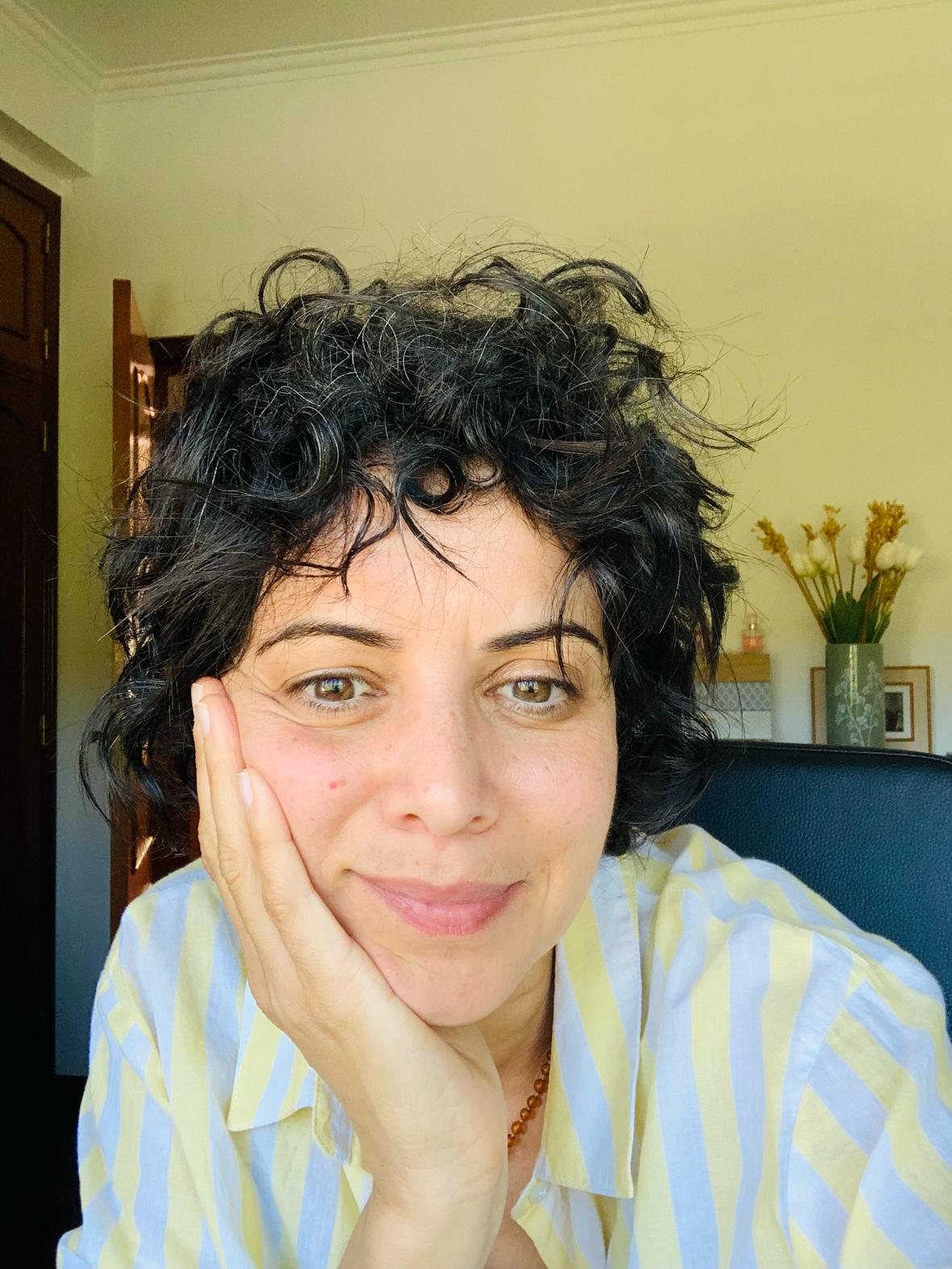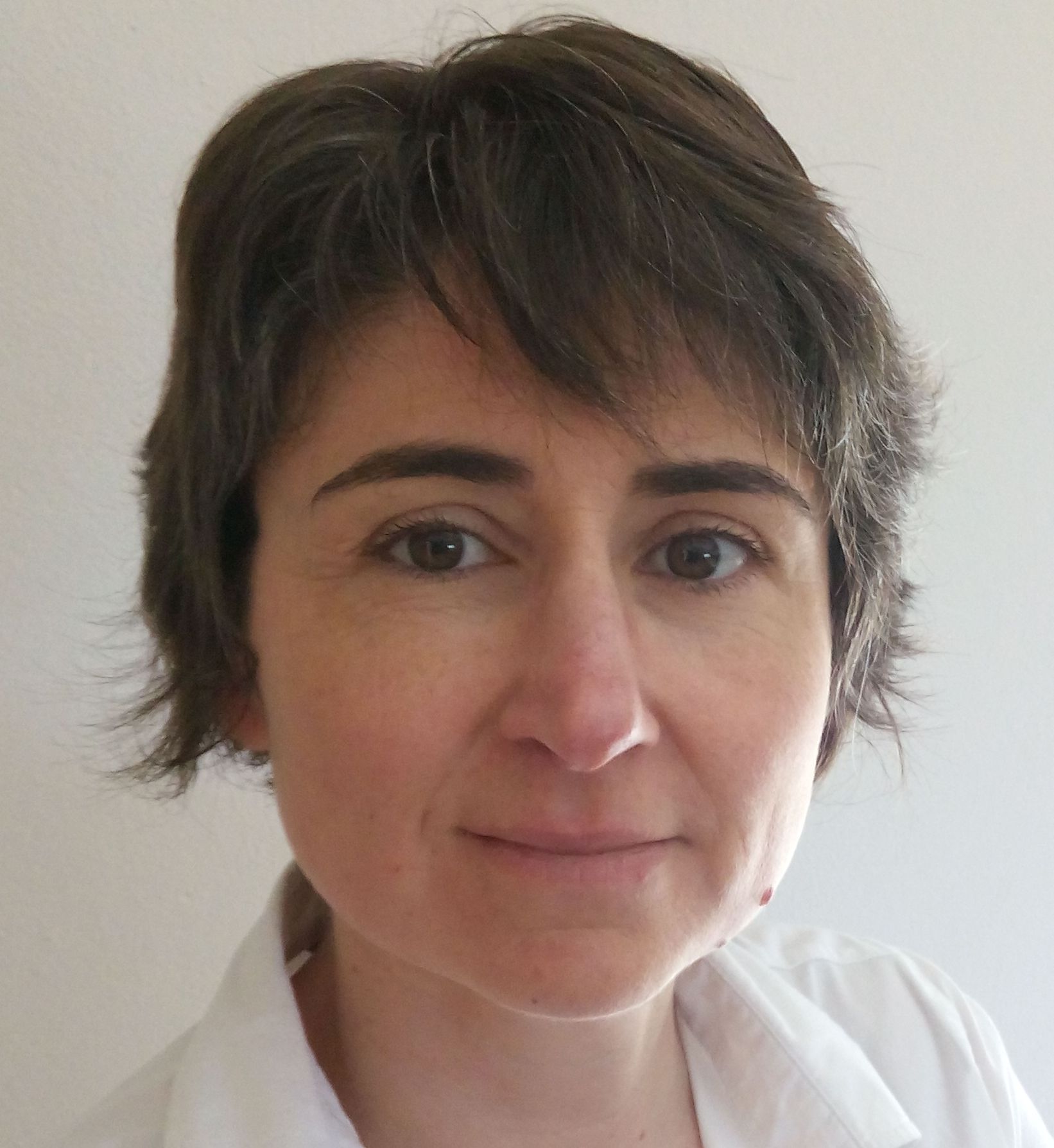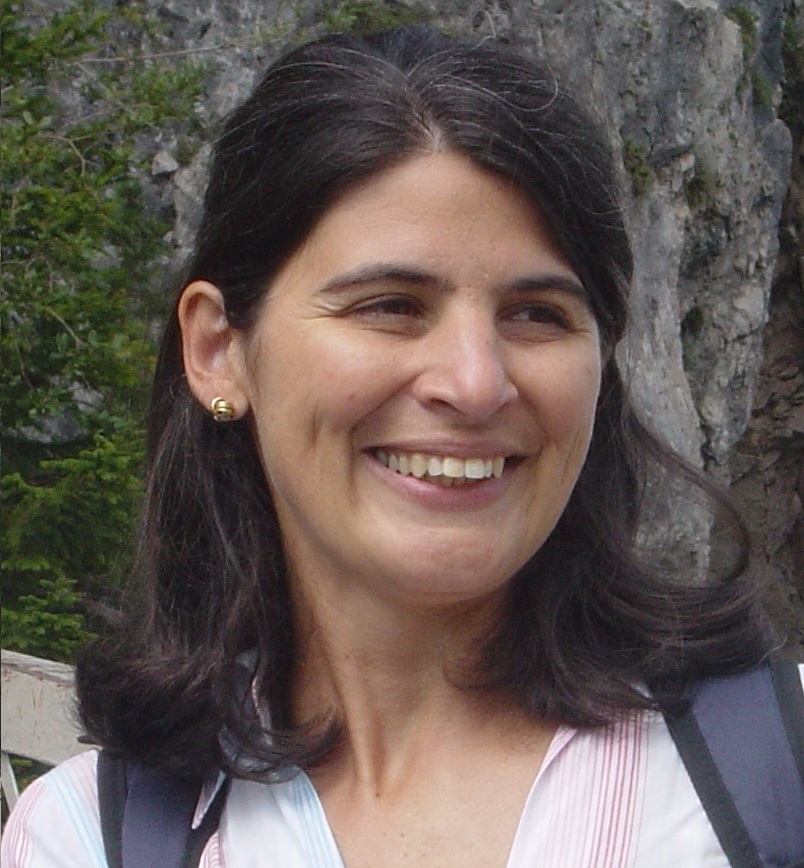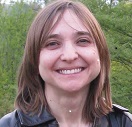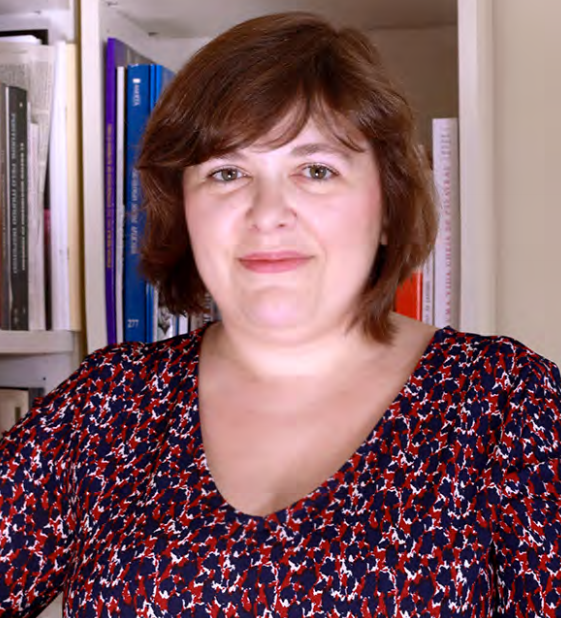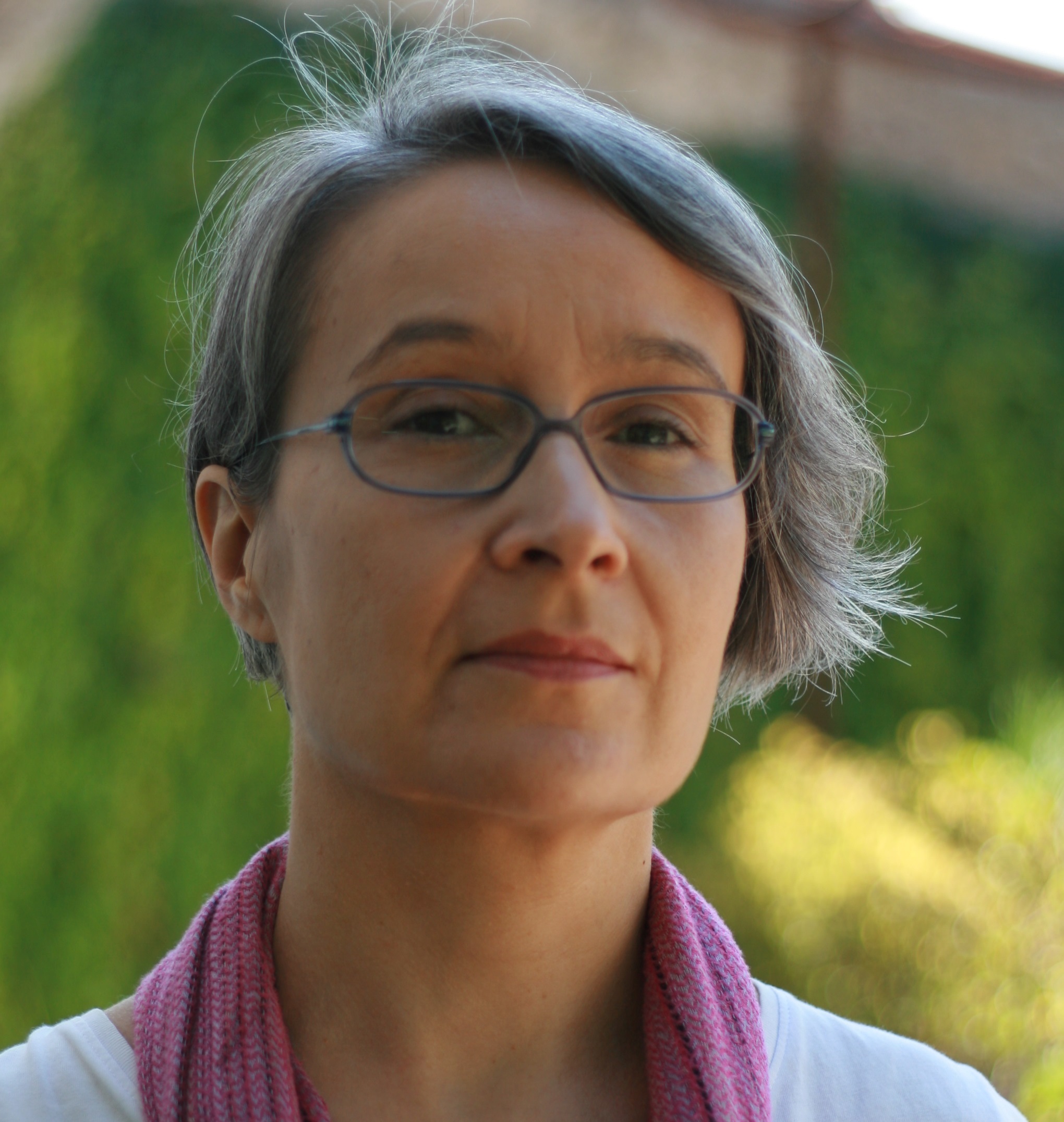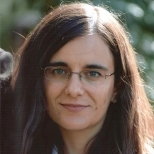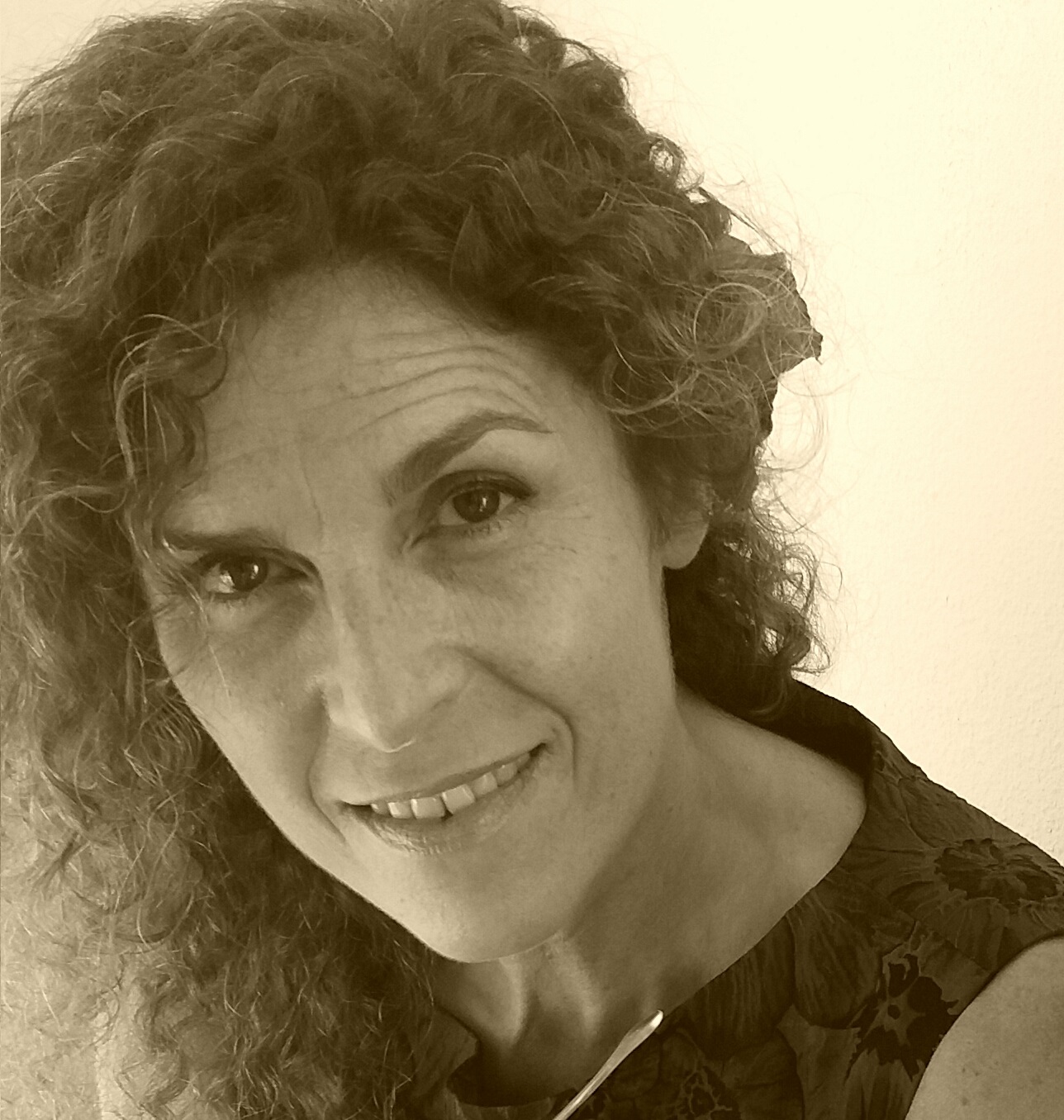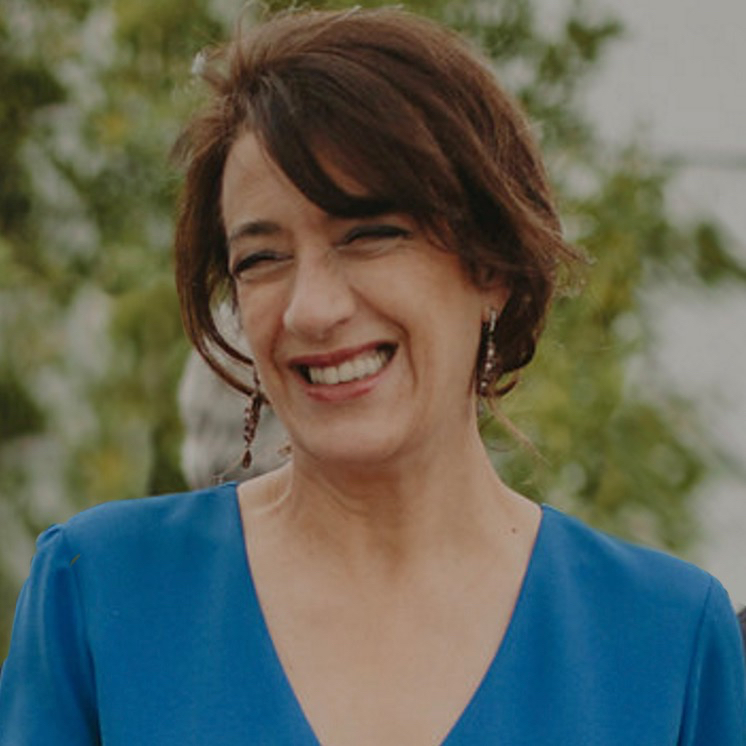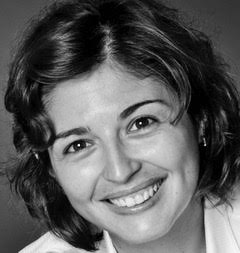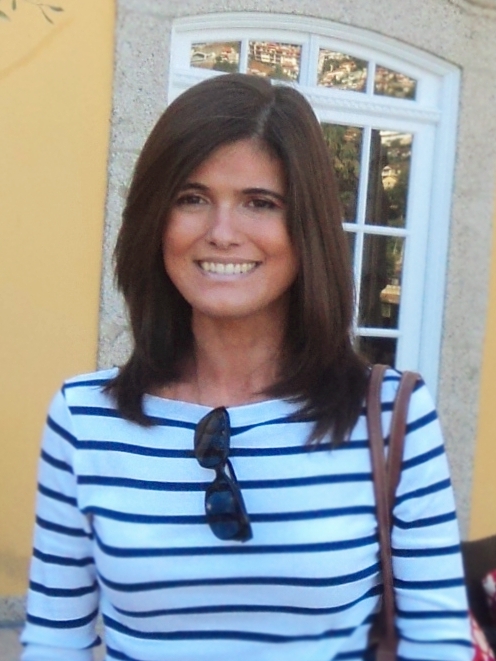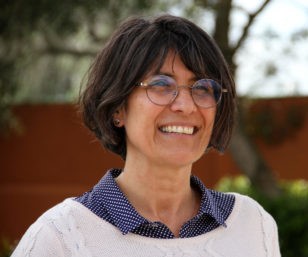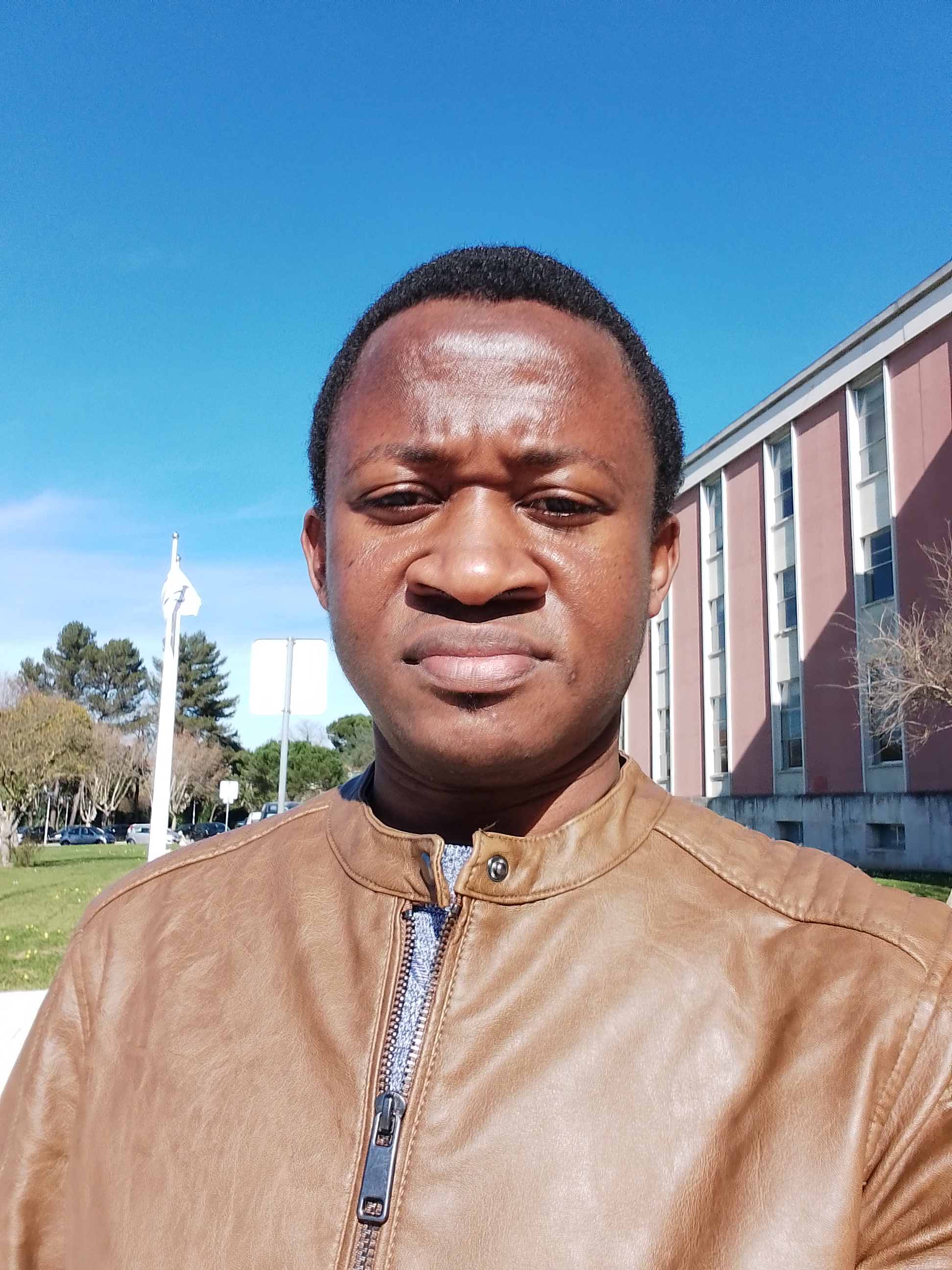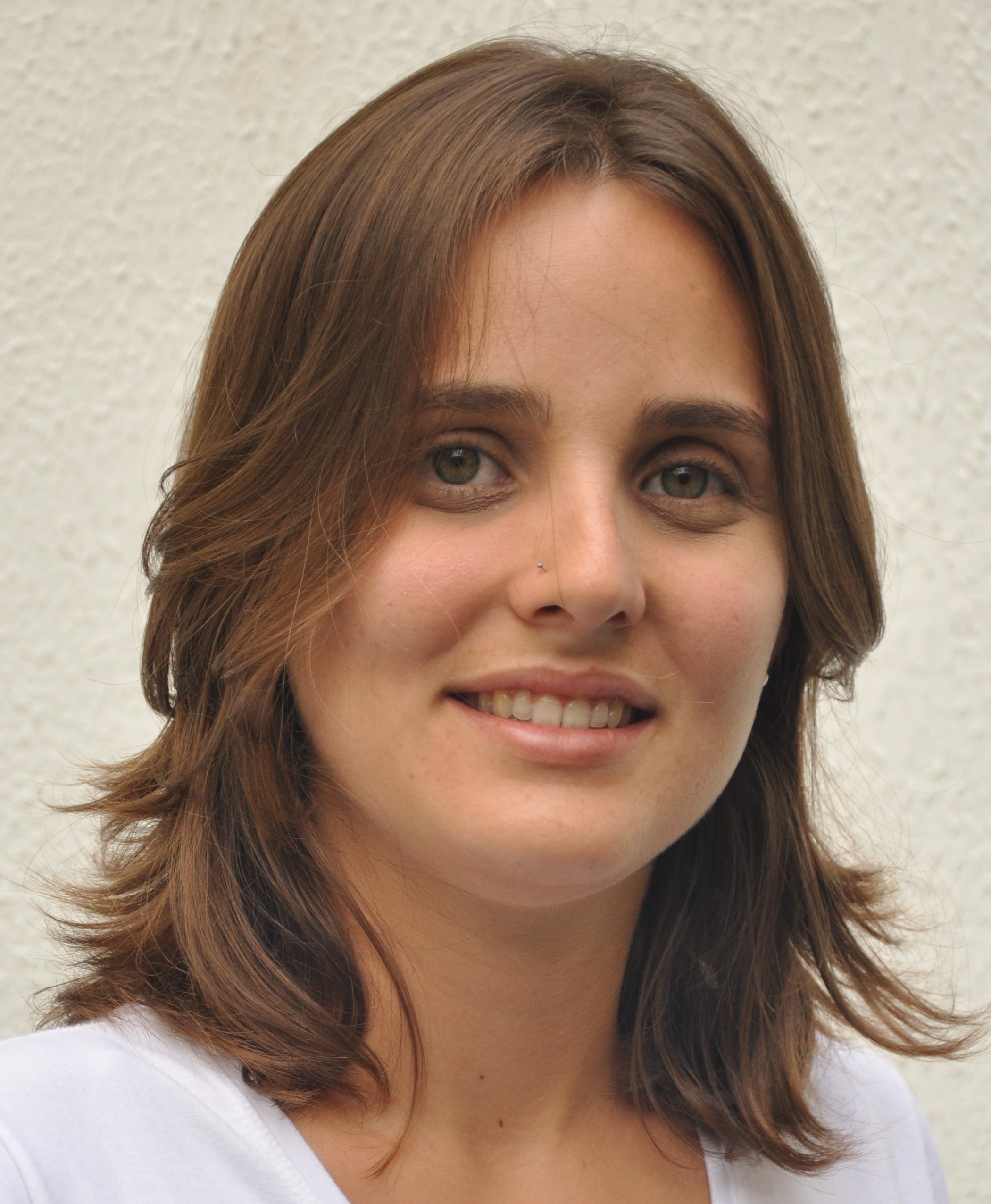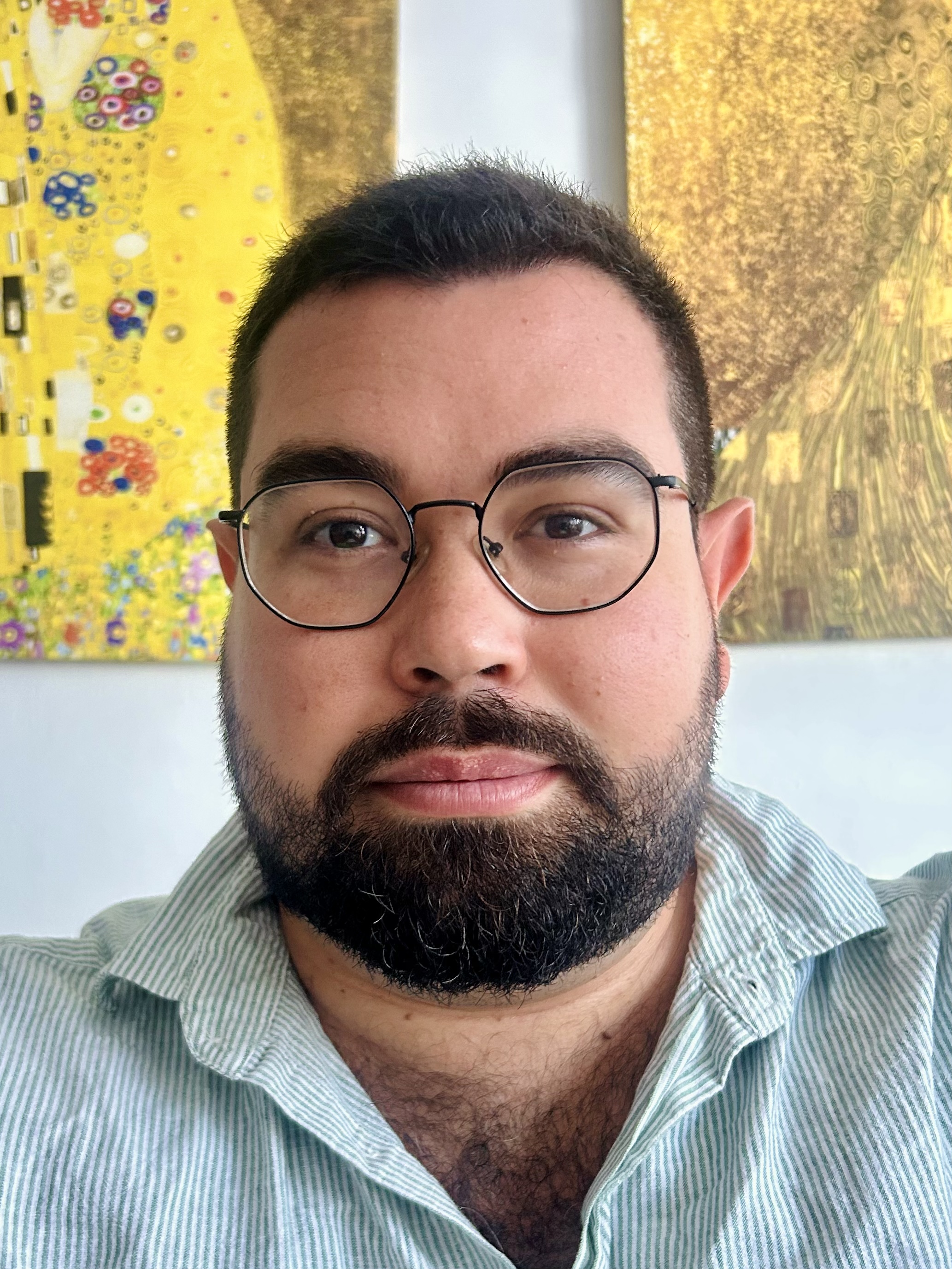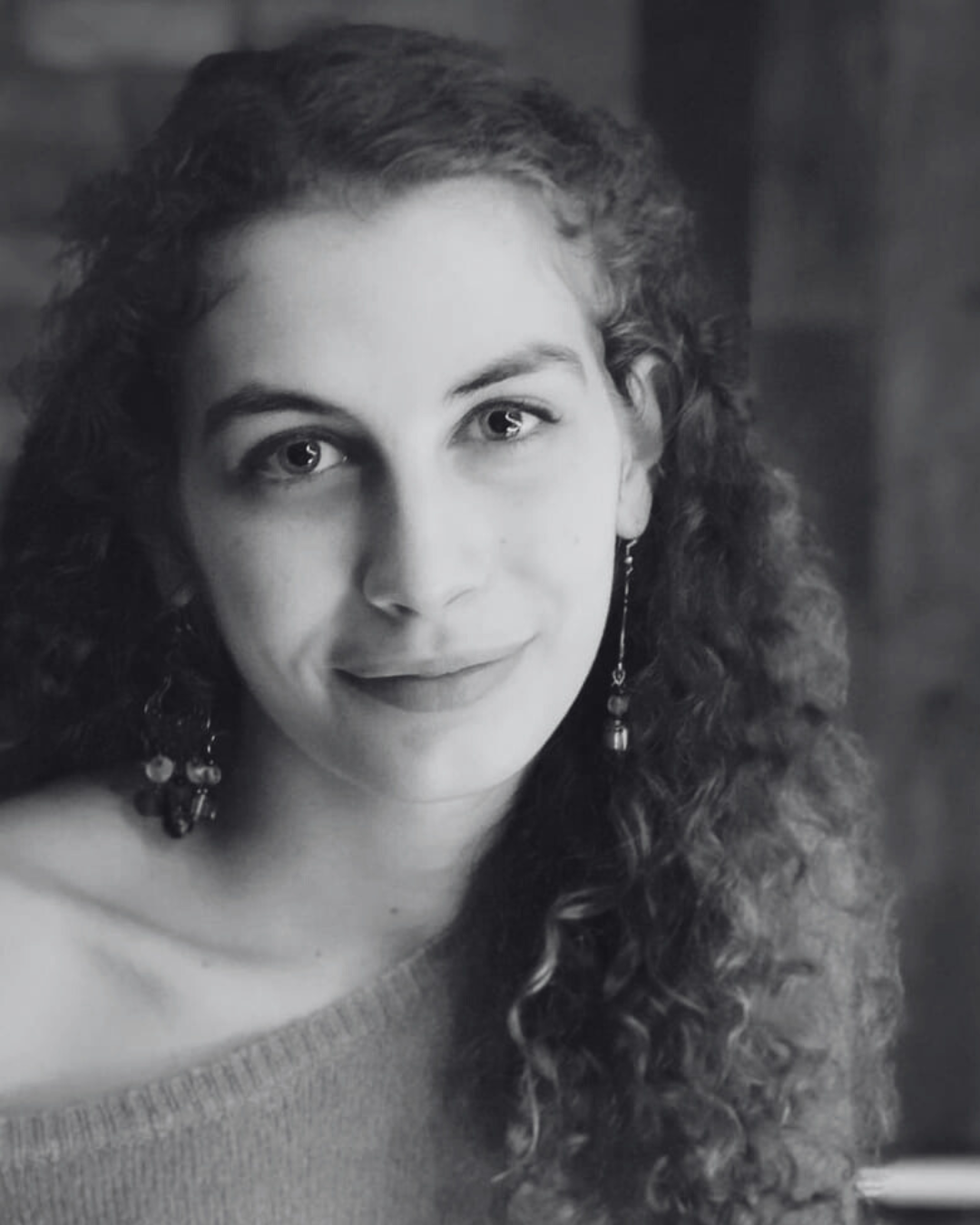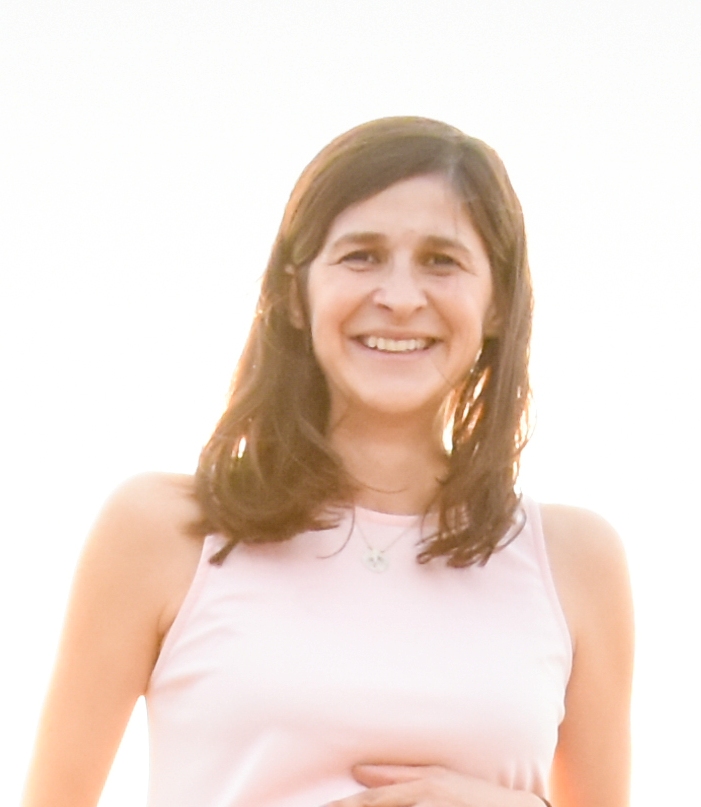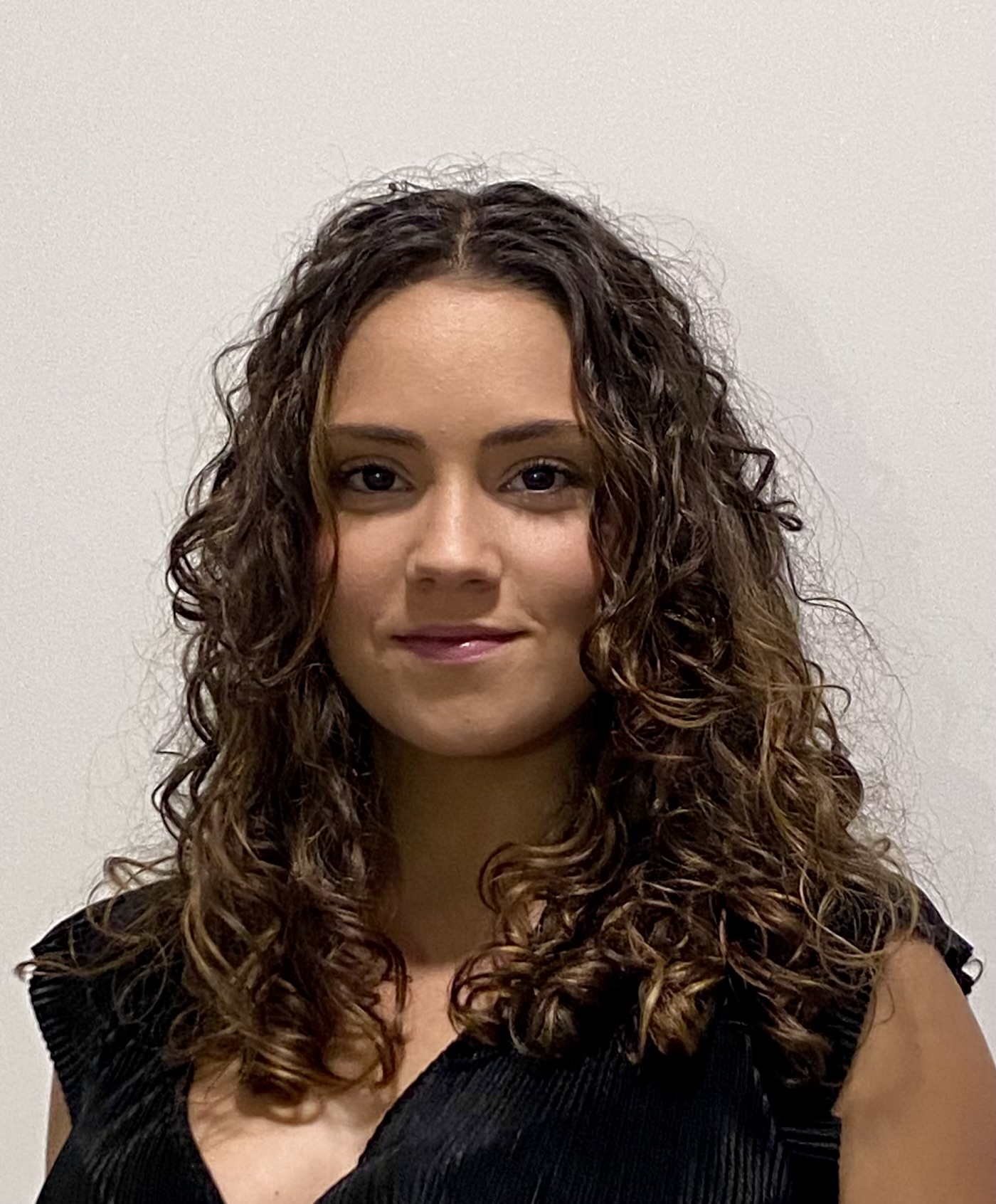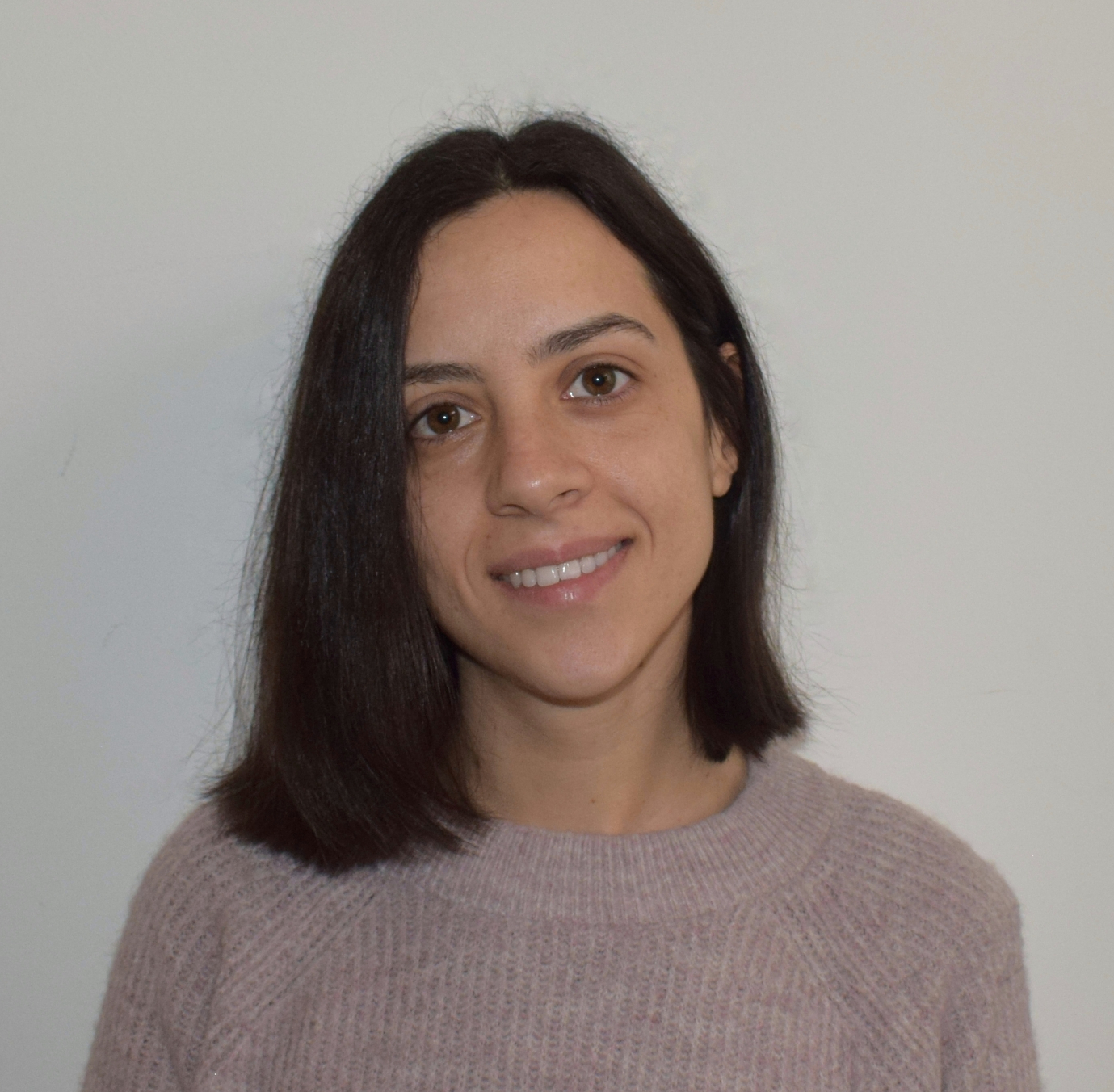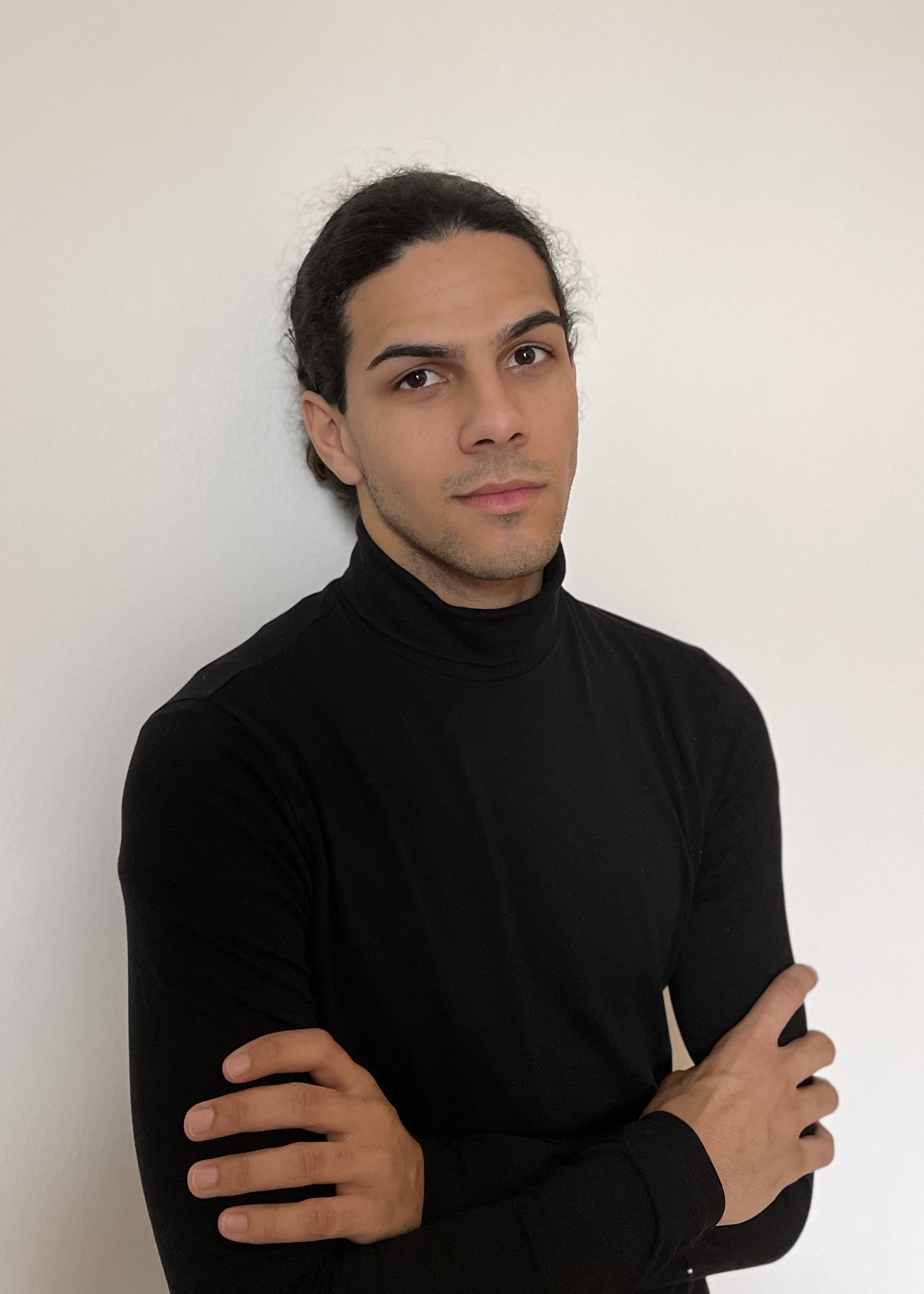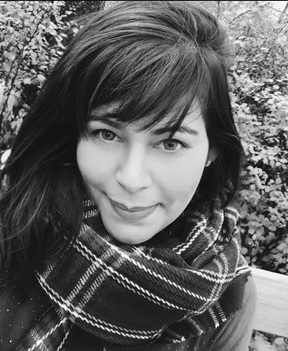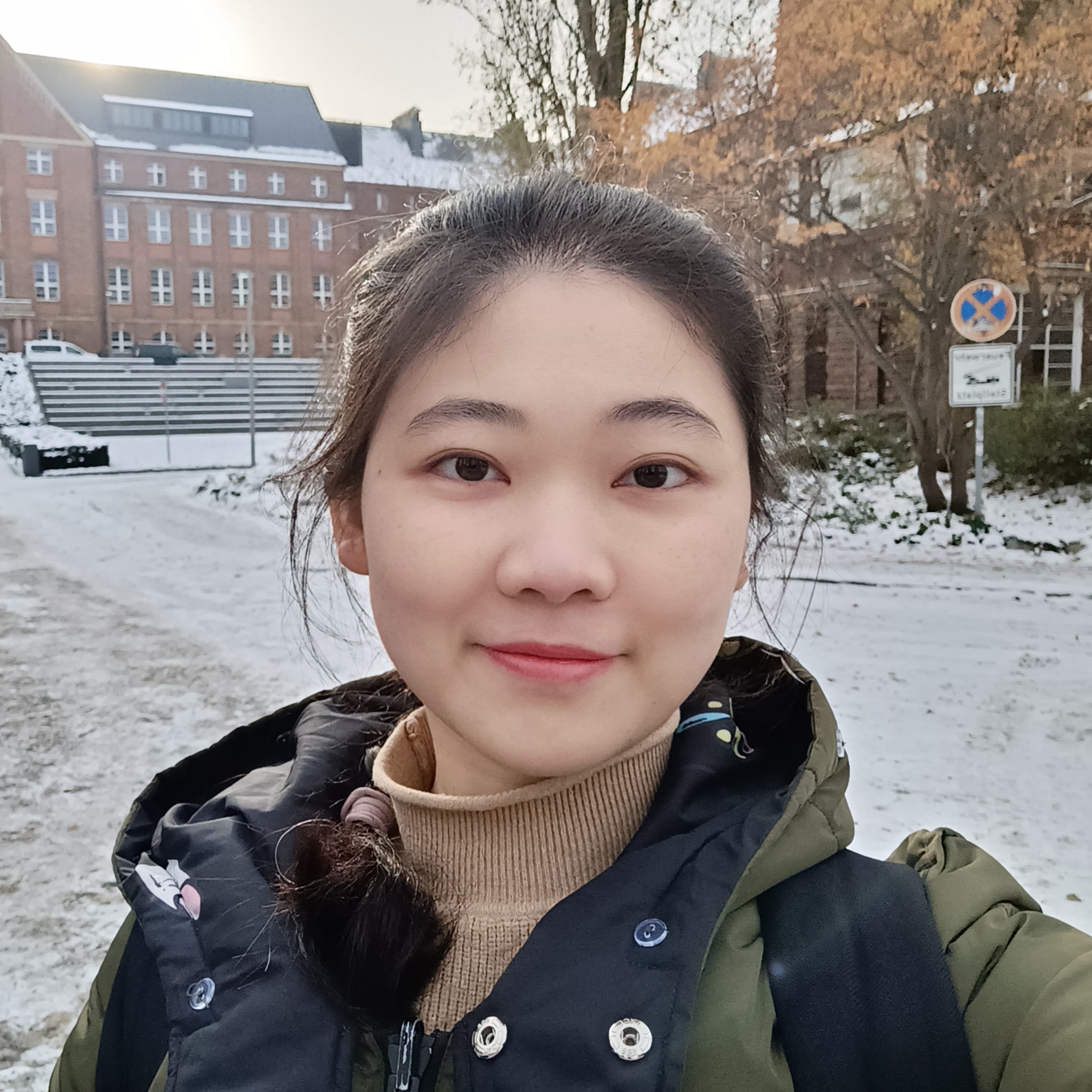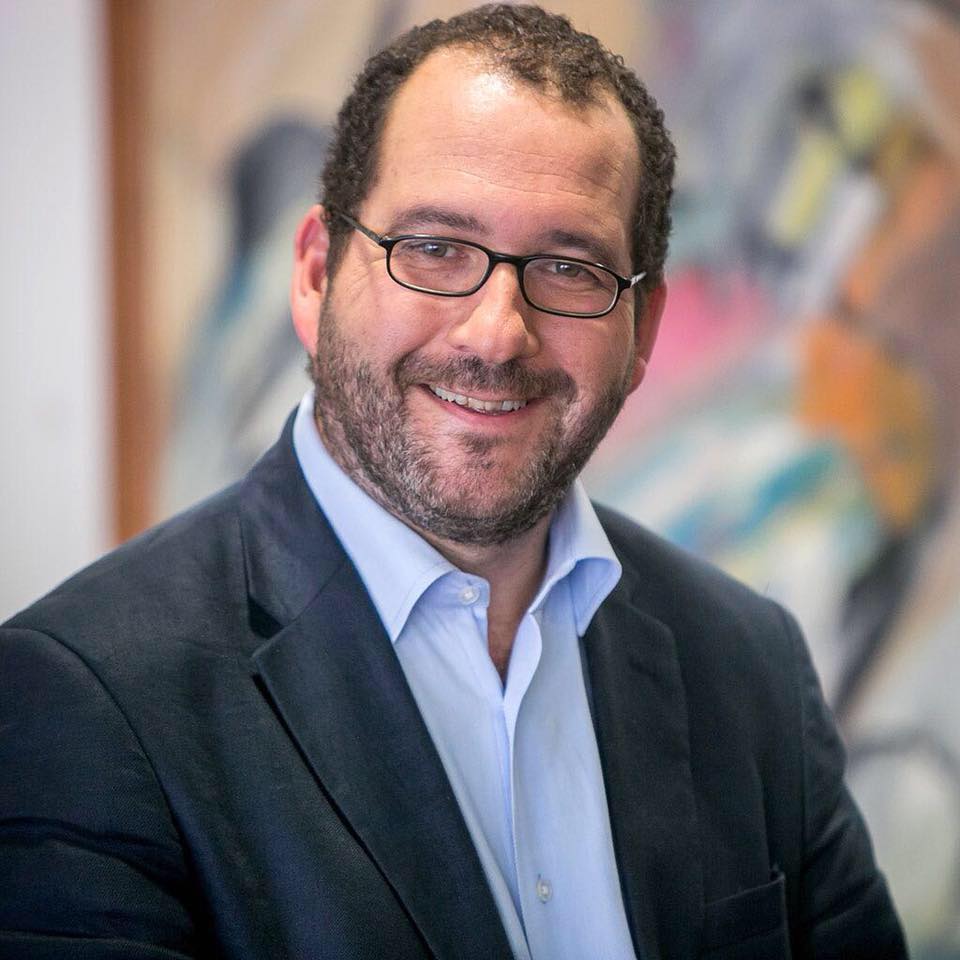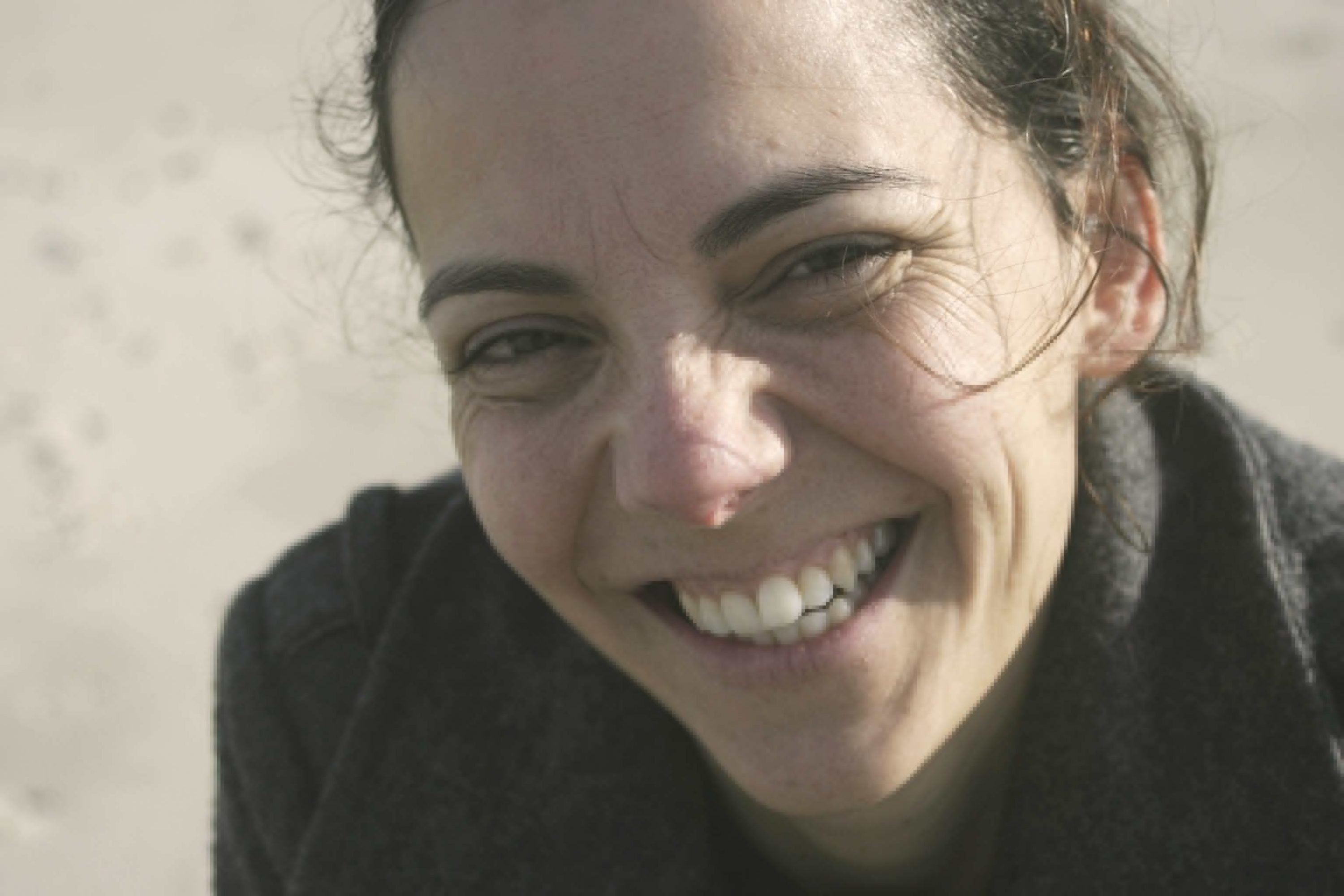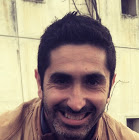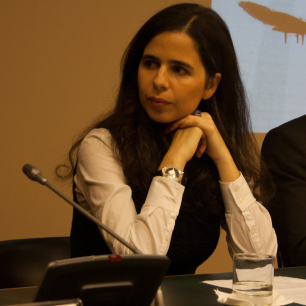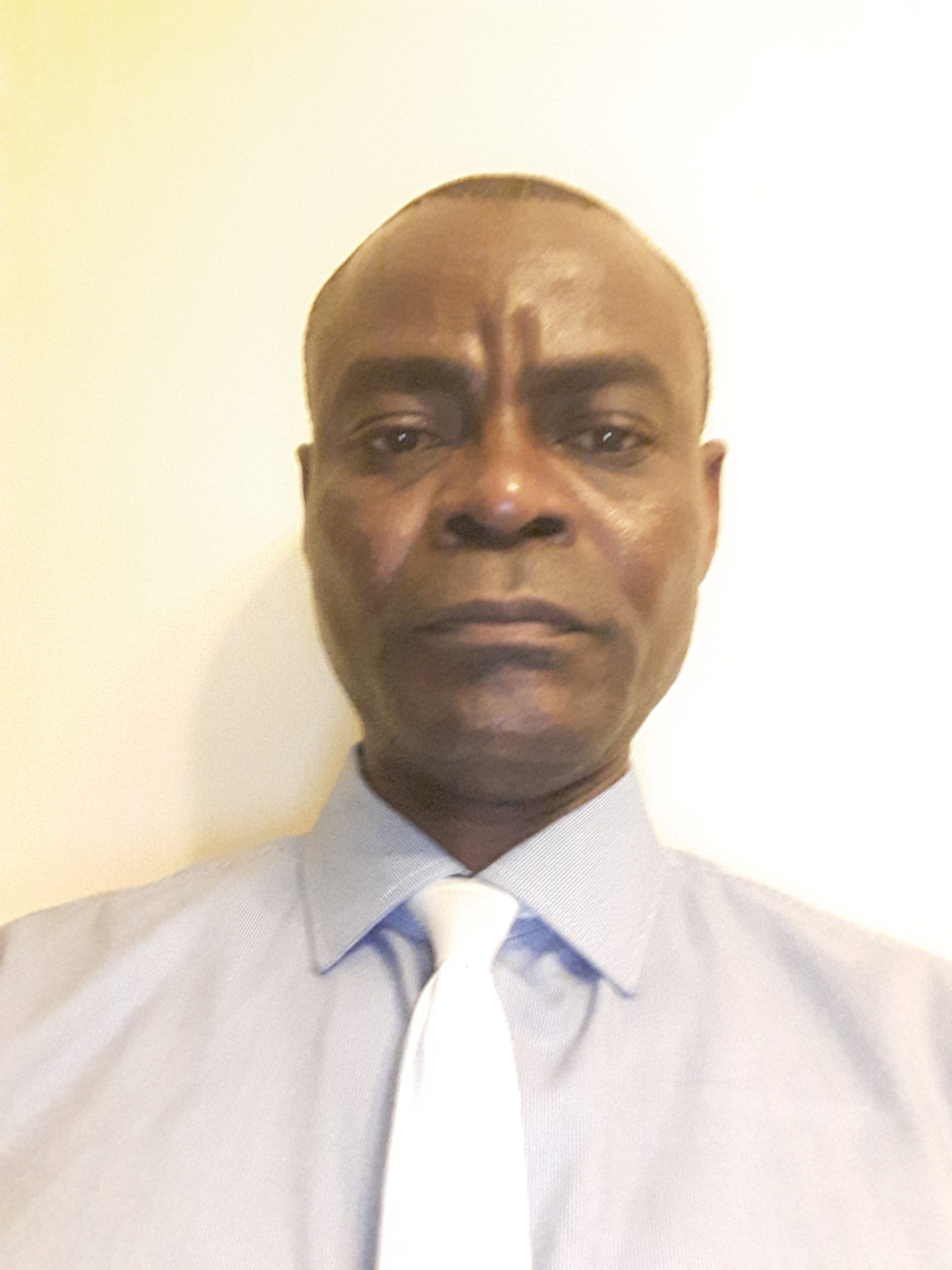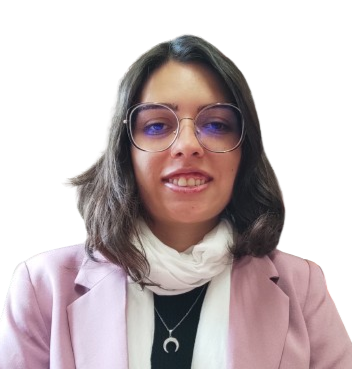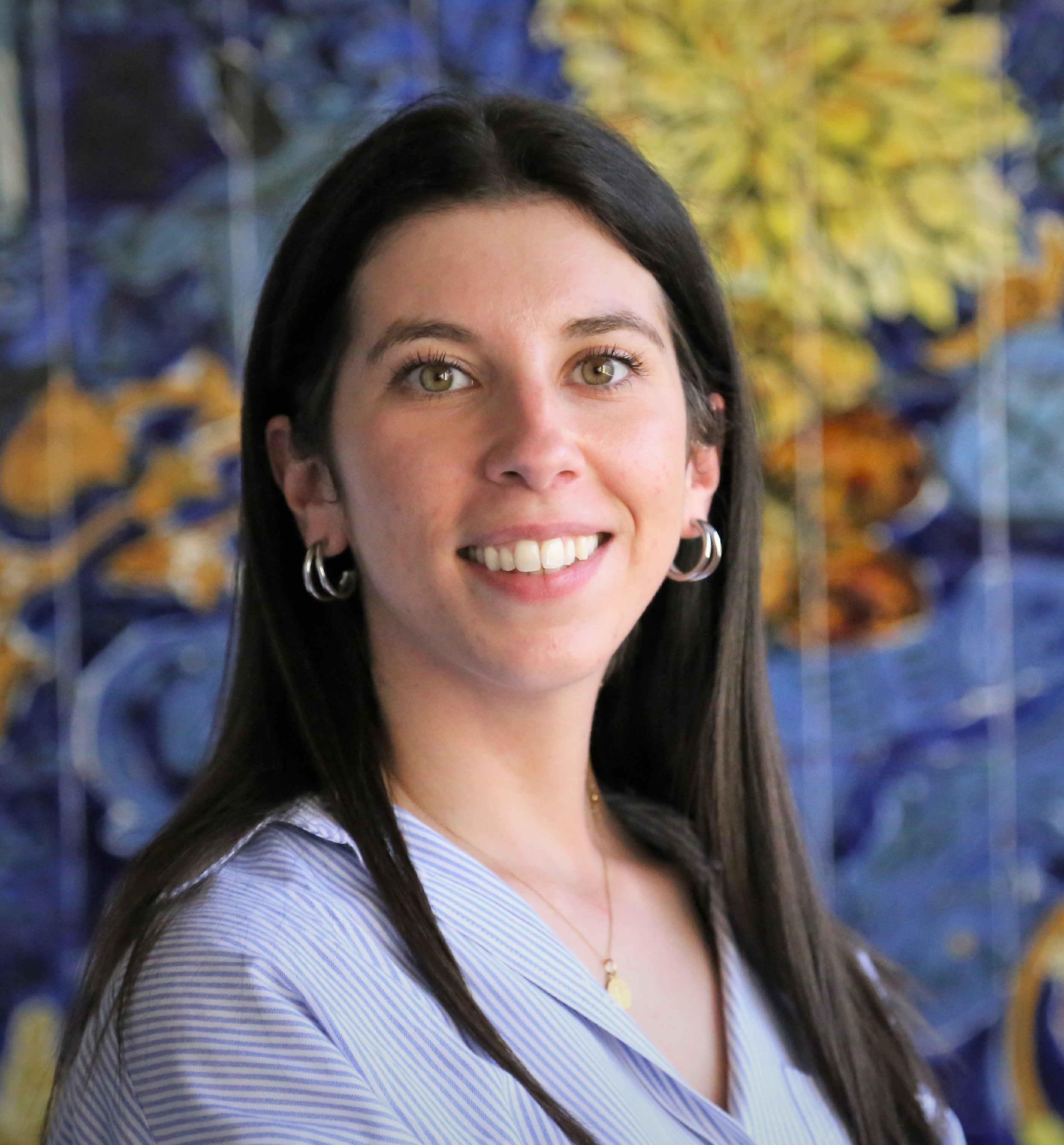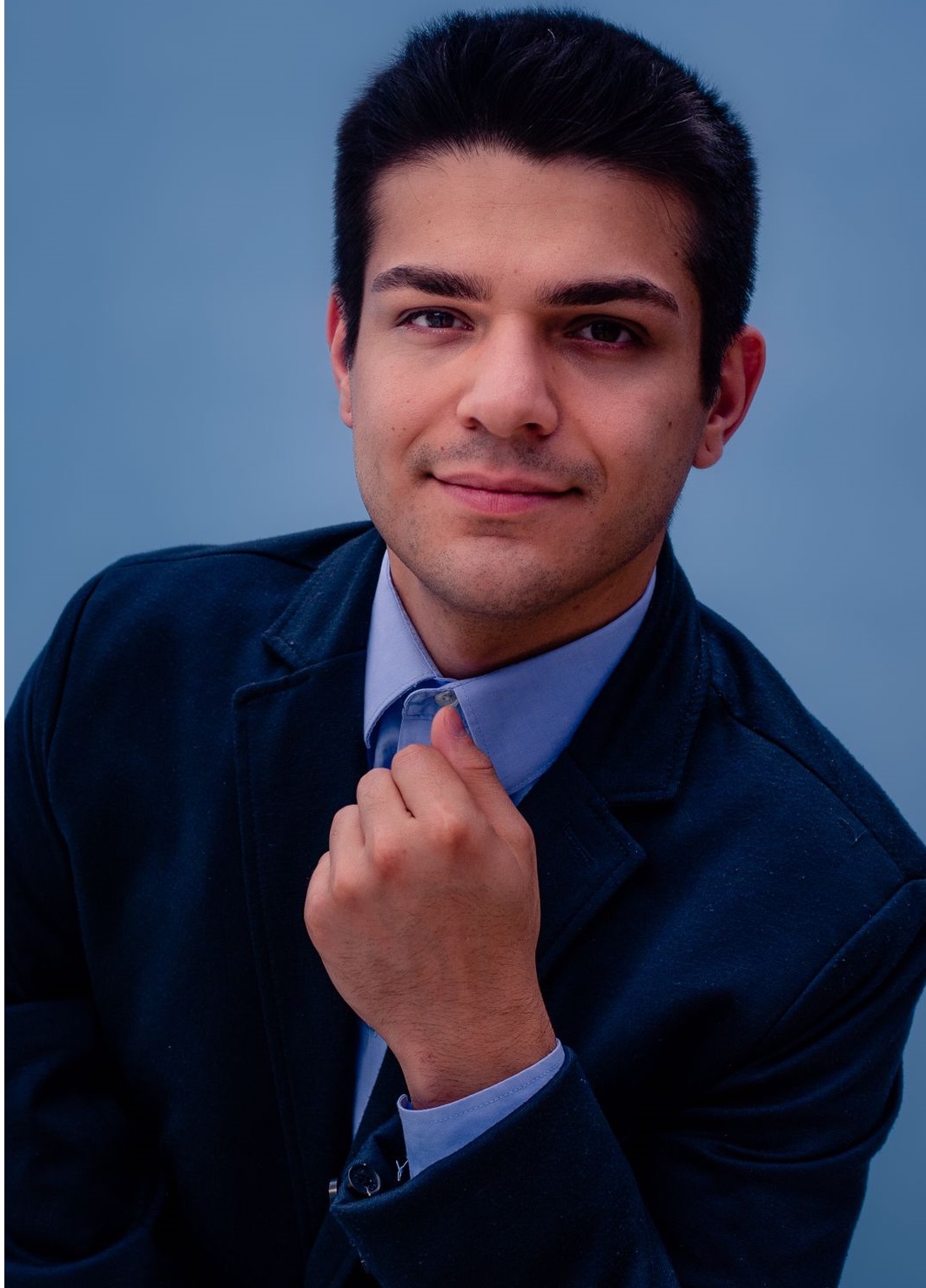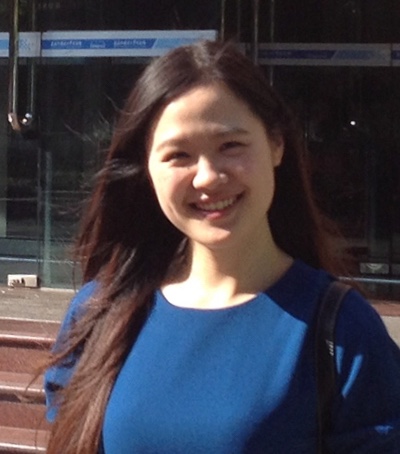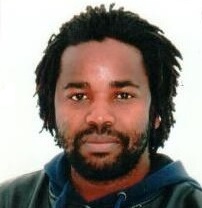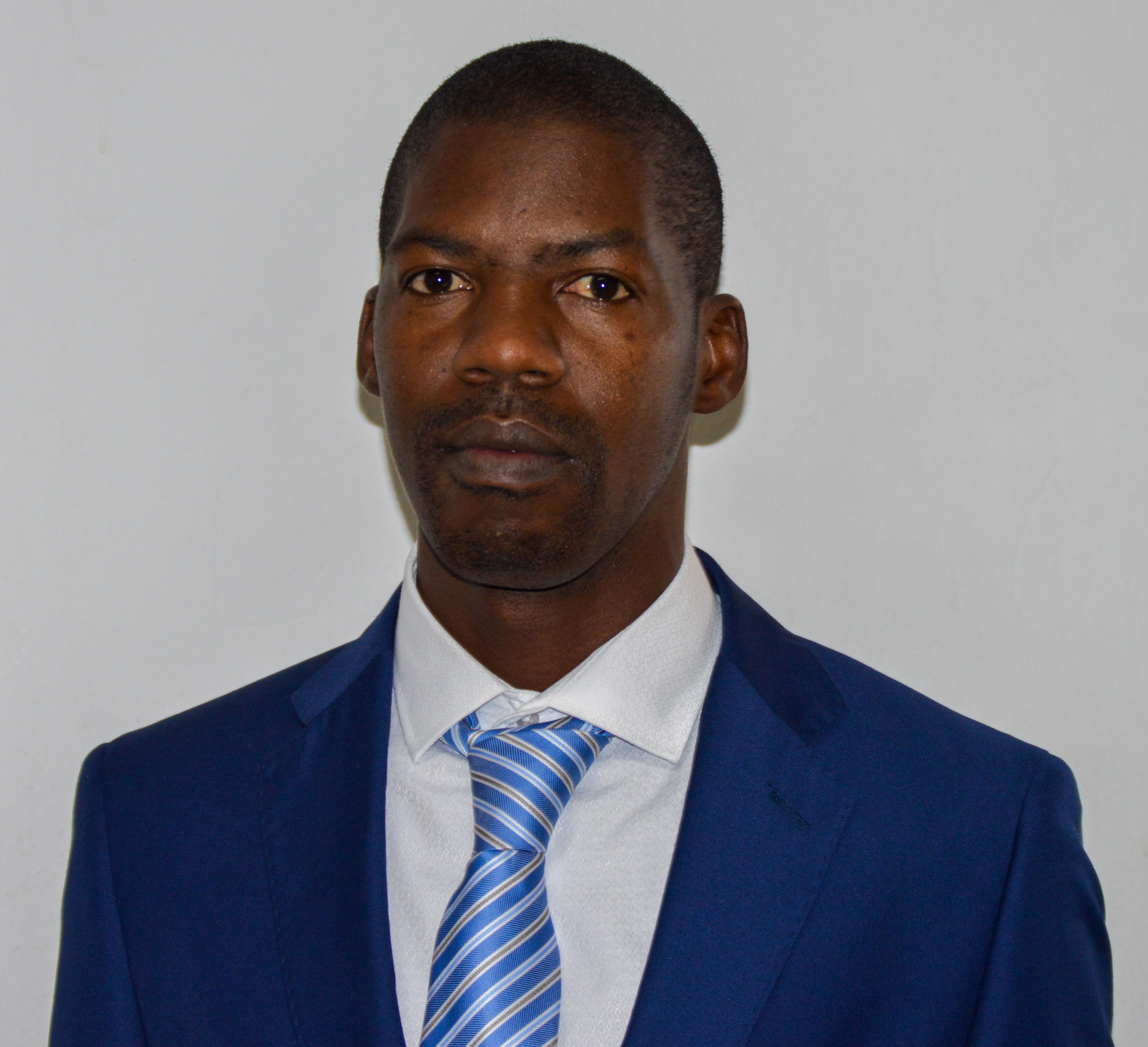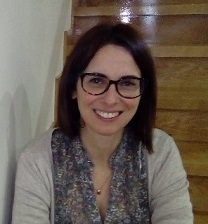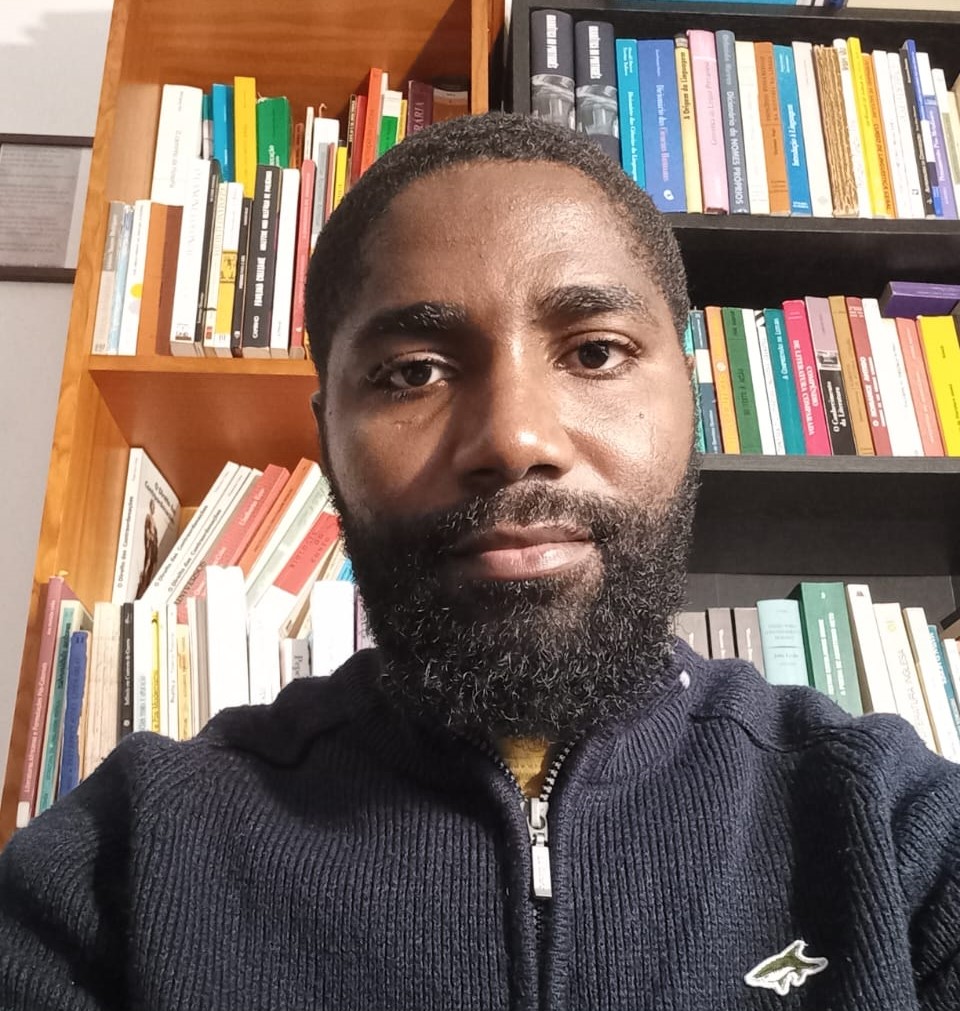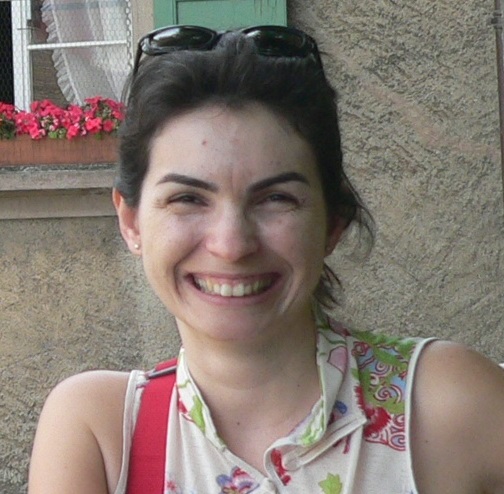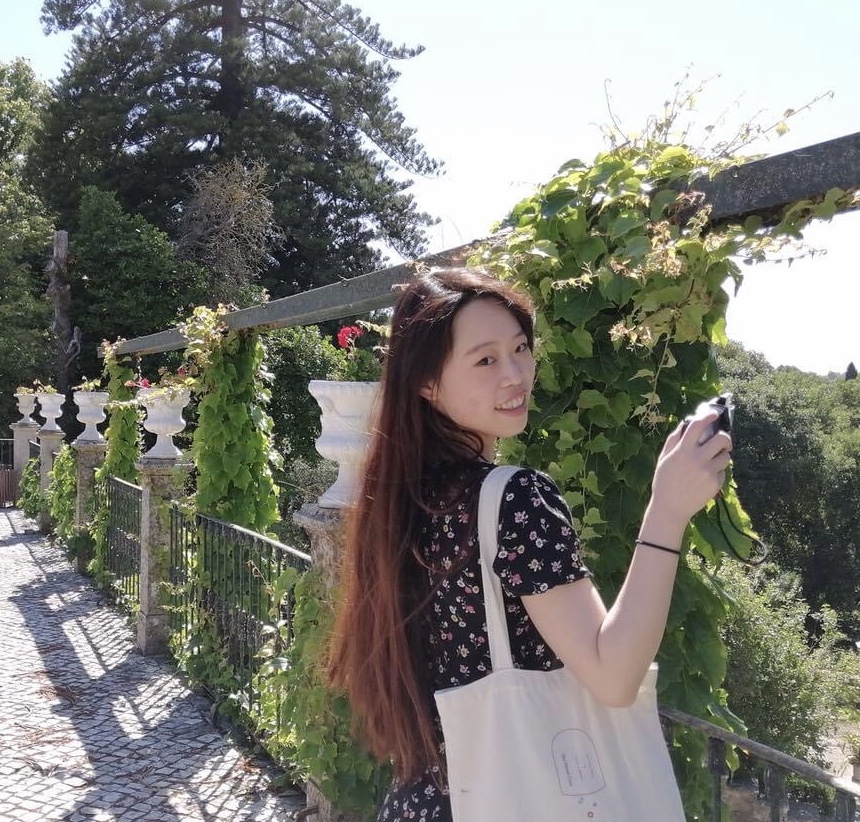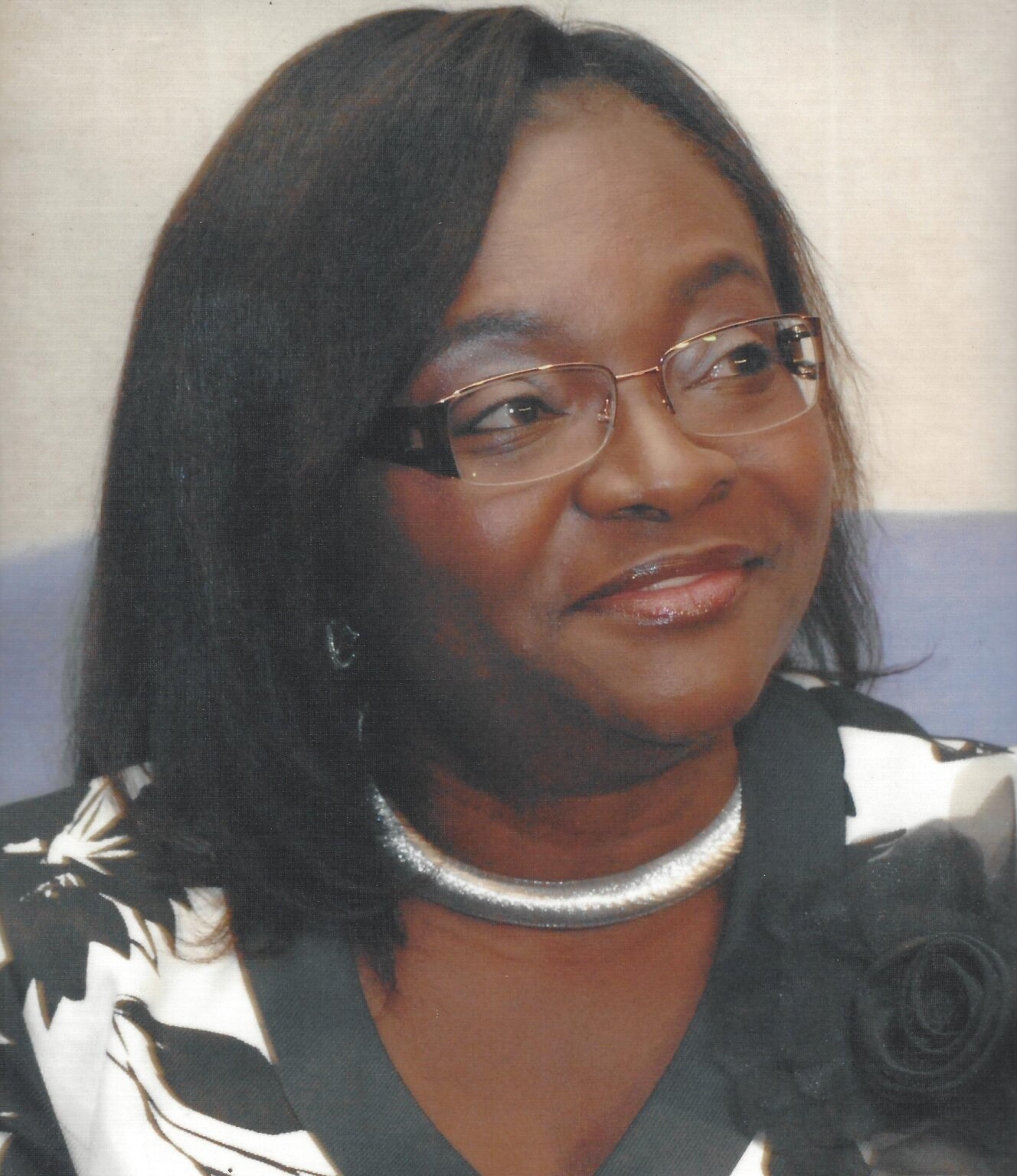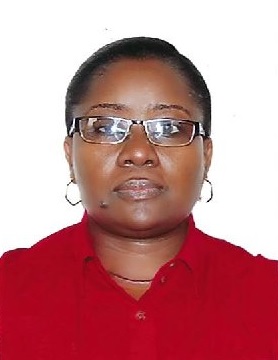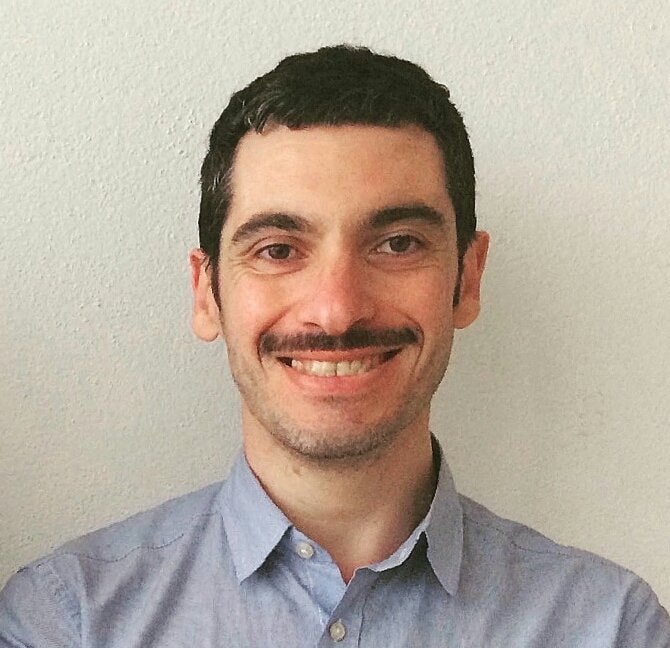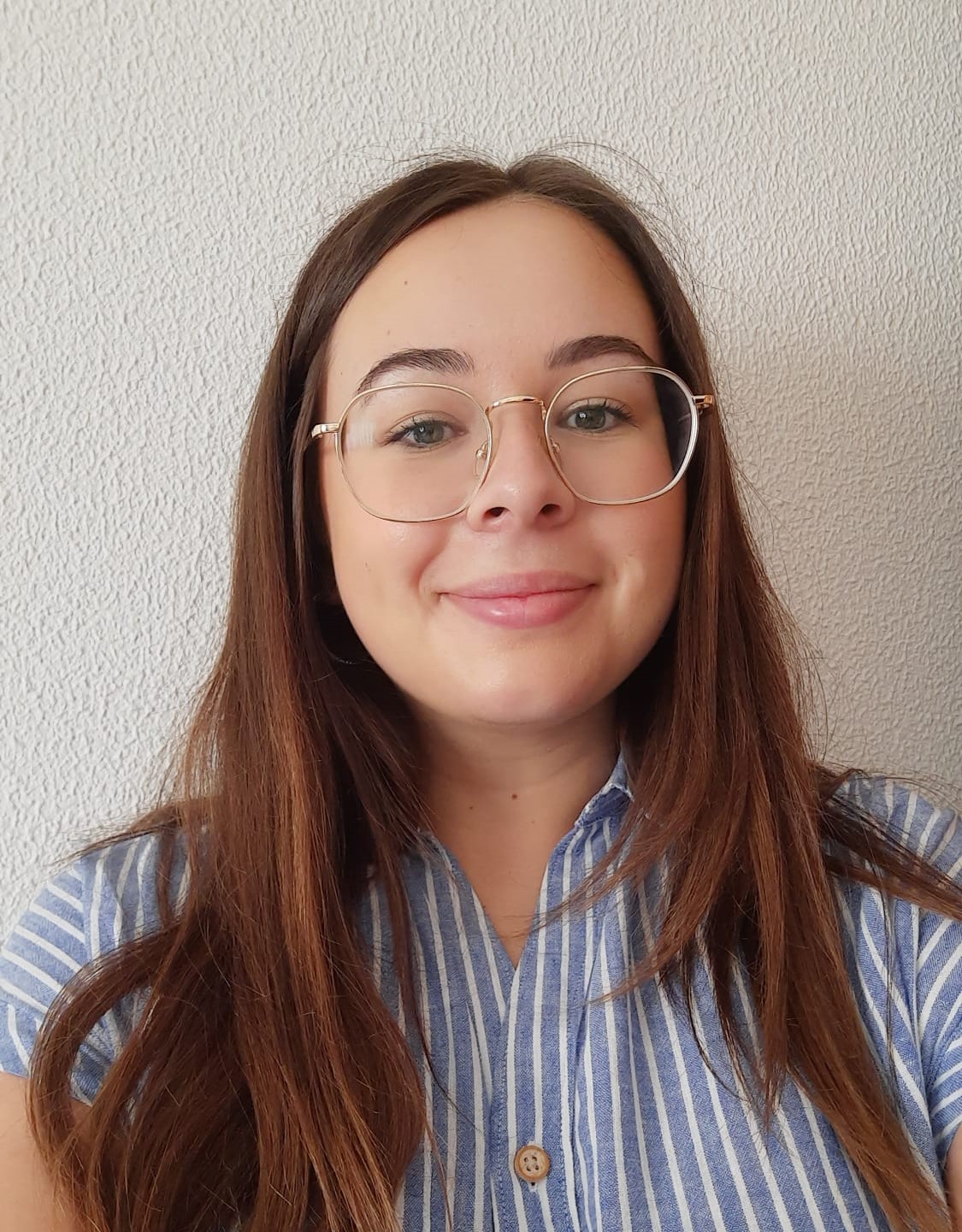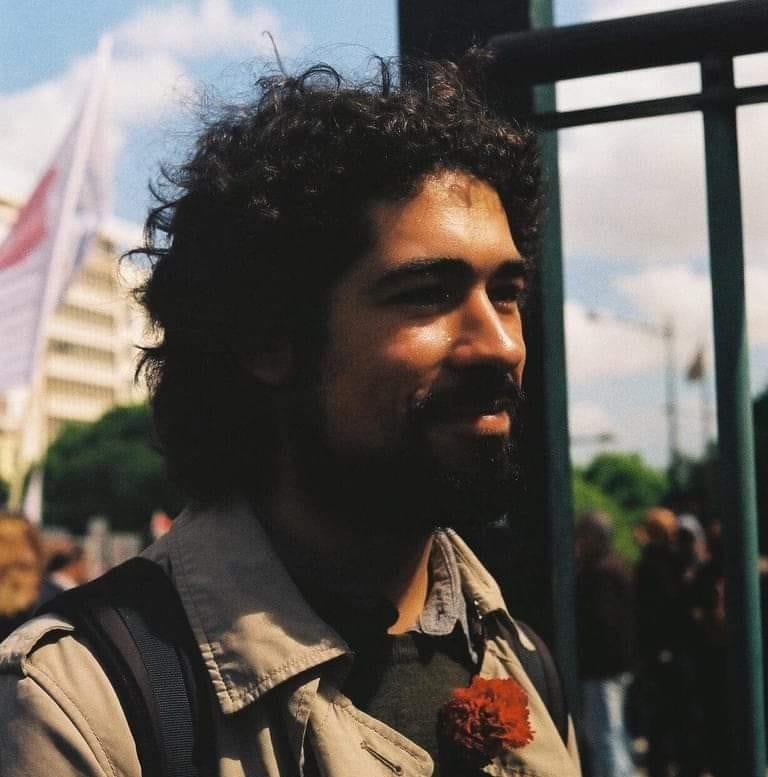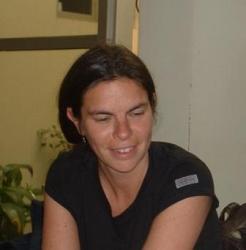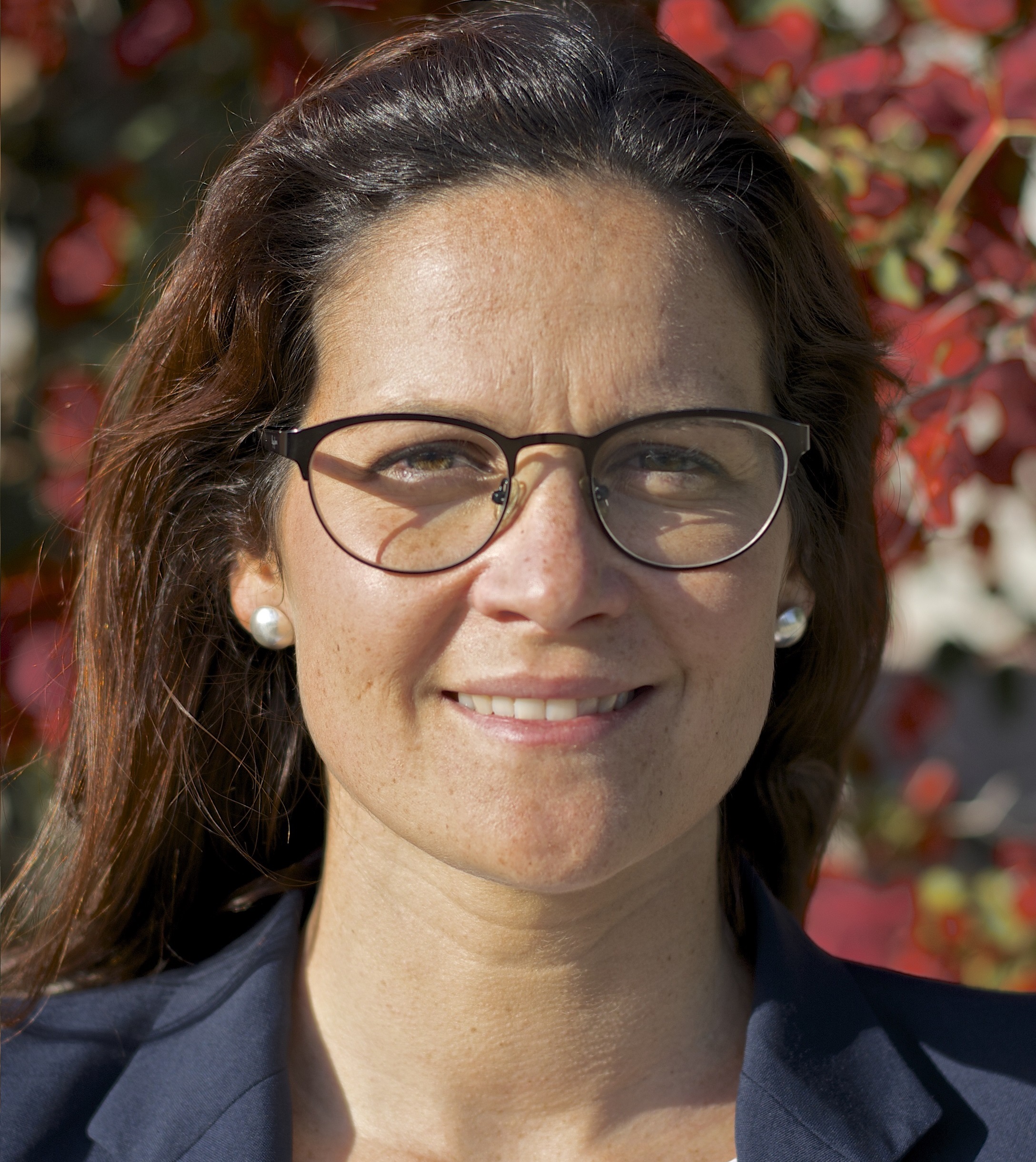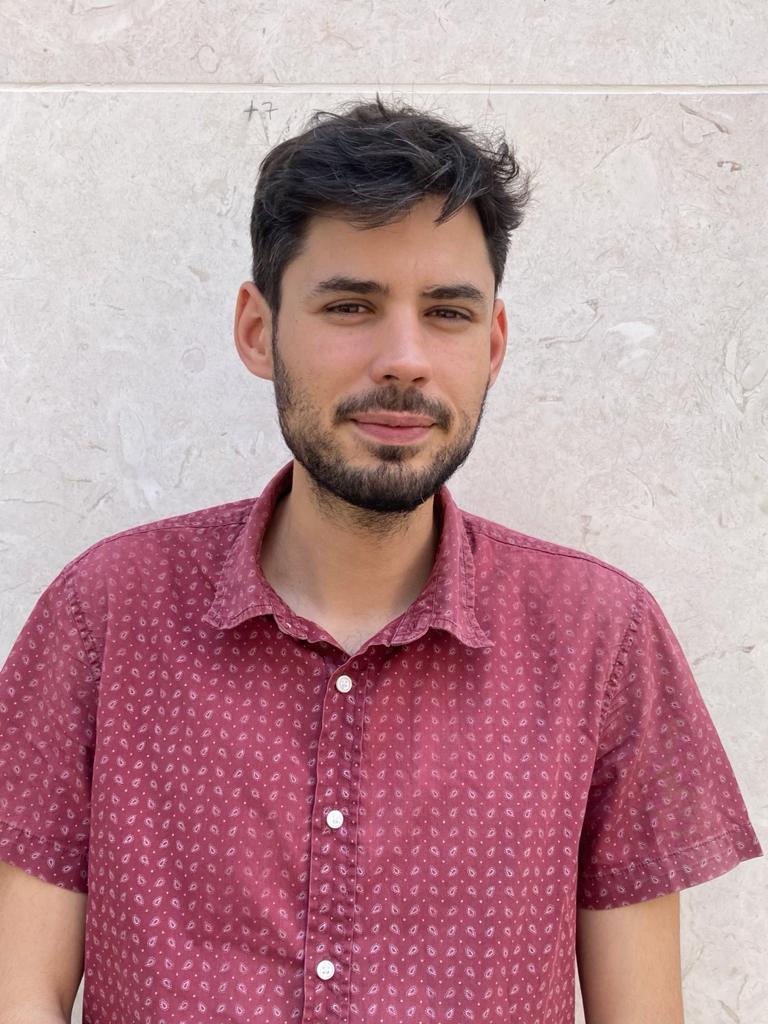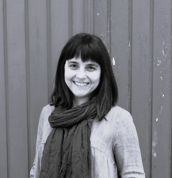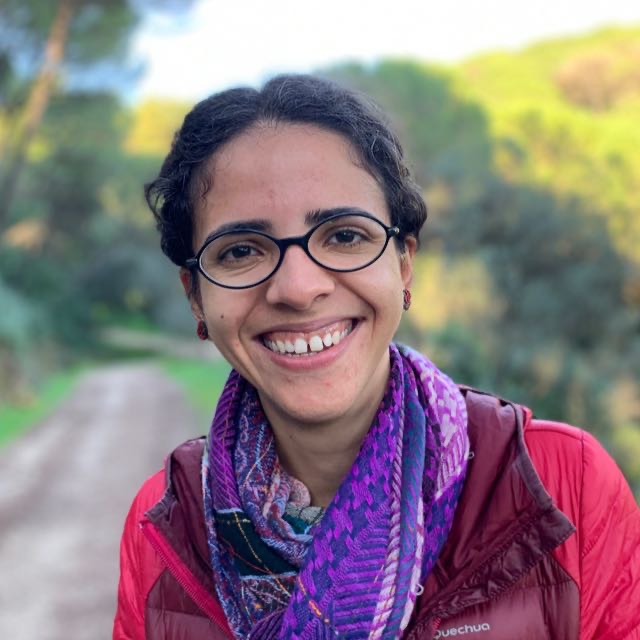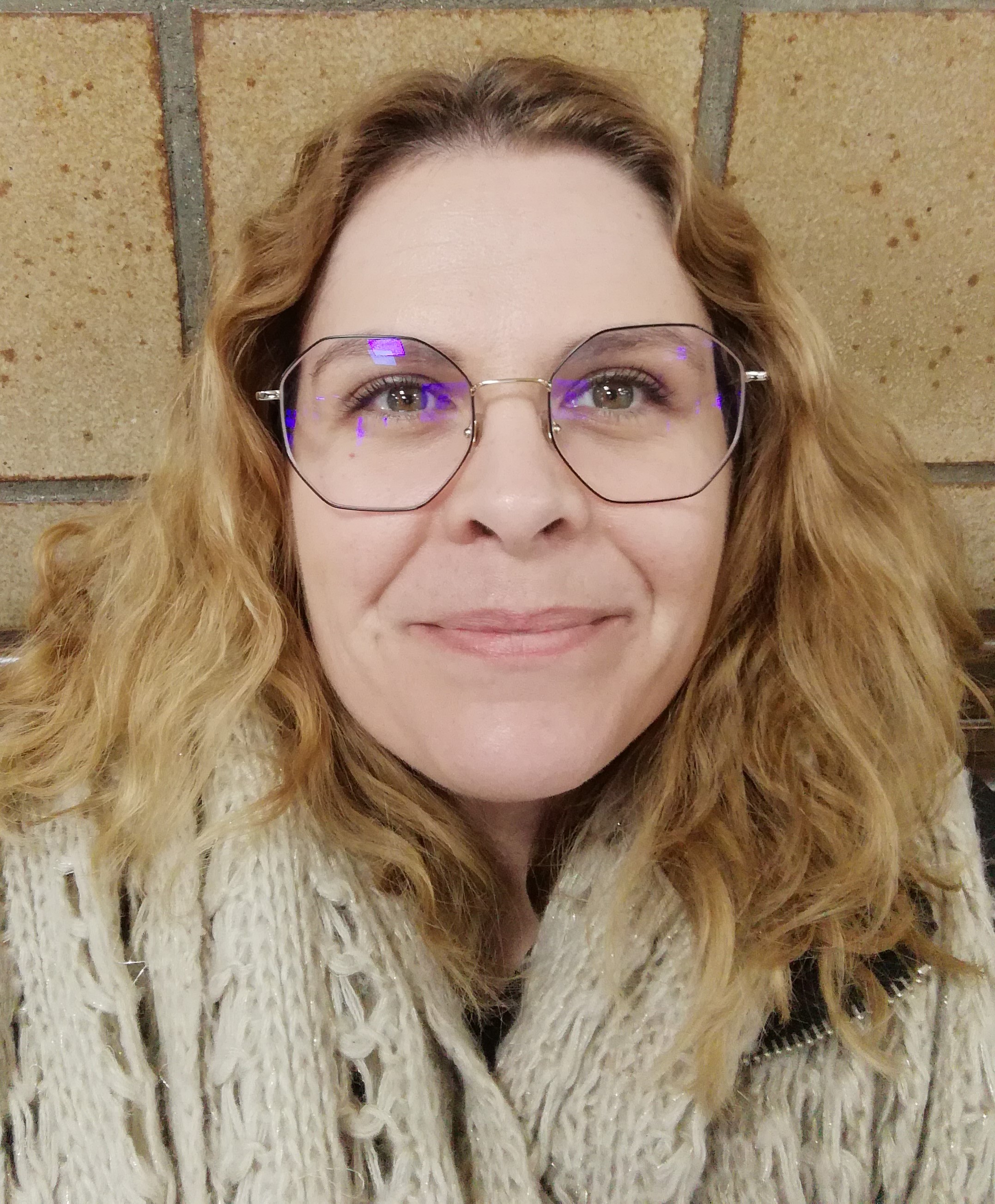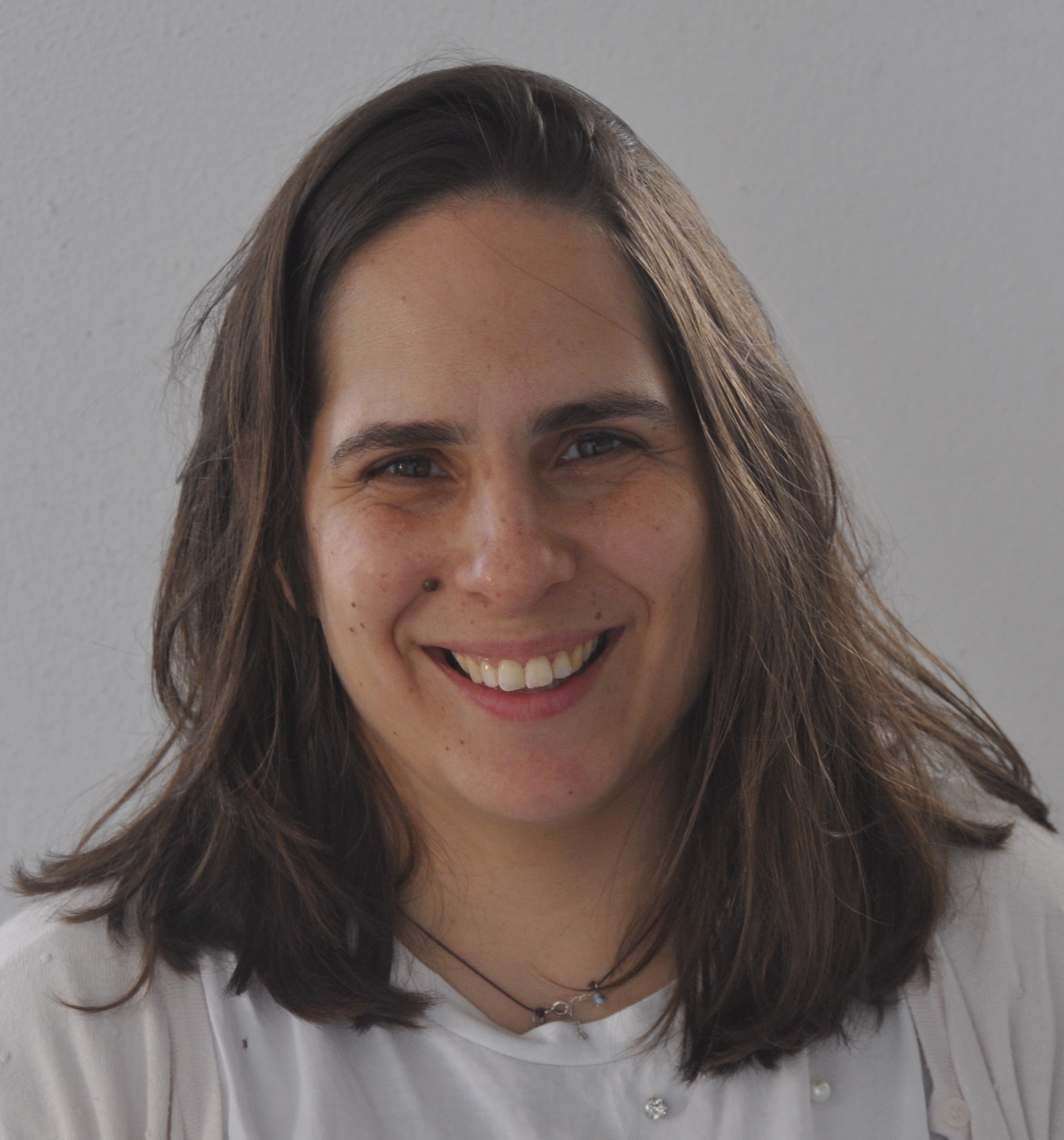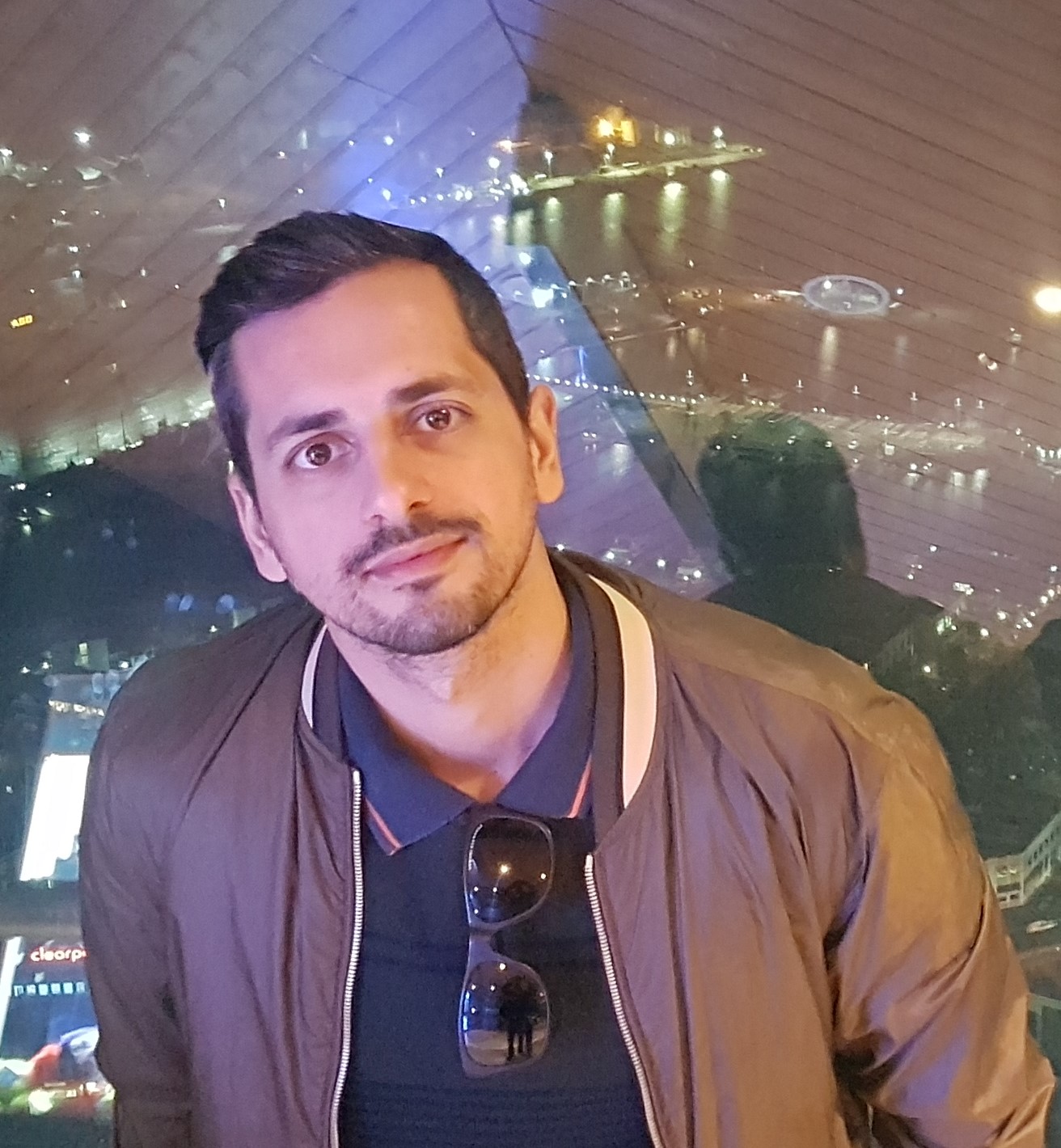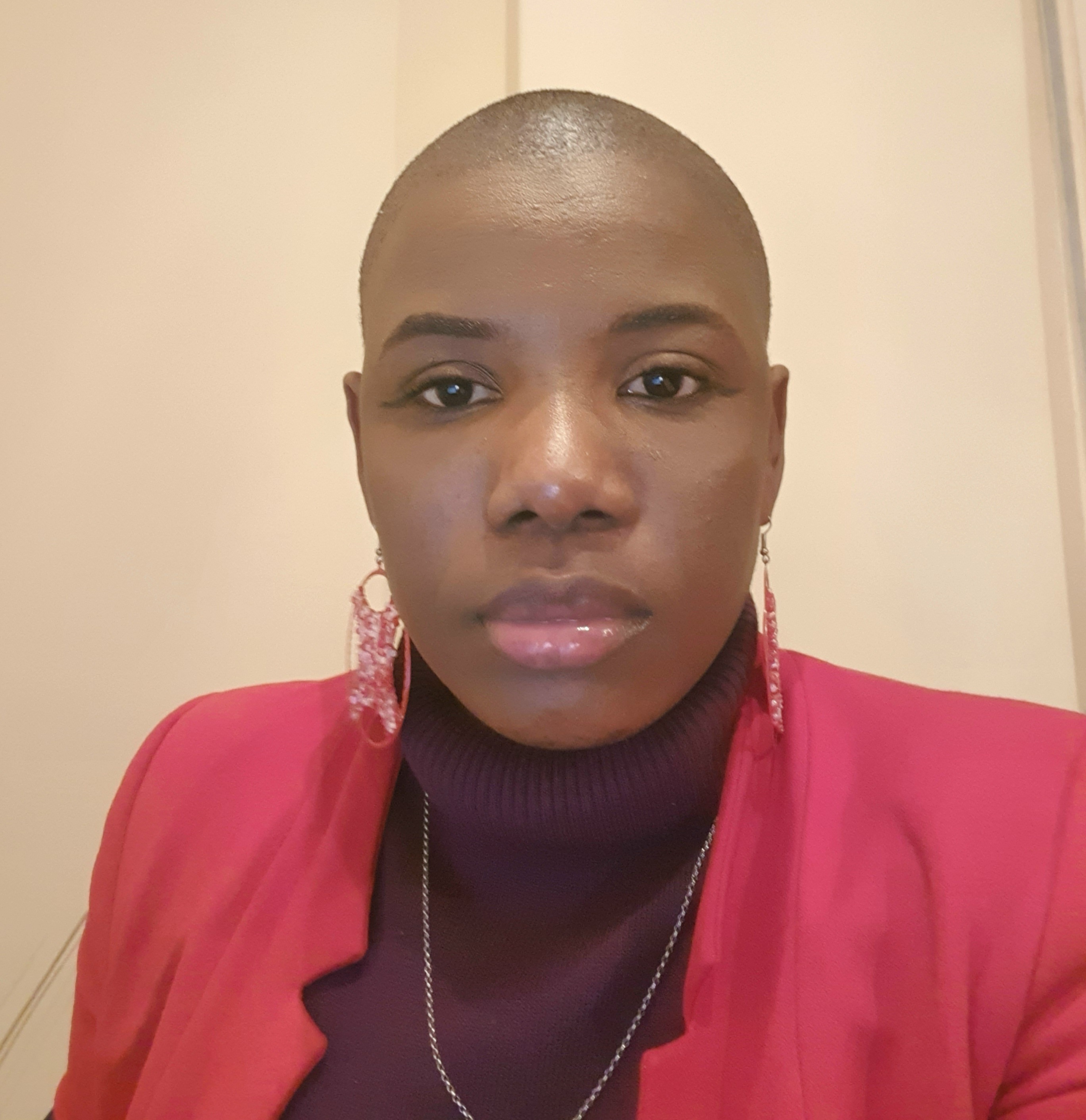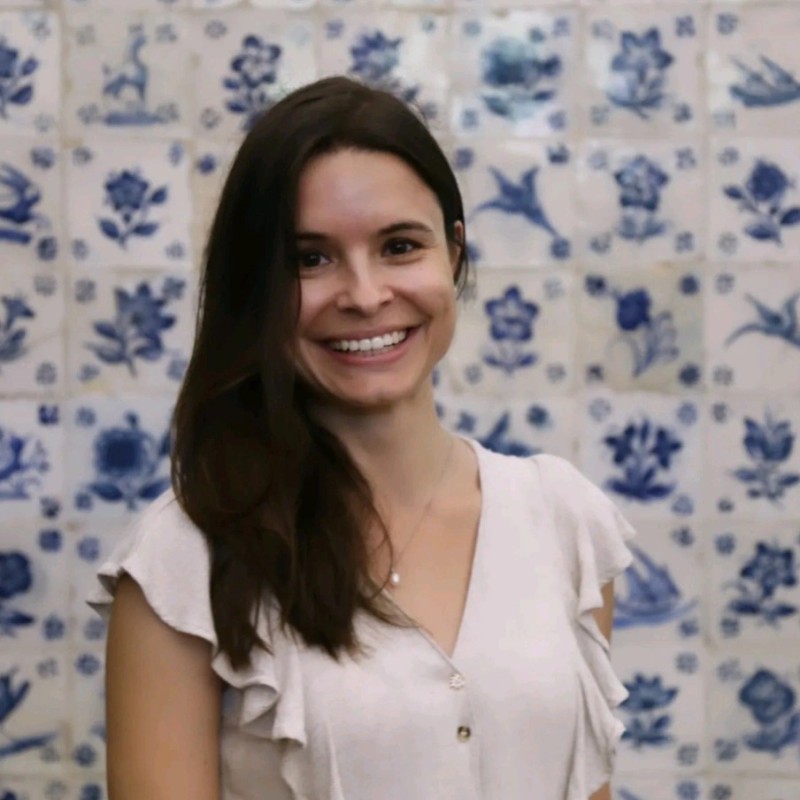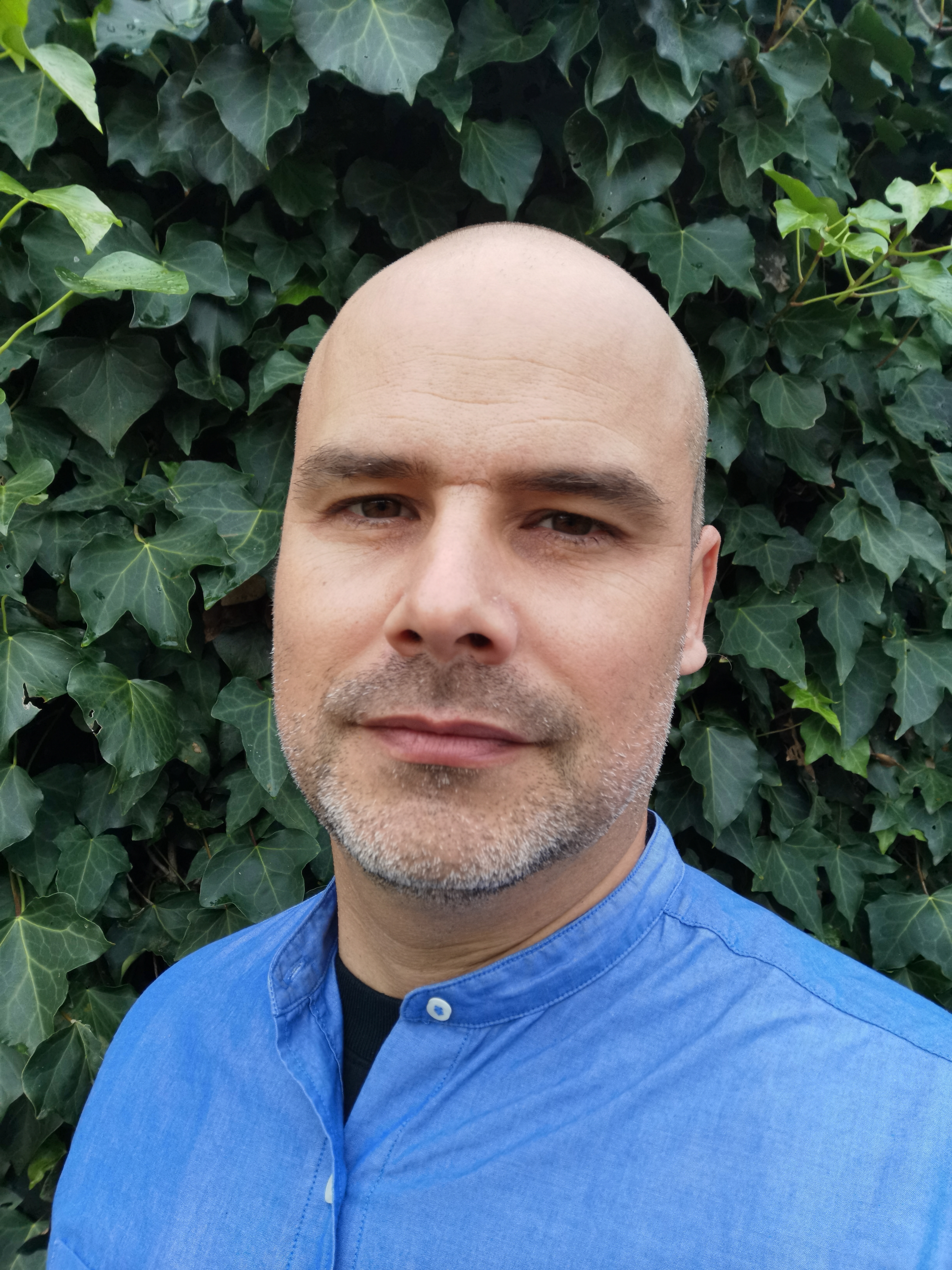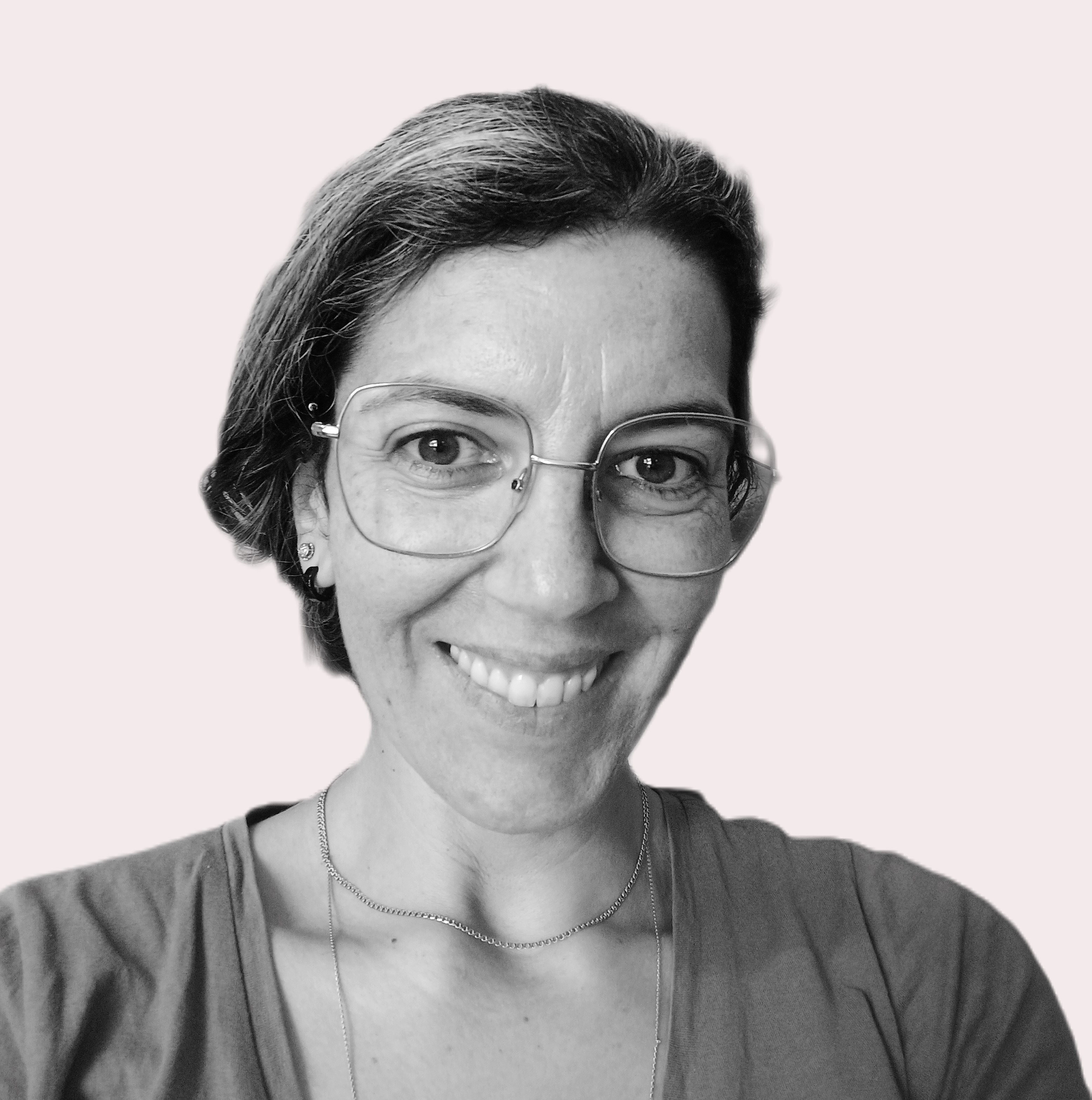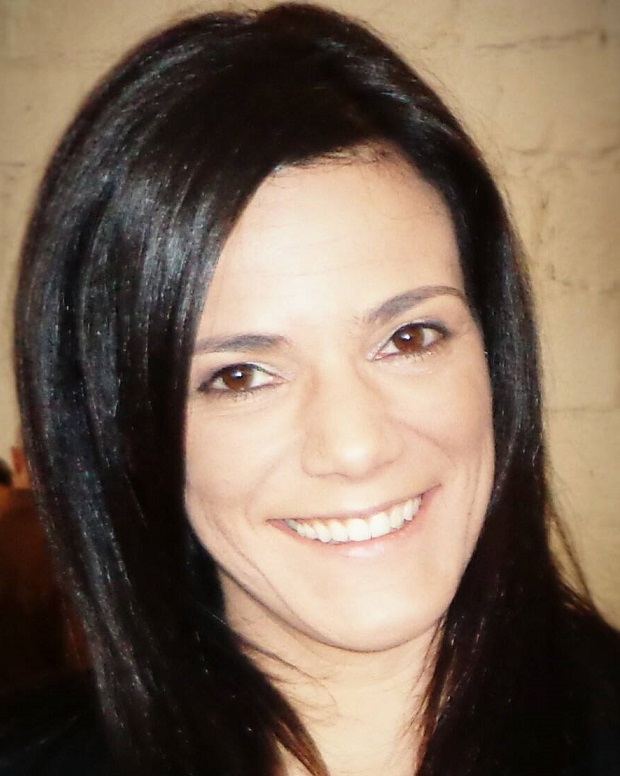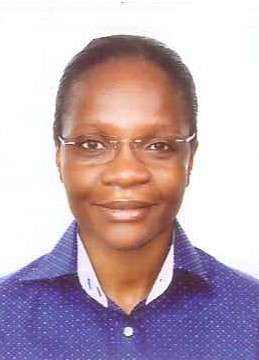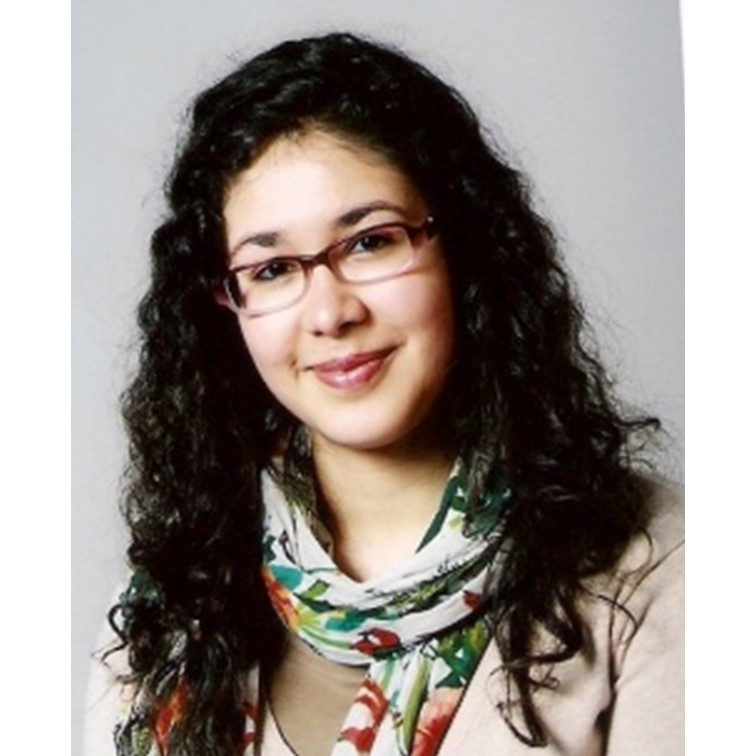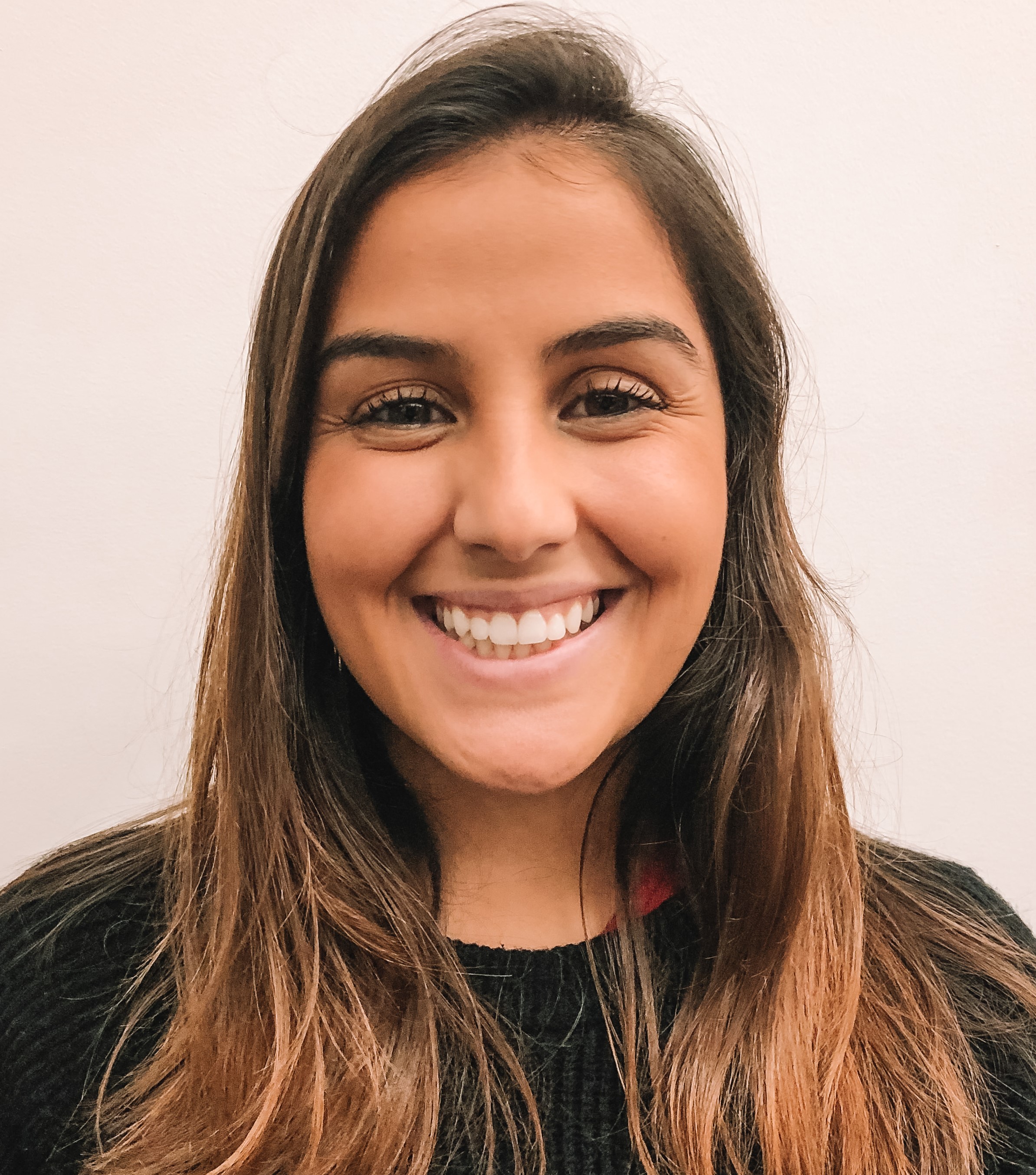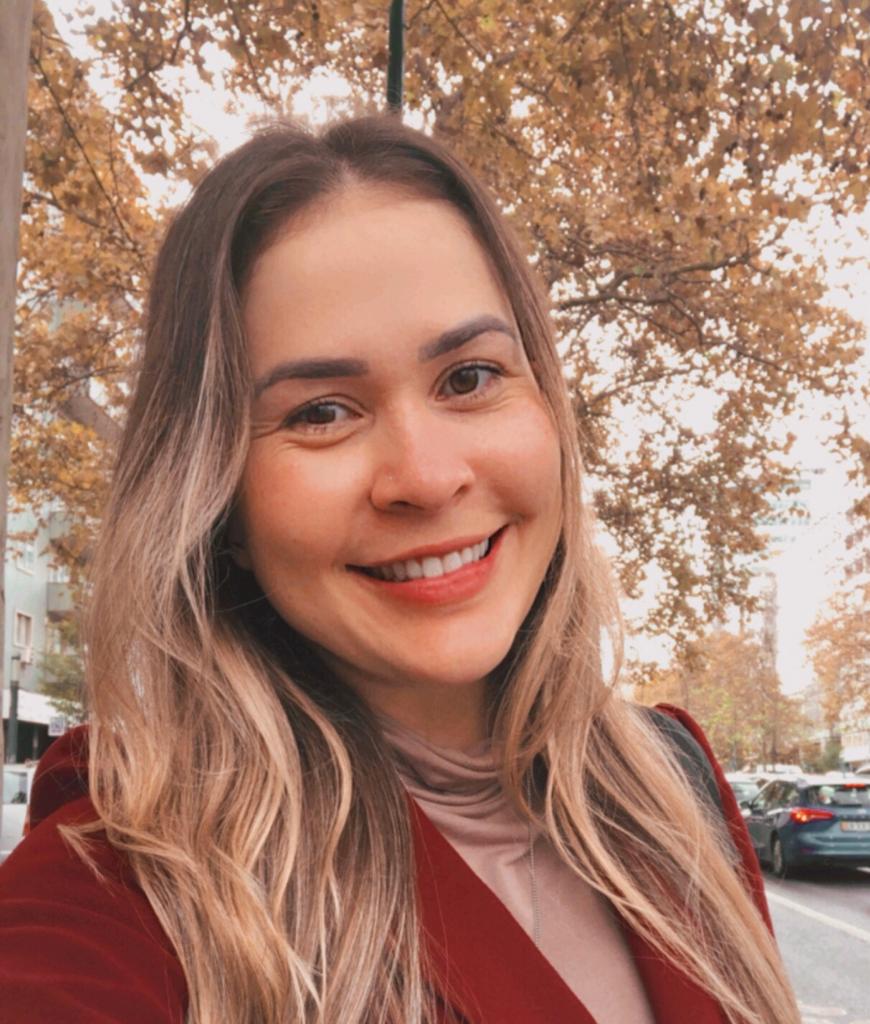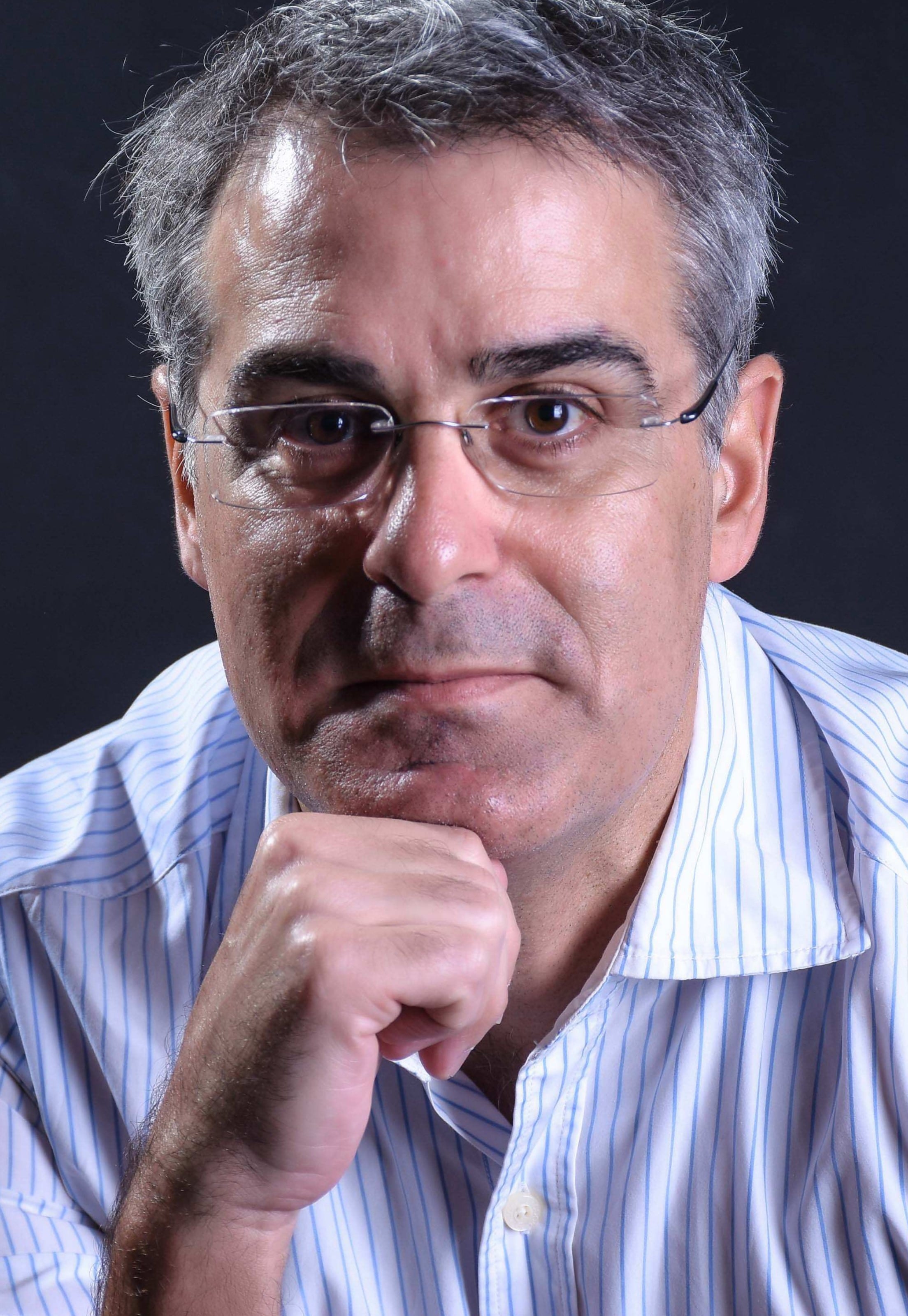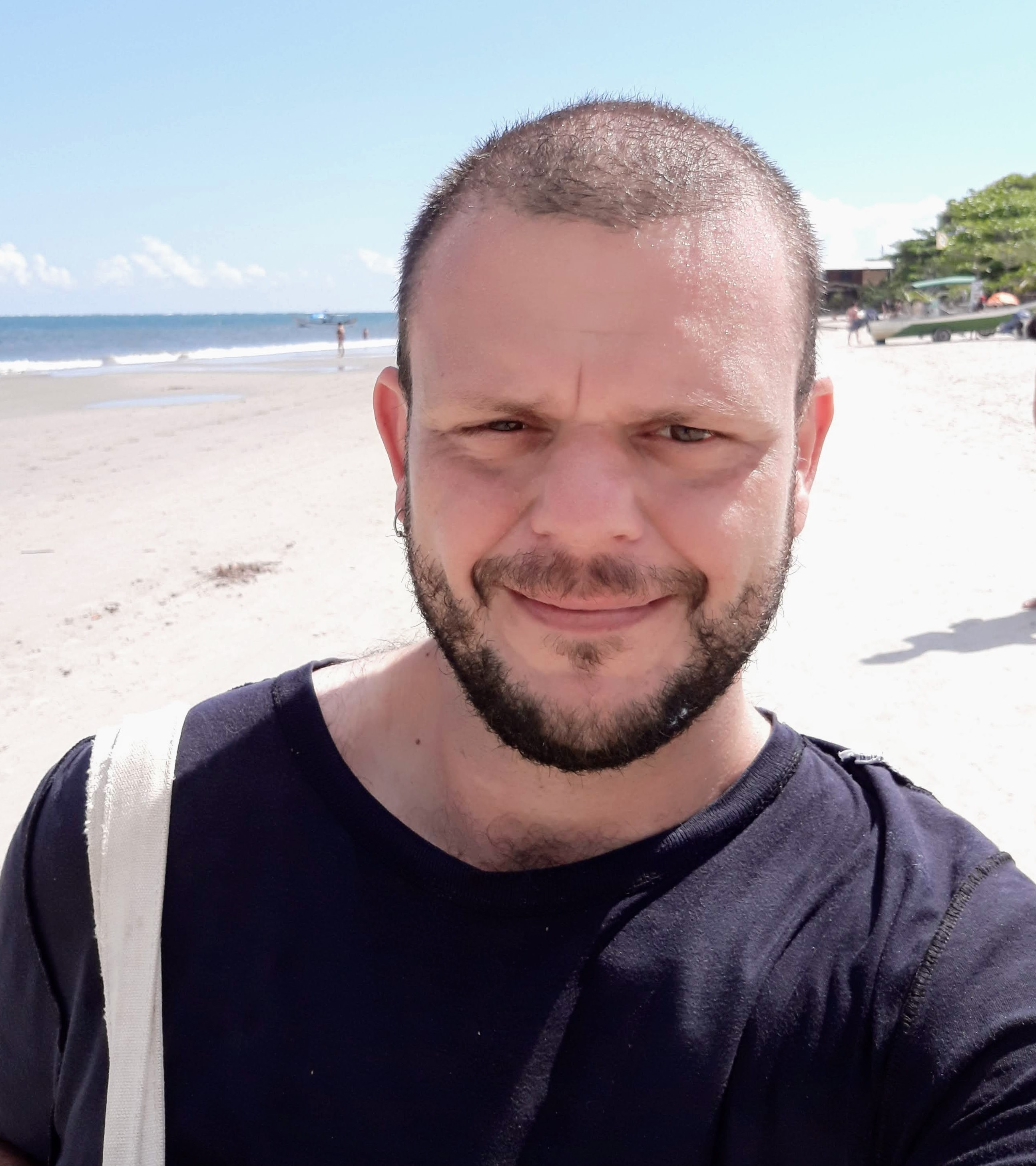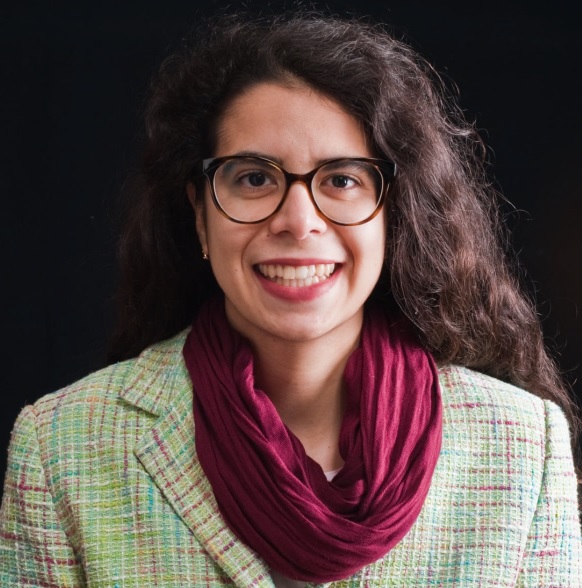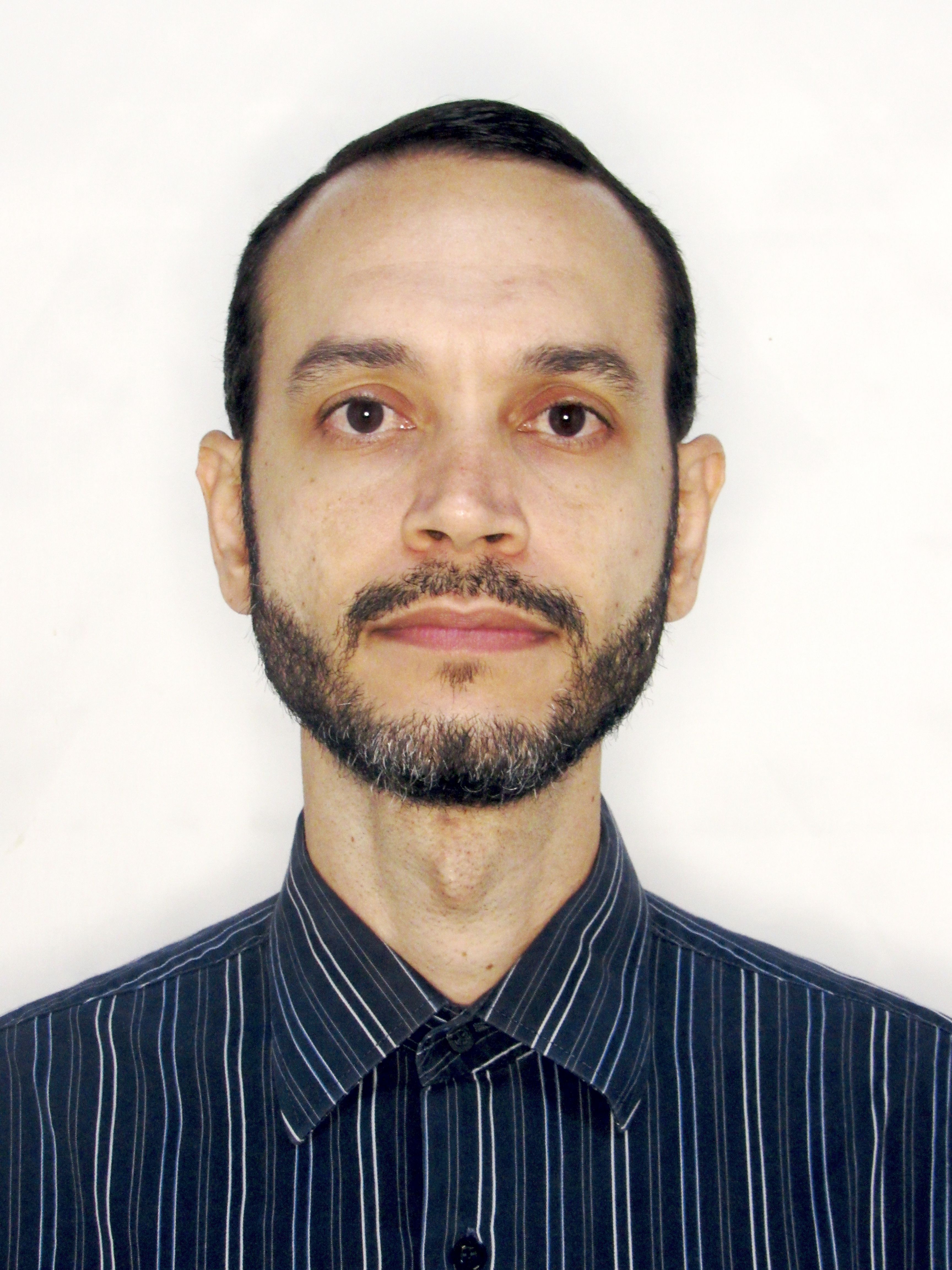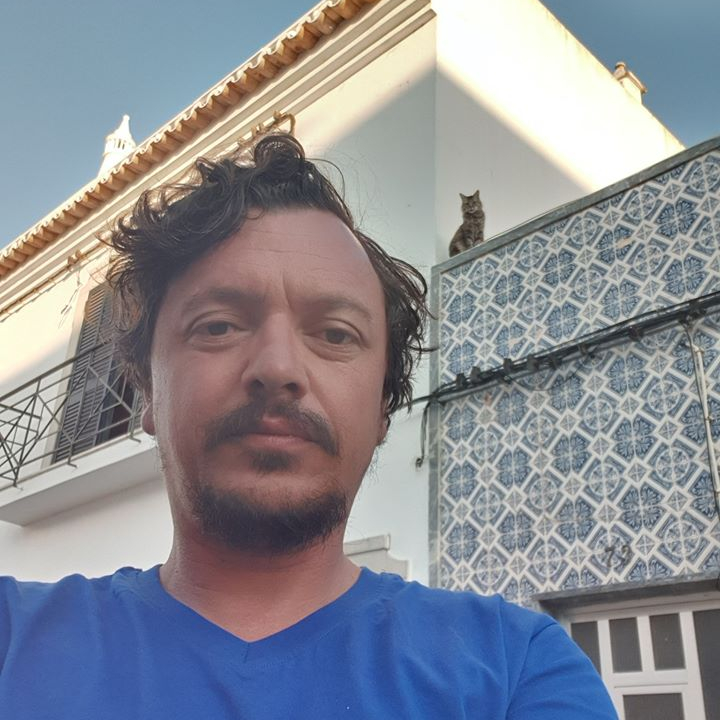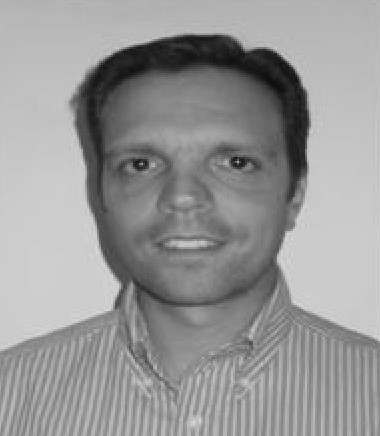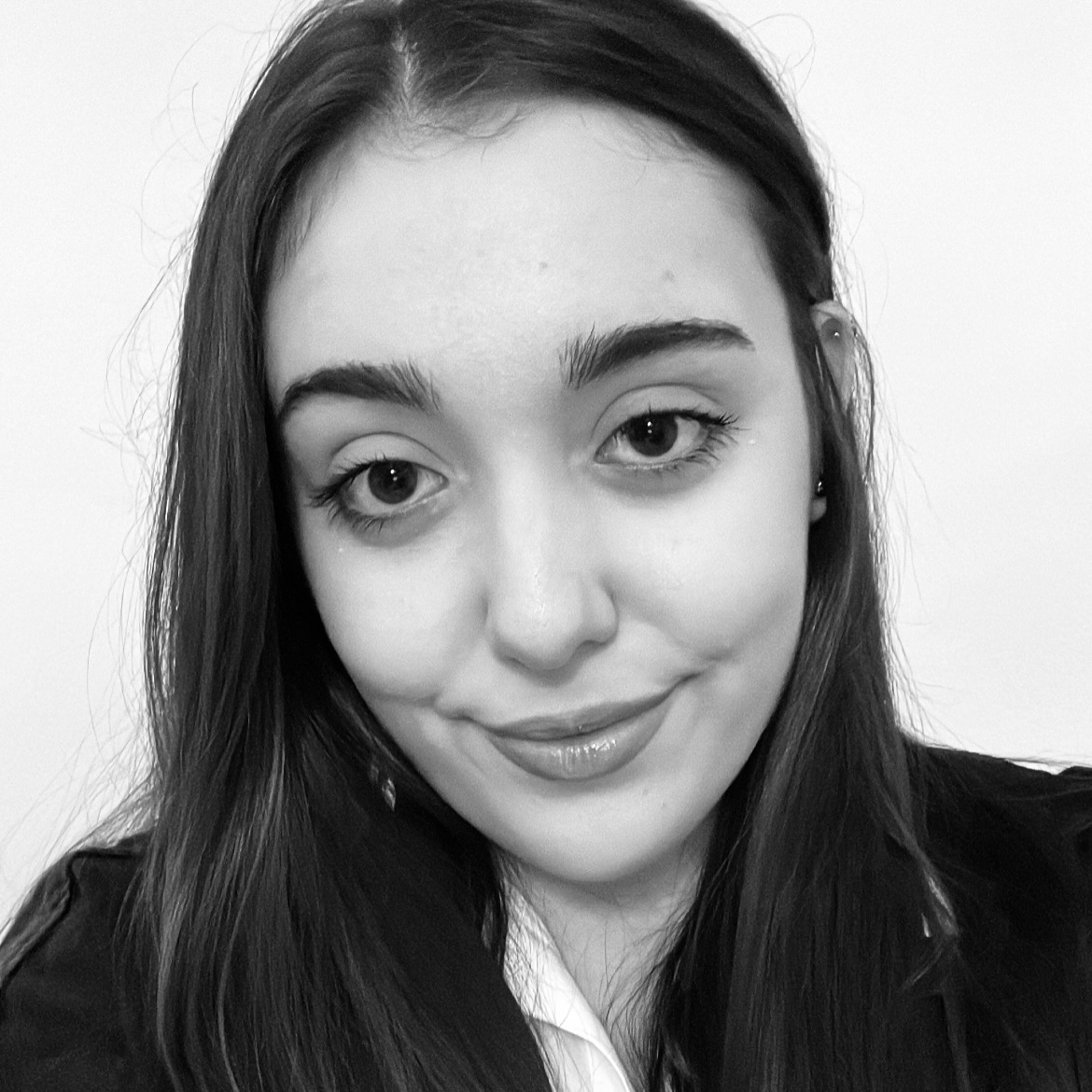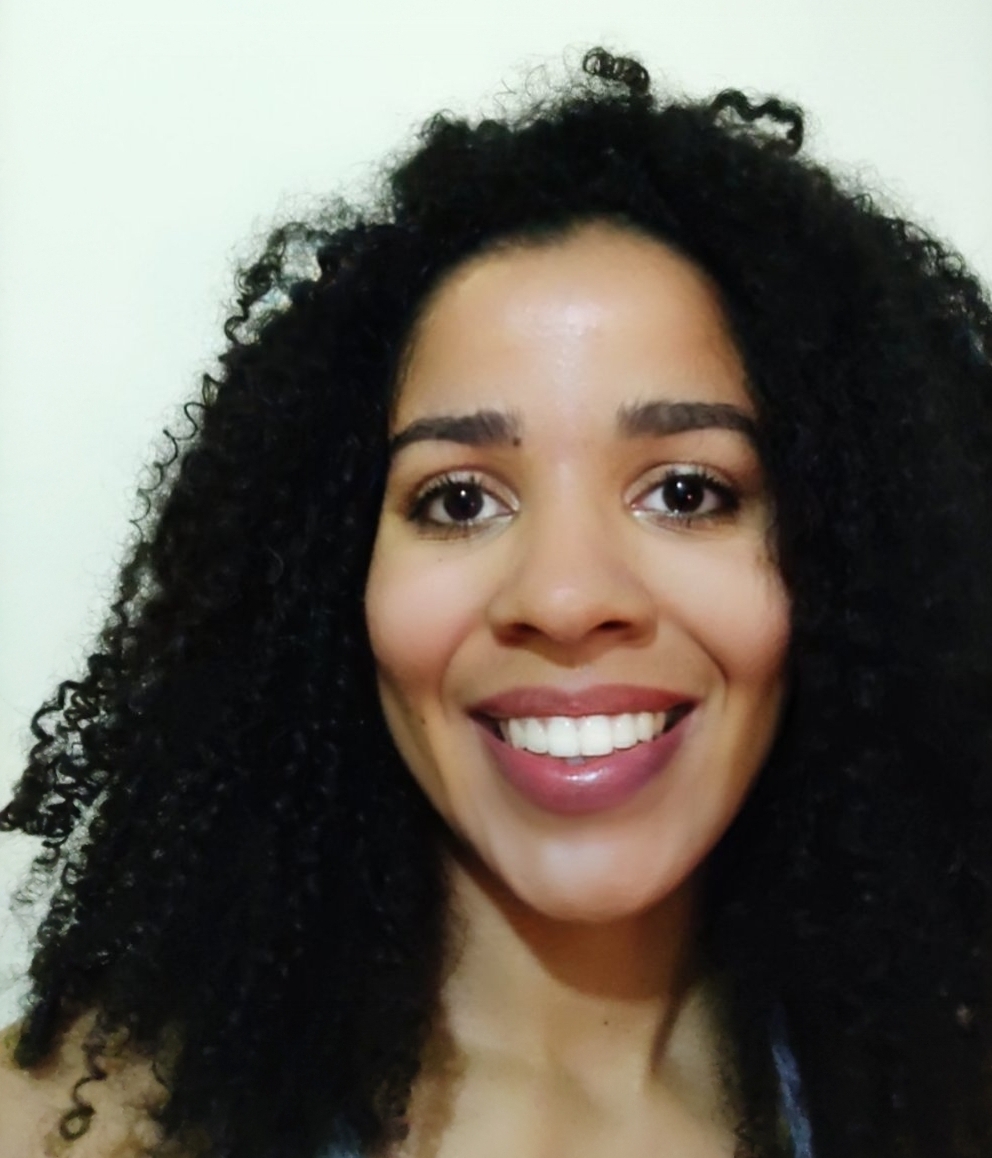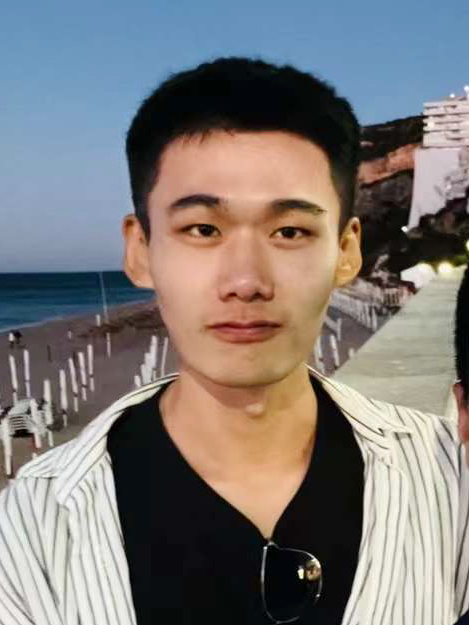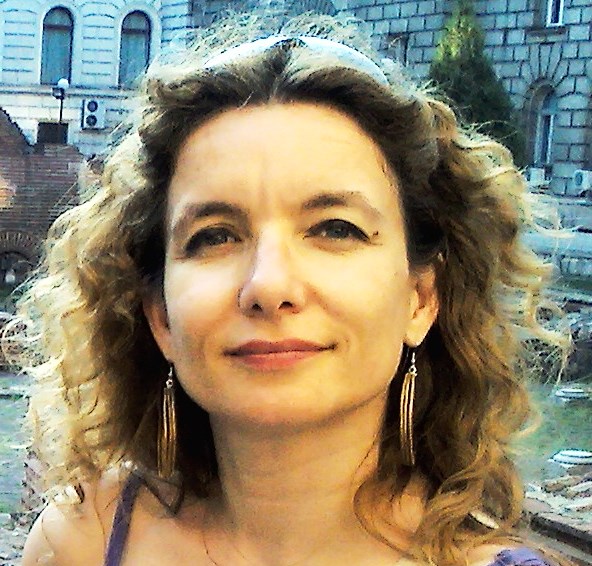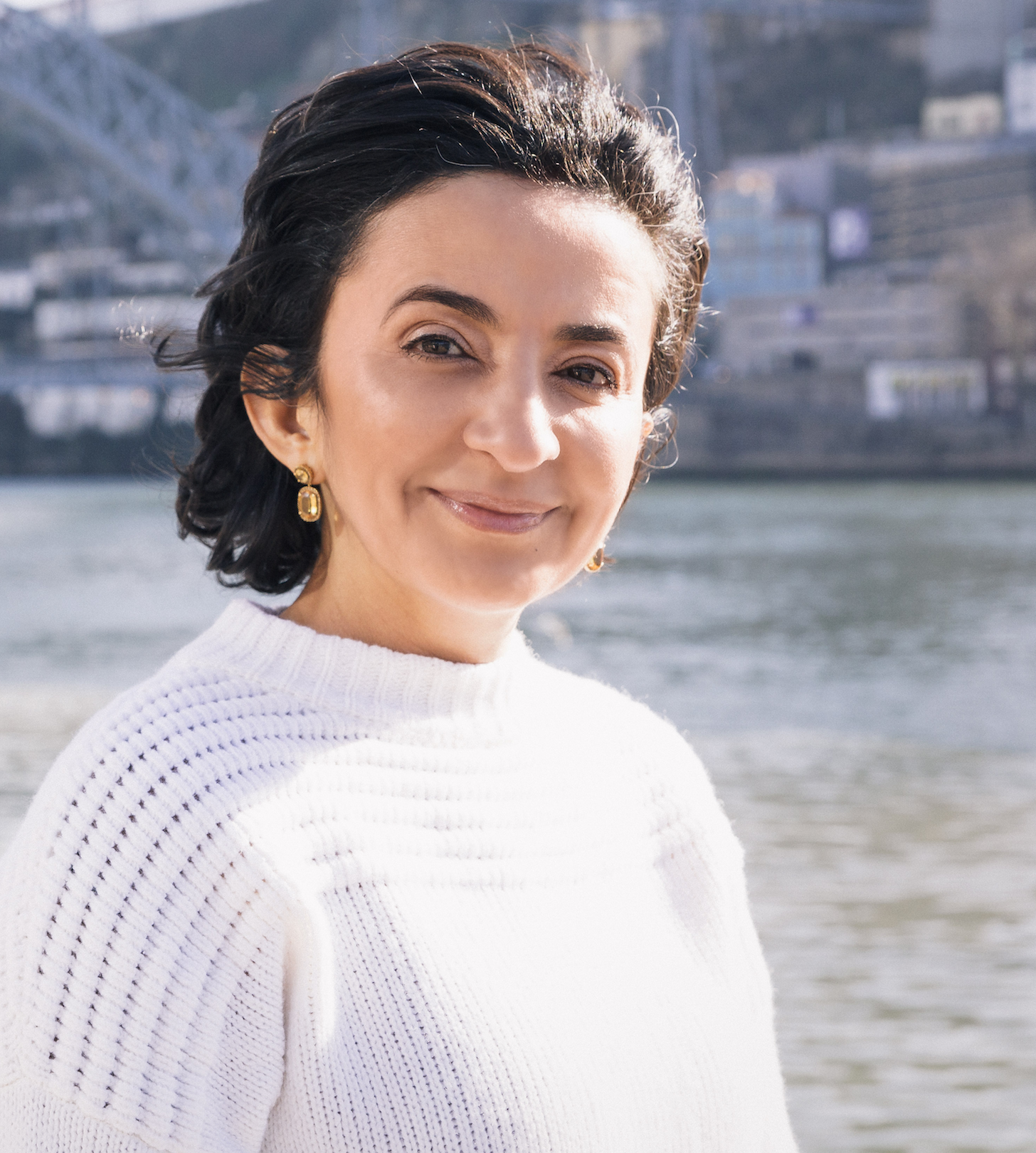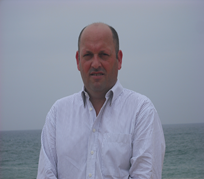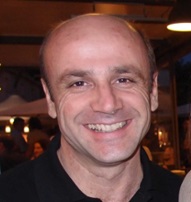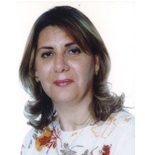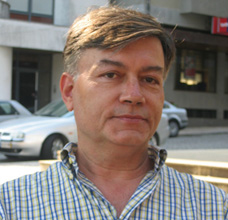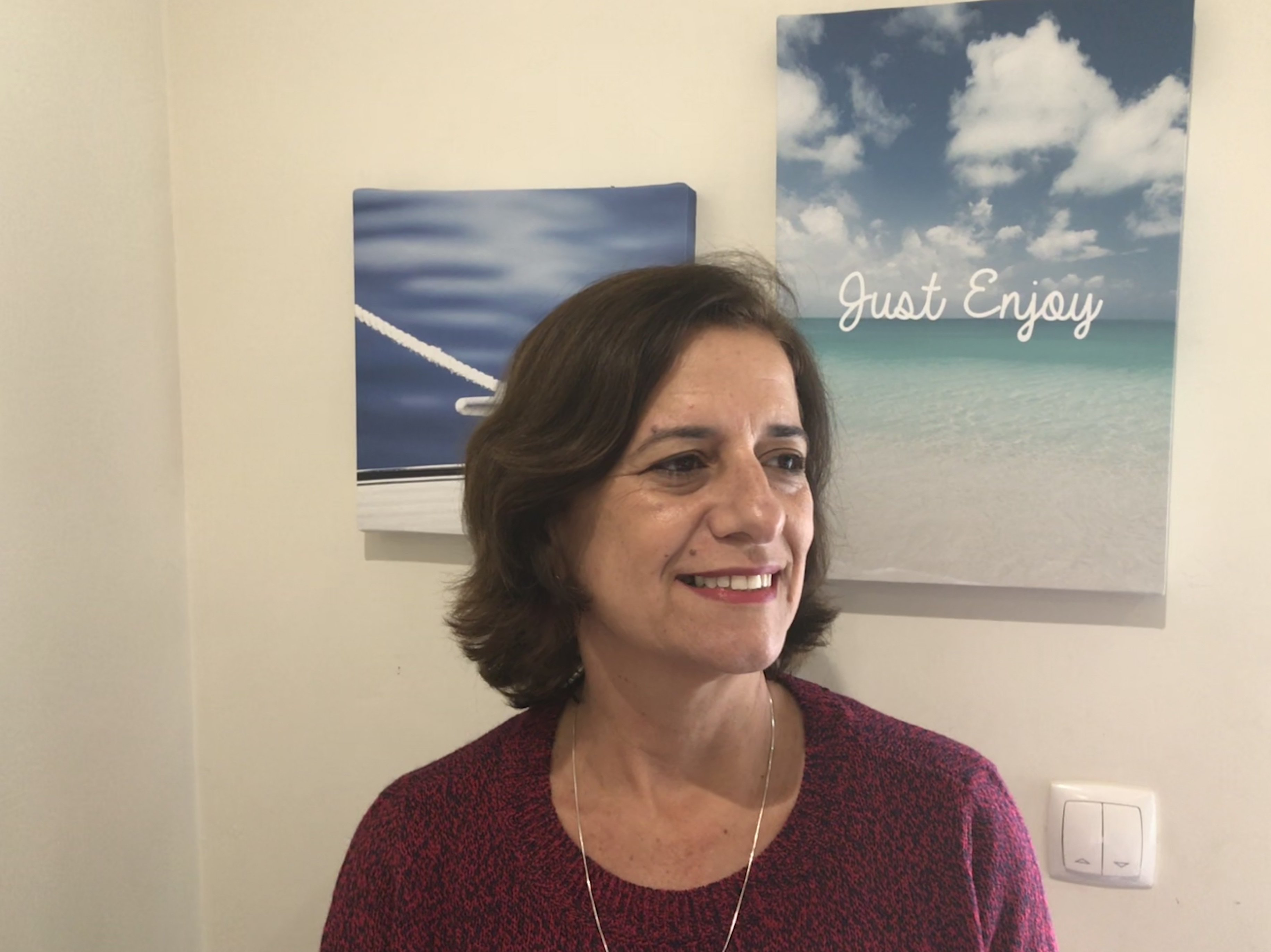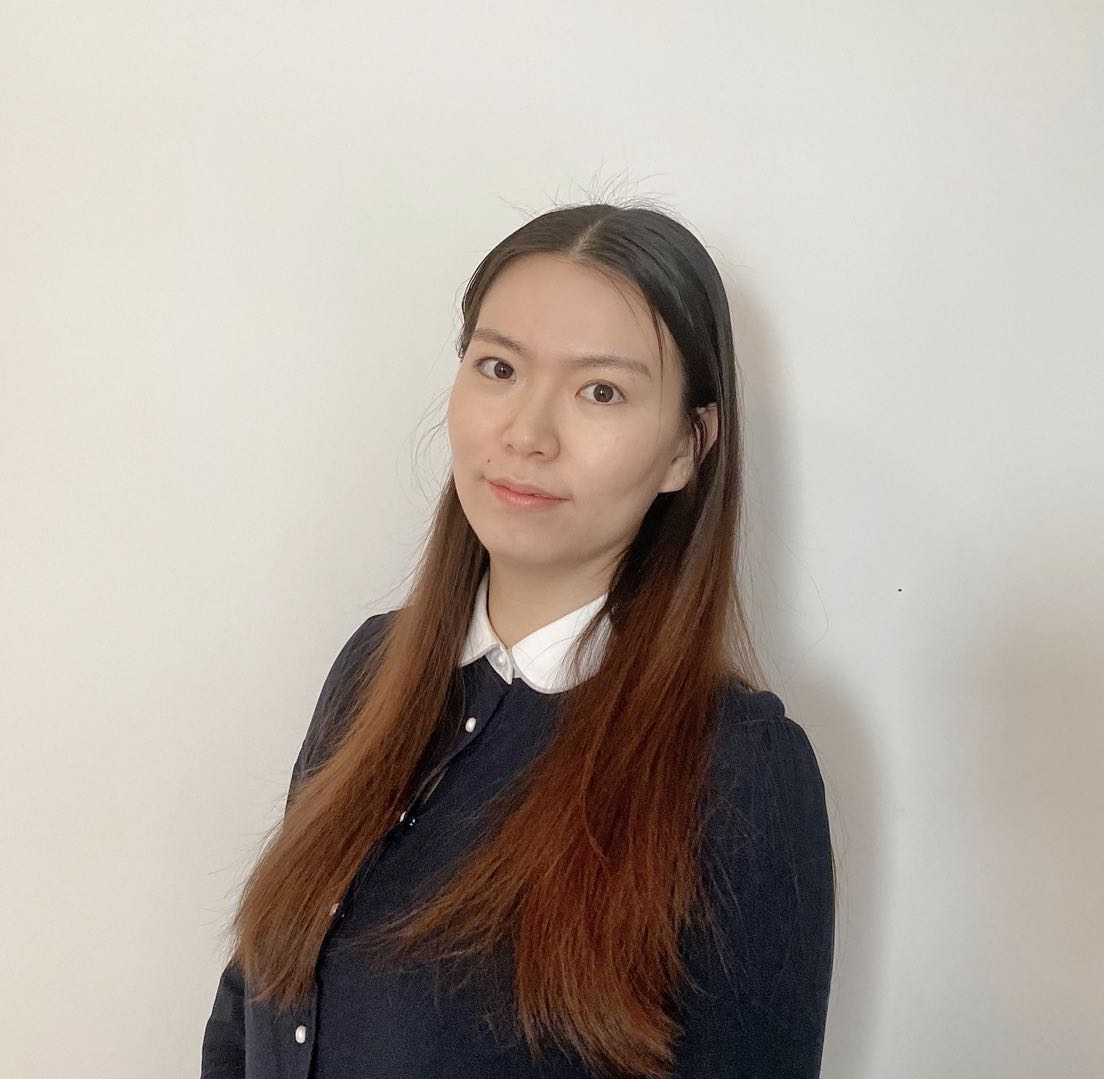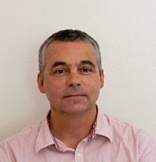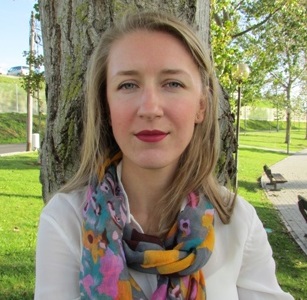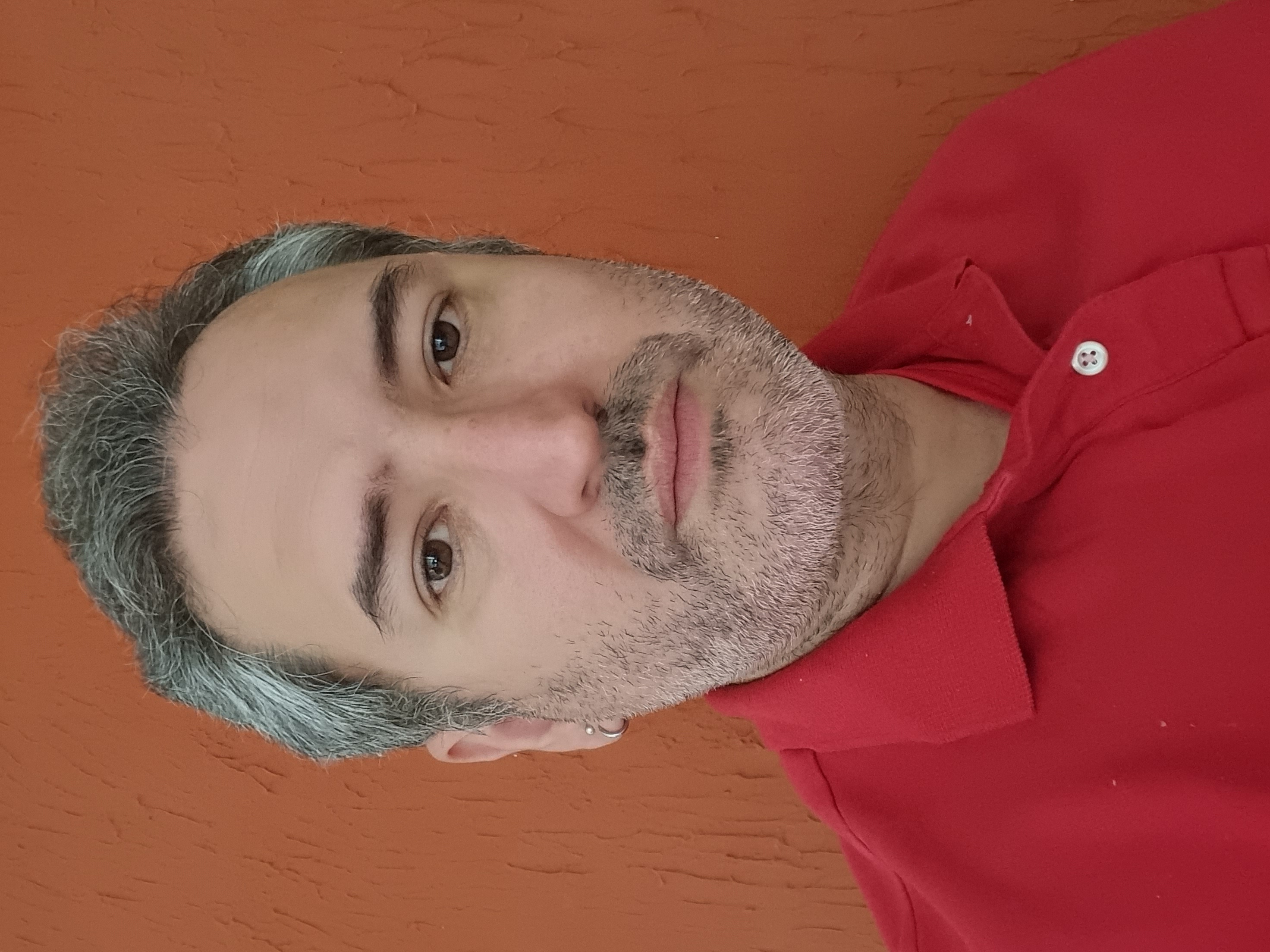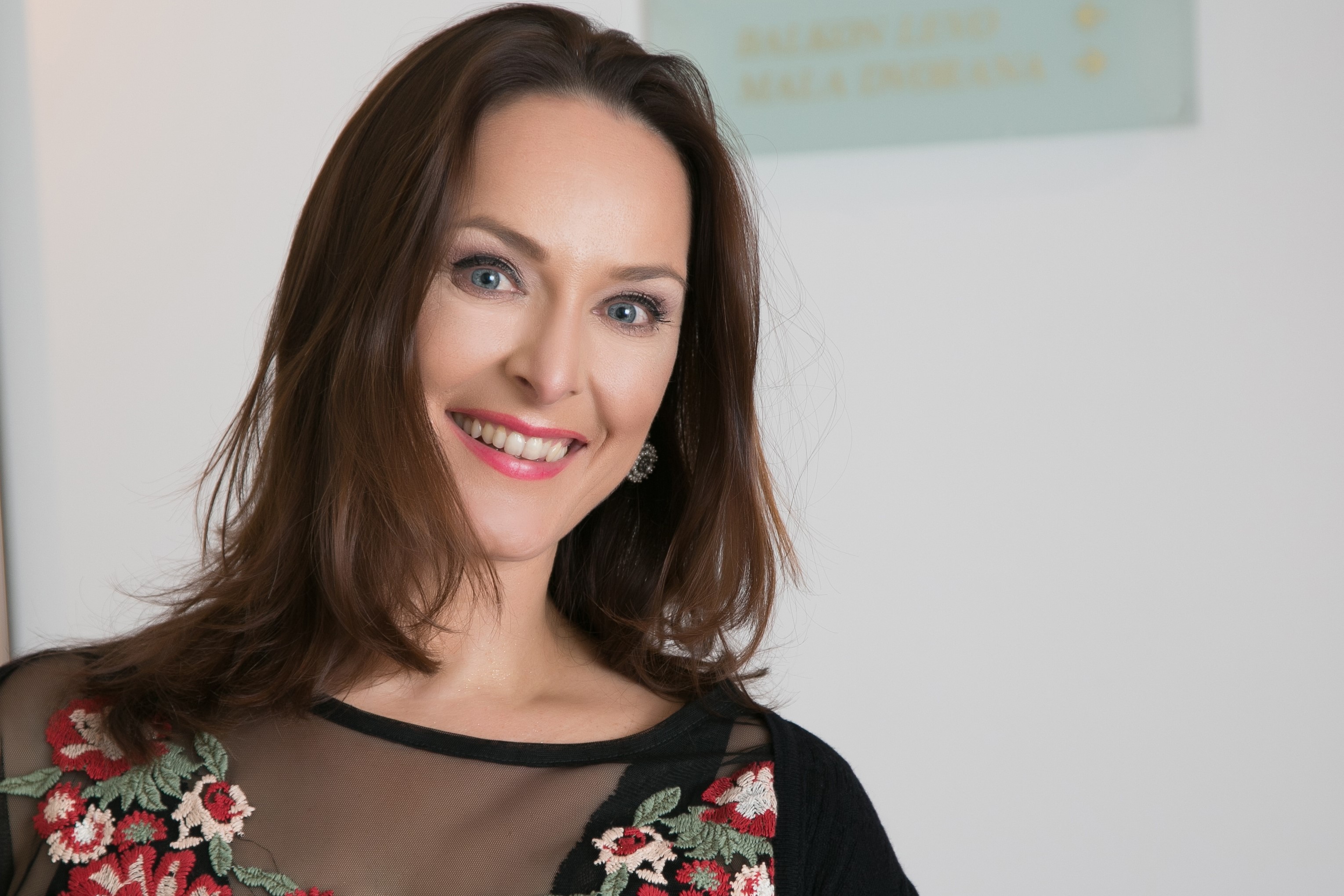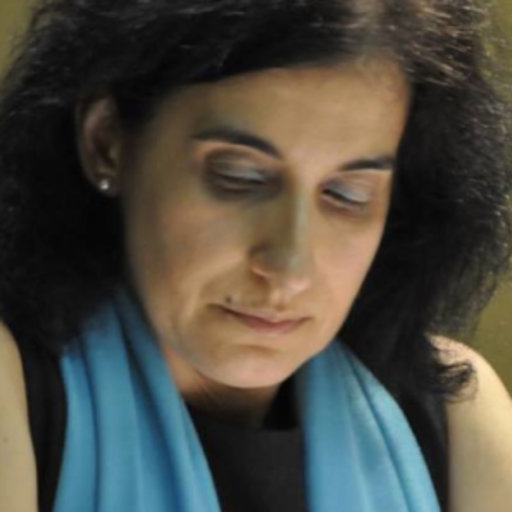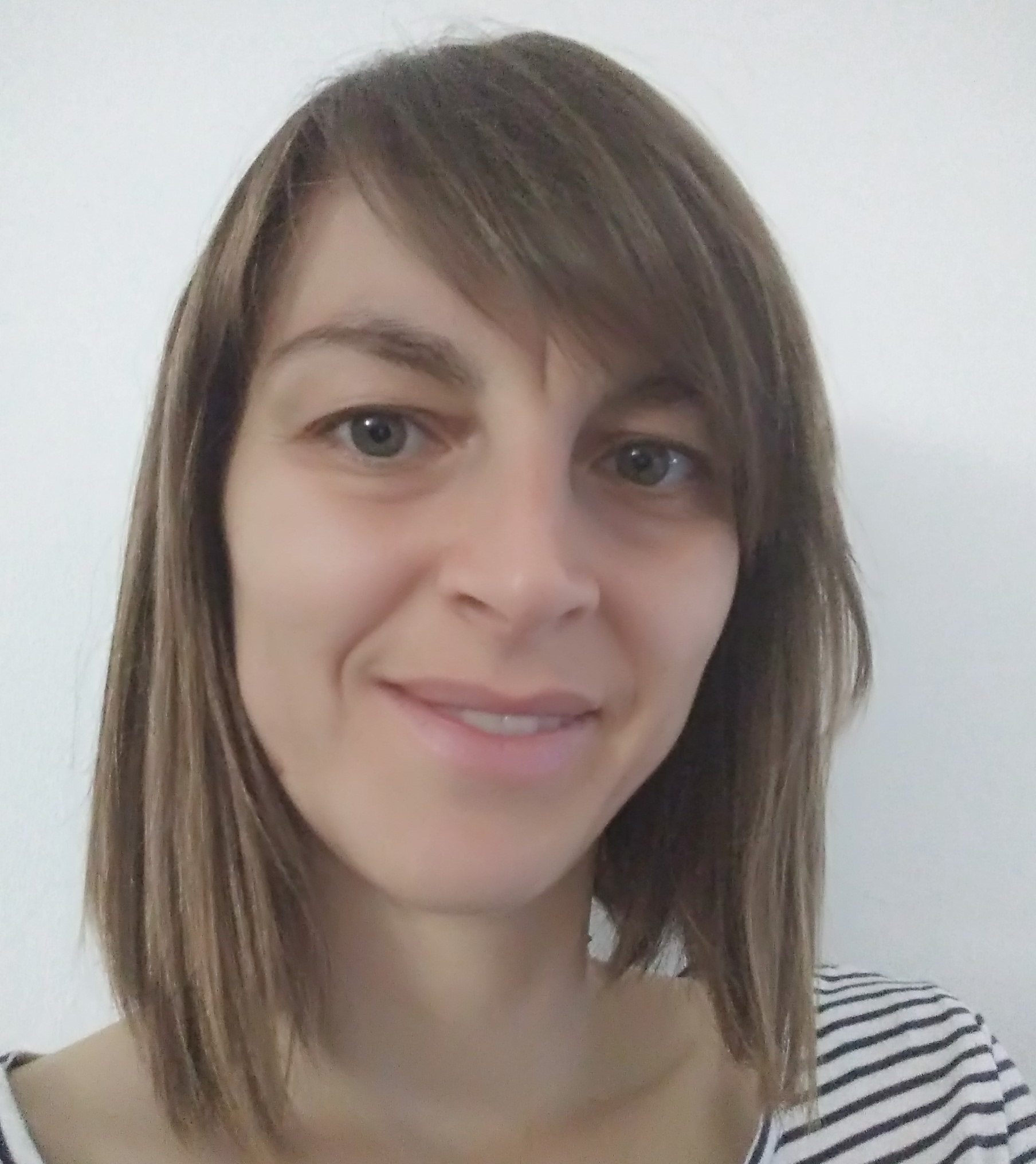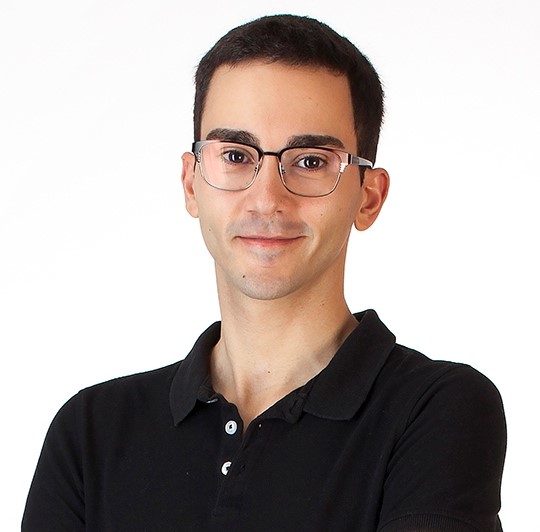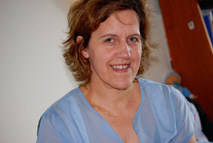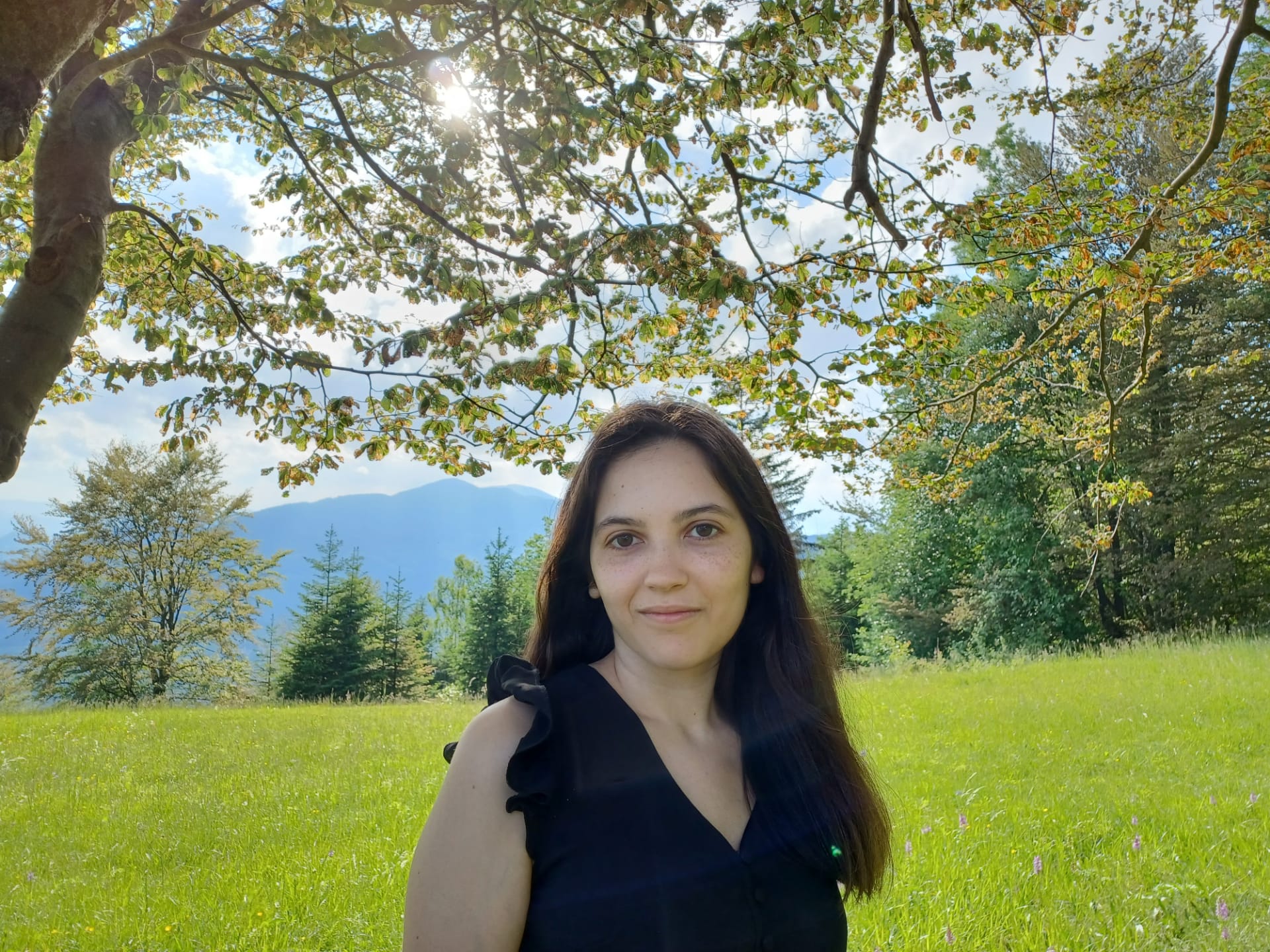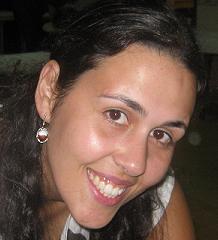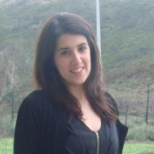Não Doutorados
Maggie Bertolacci is a master’s student in Linguistics at Faculté des lettres et des sciences humaines de l’Université Laval (Québec, Canada). At the moment, she is doing a research internship at Academia das Ciências de Lisboa and at Faculdade de Ciências Sociais e Humanas (NOVA FCSH) with the professors Ana Salgado and Rute Costa. For her master’s thesis (director: Bruno Courbon, Université Laval), she is studying the lexicon expressing slowness in French (Québec, France) and in Portuguese (Portugal, Brazil). Her approach is a corpus semantic study comparing the contexts of use (text theme, sentence construction, co-occurrence,…) of selected lexical unities linked to the notion of slowness (ex. lenteur-lentidão; ralentir-abrandar) in the two idioms (interlinguistic approach) and between the four cultural regions (intercultural approach). The main domains of her thesis are semantic, lexicology and lexicography.
Administrative support
Ana Miguel Leite is a Project Manager at NOVA FCSH, where she supports the scientific coordination and implementation of the iRead4Skills project (Intelligent Reading Improvement System for Fundamental and Transversal Skills Development). She has a diverse background in project management and strategic analysis. Her career includes roles in various Horizon Europe projects and in the Economy Division of Porto City Council, always with a focus on innovation, business intelligence and public policy. She has a PhD in Political Economy from the Faculty of Economics of the University of Coimbra, ISCTE and ISEG.
Integrated Members
Has a PhD in Linguistics – specialization in Lexicology, Lexicography and Terminology – from NOVA University of Lisbon and in Information and Communication Sciences from Communauté Université Grenoble Alpes in 2019 (under a dual degree PhD programme). Has a Master’s in Information and Documentation Sciences from NOVA University of Lisbon. Since 2019, he is an integrated member of the LLT group of the Linguistics Centre of NOVA University of Lisbon, where he conducts research on multilingual terminology and ontologies in specialised domains.
Member of the Grammar and Text group since 2011, she has been developing research work in the area of Semantics. She is currently a teacher at the Grupo de Recrutamento 300 (Portuguese/French) of Schools Grouping S. João do Estoril.
Having a PhD in Computational Linguistics from the University of Lisbon since 2010, she collaborated and later integrated as a full member the Centre of Linguistics of the University of Lisbon from 1999 to 2015. She is member of the Lexicology, Lexicography and Terminology group of CLUNL since 2015. She participated in many projects, having coordinated 6, in Corpus Linguistics, Computational Lexical Semantics, Lexicography and Language Technologies, from which we highlight the Reference Corpus of Contemporary Portuguese, WordNet.PT, and the ongoing iRead4Skills. She teaches Computational Linguistics, Lexicology and Lexicography and Specialized Corpus courses of the graduation, MA and PhD programs at NOVA FCSH and is supervisor of several PhD and MA projects. She was an invited teacher at Polytechnic University of Macao and Pedagogic University of Maputo and is currently an invited teacher and Board Member of the PhD program on Linguistics and Digital Humanities at Palačký University, Czech Republic. She has also collaborated with Lionbridge as Computational Linguist in parsing and grammar checking development in several projects.
PhD in Linguistics (Lexicology, Lexicography and Terminology) from the School of Social Sciences and Humanities of NOVA University Lisbon, under the supervision of Professor Raquel Amaro and Professor Sara Mendes. She obtained a Bachelor’s degree in Modern Languages and Literature at the University of Turin (Italy) and a Master’s degree in Translation at the Faculty of Humanities of University of Lisbon (Portugal). At CLUNL she participated in HUGOD project – Humanities Going Digital – and she was a research fellow in EXPRIMI project – Preliminary corpus exploitation for inclusive task-based host language teaching – project
PhD in Lexicology, Lexicography and Terminology at School of Social Sciences and Humanities of NOVA University Lisbon, supervised by Professor Raquel Amaro, Professor William Martinez and Professor Teresa Lino. Master (in Phonetics and Phonology) and graduation in Linguistics at the Faculty of Letters, University of Lisbon. She is a member of the Portuguese team in the Project iRead4Skills – Intelligent Reading Improvement System for Fundamental and Transversal Skills Development [101094837]. Researcher (with scholarship) in several projects such as Corpus of Spontaneous Speech in European Portuguese (2006), Portuguese Language Portal (2006-2010), Vocabulary of the Portuguese Language (2009-2010), Project Portuguese Unisyn Lexicon (2010-2013), and European Portuguese-Standard Arabic Dictionary (2017-2020). Currently, she also collaborates at LAPE 4004 in the surveillance and evaluation of CAPLE exams.
PhD in Linguistics and Language Teaching, she was a FCT PhD grant holder (SFRH/BD /73881/2010) and she completed her thesis on relations between Grammar and Reading, under the supervision of Professors João Costa and Ana Costa. She holds a degree in Modern Languages and Literatures – Portuguese and English Studies and a specialization in Language Teaching. She has been a teacher and has collaborated with the Ministry of Education and the Camões Institute. She has participated in research projects in L1 and L2 acquisition and in different areas of Portuguese teaching, such as curricular development, language assessment and development of teaching materials. Since 2017 she is an Assistant Professor in the Linguistics Department of NOVA FCSH and in 2020 she started the individual project “Language and literacy at school: the contribution of metasyntactic abilities to reading comprehension development” funded by FCT (CEECIND/00274/2018).
PhD from Université Paris 8 (Études Portugaises, Brésiliennes et de l´Afrique Lusophone) and from Minho University (Language Sciences, in cotutelle), she is a Guest Assistant Professor for the Department of Humanities at Universidade Aberta. She is an integrated researcher at Linguistics Research Centre of the Universidade NOVA de Lisboa (CLUNL), a member of the Research Group “Grammar & Text”, and a collaborating researcher at the Distance Education and eLearning Laboratory (Le@d) of the Universidade Aberta, where she is part of the El@n group (Teaching Languages Online). She has developed and published research papers in the framework of Semantics, Pragmatics and Discourse Analysis, with particular focus on political discourse, as well as in the area of teaching Portuguese as a foreign language.
Assistant Professor in the Linguistics Department of the Faculdade de Ciências Sociais e Humanas of Universidade NOVA de Lisboa and researcher at Centro de Linguística da Universidade NOVA de Lisboa. Being currently in charge of the database BILP-Bibliography of Portuguese Linguistics (http://bilp.clunl.fcsh.unl.pt/bilp/), has published several works in the area of word-formation, for the most part on productivity, compositionality and lexicalization, among other topics.
Having concluded her PhD in Linguistics 2021, she develops her research in Syntax and L2 Acquisition. She collaborated and, later, was a full member of the Centre of Linguistics of the University of Lisbon. She collaborated on several projects focusing on the Acquisition of Portuguese as first and second language, Portuguese varieties, and (oral and written) corpora annotation. She was an Invited Assistant Professor at NOVA FCSH and ISPA. Now she is a member of the LiFE Group at CLUNL, where she develops her research on Syntax and L1 and L2 Acquisition.
Associate Professor at Escola Superior de Saúde do Instituto Politécnico de Setúbal, PhD in Linguistics by Universidade NOVA de Lisboa and Université Paris 8 (cojoint programme), and researcher in the group LiFE – Formal and Experimental Linguistics of Centro de Linguística da Universidade NOVA de Lisboa. She was a visitor at MIT, University of Cambridge and Laboratório de Psicolinguística e Aquisição da Linguagem da Pontifícia Universidade Católica do Rio de Janeiro. Her research focuses on Language Acquisition and Language Impairment, and currently she is working on the development of assessment and intervention tools for children with language impairment.
Clara Nunes Correia is PhD in semantics by Universidade NOVA de Lisboa. Currently she is Assistant Professor at the Linguistic Department in the same university. She is responsible for undergraduate and post-graduate semantics courses and her main research is developed on reference and on tense and aspect of Portuguese.
Susana Correia is an Assistant Professor in the Linguistics Department of NOVA FCSH and she is a member of the Linguistics Research Centre of Universidade NOVA de Lisboa (CLUNL). Her research interests cover L1 and L2 acquisition and the construction and validation of language assessment tools. She conducts research in the area of phonological development, phonological awareness, language impairment and early markers of language development. She is responsible for the area of teaching Portuguese as a Foreign Language at NOVA FCSH.
Associate Professor with ‘Agregação’ in Linguistics – Lexicology, Lexicography, Terminology, at NOVA University Lisbon. She is also the chairperson of ISO/TC37/SC2 “Terminology workflow and language coding” and, between 2013 and 2016, she was convencer of the ISO/TC37/SC1 WG3 to the standards ISO 704 and 1087. Between 2000 and 2006, she was the chairperson of the European Association of Terminology (EAFT). At NOVA FCSH she teaches Terminology, Theories in Terminology, Terminology and Ontologies, among others. At present, she is a guest lecturer at Université Savoie Mont-Blanc, France. She was a guest lecturer at University of Luxembourg and Universidade Agostinho Neto, Luanda. She is guiding a dozen of PhD theses, some of them co-tutelary. In 2011, she was awarded with the Order “Chevalier de l’Ordre des Arts et des Lettres”.
Associate Professor at School of Social Sciences and Humanities of NOVA University Lisbon (NOVA FCSH) and researcher at Linguistics Research Centre of NOVA University Lisbon (CLUNL). She has a PhD in Linguistics – Text Theory and is developing research within Grammar & Text research group. She is mainly interested in Socio-Discursive Interactionism theoretical and epistemological framework, focusing on the following issues: a differential description of text genres, the relationship between text genres and styles, teaching/learning grammar and text, writing and writing development, parity in language
Master and PhD in Linguistics (Lexicology – Lexicography – Terminology) at the School of Social Sciences and Humanities of the Universidade NOVA de Lisboa, graduated in Romance Philology at the Faculty of Letters of the University of Liège (Belgium). Researcher in the area of terminology and legal translation and teaching/learning French Foreign Language, particularly in its specialized aspect. French language lecturer at the universities of Bologna and Ferrara (Italy) (1995-1997), at the Faculty of Letters, University of Lisbon (1997-2001) and at the Faculty of Social and Human Sciences, New University of Lisbon (2001-2013). Invited assistant at the Superior School of Education, Polytechnic Institute of Santarém (2010-2013). She is currently invited assistant professor at the School of Social Sciences and Humanities of the Universidade NOVA de Lisboa, teaching didactics of French, translation and French language.
Susana Duarte Martins is an assistant professor at NOVA FCSH (Department of Portuguese Studies) with a PhD in Linguistics and an integrated researcher at the Linguistics Research Center of NOVA University of Lisbon. She taught Portuguese Language and Culture for Foreigners at the same university and has collaborated in the assessment and implementation of the CAPLE (Centre for Evaluation of Portuguese as a Foreign Language) exams. Currently, she is coordinating the project “TERMVEST – The Clothing Terminology: European Portuguese version”, in partnership with the Federal University of Rio de Janeiro. As a linguist project manager for an international company, she has worked with issues of Portuguese phonology and Text-To-Speech technologies. Susana performs research work in lexicology, lexicography, and terminology, foreign language and language for specific purposes teaching and learning. Besides linguistic proofreading, she has experience and training in creative writing, screenwriting, and journalism. She is a former Portuguese L1 and L2 teacher for the Portuguese Ministry of Education.
Adjunct Professor in the Escola Superior de Educação de Lisboa and researcher at the Centro de Linguística da Universidade NOVA de Lisboa. She develops research in Language Acquisition, Syntax and Writing. She has presented communications and has published papers on her research topics.
PhD in Linguistics (Text and Discourse Linguistics) and MA in Linguistic Revision and Consultancy awarded by Universidade NOVA de Lisboa. She is a researcher at Centro de Linguística da Universidade NOVA de Lisboa and a member of the Grammar & Text research group. She carries out research on translation revision, privileging the articulation between the epistemological framework of Socio-Discursive Interactionism and Translation Studies. She has been working as a freelance translator and reviser for several years and completed an internship at the Directorate-General for Translation (Brussels). She is currently a guest lecturer at the Linguistics Department of NOVA FCSH.
Assistant Professor at the School of Social Sciences and Humanities of the Universidade NOVA de Lisboa, teaching courses in syntax, variation and second language teaching. She is also a researcher in the Linguistics Research Centre of Universidade NOVA de Lisboa, participating in projects in the areas of Portuguese syntax (synchronic and diachronic), acquisition of Portuguese as first and second language, teaching/learning of Portuguese as second language and material development for second language teaching.
Yuxin Ge is a postdoctoral researcher in second language (L2) phonology at CLUNL, currently supported by an ERA Fellowship under the HORIZON-WIDERA-2024-TALENTS-02-01 call. Her research investigates how adult learners acquire non-native phonological features and vocabulary, focusing on the cognitive mechanisms underlying learning and individual differences in learning outcomes. Yuxin holds a PhD in Linguistics from Lancaster University (UK), where her doctoral research used a cross-situational statistical learning paradigm to examine the acquisition of non-native words by adults. During her PhD, she contributed to the ProPerL2 project at CLUNL [FCT grant agreement 2022.04013.PTDC], and subsequently held a postdoctoral position at CLUNL funded by the Global Advancement Fund from Lancaster University.
Matilde Gonçalves, who holds a PhD from Université Paris 8 and Universidade NOVA de Lisboa, is an assistant professor at the Faculty of Social and Human Sciences of Universidade NOVA de Lisboa and a researcher at the Linguistics Centre of Universidade NOVA de Lisboa (CLUNL), where she works in the Grammar & Text group. Framed in text and discourse linguistics, particularly socio-discursive interactionism, her work focuses on language and mediation, the development of human beings throughout life through language practices, the relationship between social activities, genres and texts and scientific literacy.
PhD in Historical Linguistics from the School of Social Sciences and Humanities of NOVA University Lisbon. She is a member of the Grammar & Text research group at CLUNL. Her research focuses on the Historical Morphology of Portuguese, namely in the field of analogy and grammaticalization. Her other areas of interest are Historical Pragmatics, more specifically in the area of Courtesy. She has published works on Forms of Address and Morphology from a diachronic perspective. She has published work on Forms of Address and Morphology from a diachronic perspective. She has a degree in Modern Languages and Literatures – Portuguese and English Studies and a master’s degree in Historical Syntax of Portuguese from the Faculty of Letters of the University of Lisbon. She is currently a Visiting Assistant Professor at the FCSH and a Visiting Adjunct Professor at the Santarém School of Education. She also has extensive experience in teaching Portuguese (mother tongue and non-mother tongue).
Noémia Jorge is a researcher at the Linguistics Research Centre of NOVA University Lisbon and, currently, an Assistant Professor at Escola Superior de Educação e Ciências Sociais do Politécnico de Leiria (School of Education and Social Sciences of Polytechnic of Leiria). She has a PhD in Linguistics (specialist in Text and Discourse Linguistics) and her main research areas are text Linguistics and Portuguese Language Didactics.
Associate Professor with ‘Agregação’ at the Linguistics Department of the School of Social Sciences and Humanities of Universidade NOVA de Lisboa. Researcher at CLUNL and Collaborator at CLUL. Her main research interests are in the following areas: Syntax, Language Acquisition, Linguistic Variation.
Associate Professor in the Department of Linguistics of the School of Social Sciences and Humanities, teaching courses in general linguistics, syntax and second language acquisition. She is also a researcher in the Linguistics Research Centre of Universidade NOVA de Lisboa, participating in projects in the following areas: syntax (synchrony and diachrony of Portuguese); language policies; acquisition of Portuguese as a first and second language; material development for second language teaching.
Isabelle Simões Marques holds a PhD in Linguistics – Discourse Analysis (co-supervised with Université Paris 8, France). She is an Assistant Professor at Universidade Aberta (Portugal). She is a PhD Researcher at UIDB-FCT nº 03213 at the Linguistics Centre of the NOVA University of Lisbon (CLUNL) and a Collaborating Researcher at UID-FCT nº 4372, Laboratory of Distance Education and eLearning (LE@D) – Universidade Aberta, where she coordinated the EL@N (Online Language Teaching) project. She is also a collaborating researcher at the Centre for Global Studies (CEG) – Universidade Aberta. She has developed and published research in the fields of (Critical) Discourse Analysis, Sociolinguistics and Foreign Language Teaching, and has also favoured studies on plurilingualism and migration.
Ana Sousa Martins holds a degree in Modern Languages and Literatures – Portuguese Studies from the Faculty of Arts of the University of Porto and a degree in Modern Languages – Anglo-American Studies from the Faculty of Arts of the University of Coimbra. She has a master’s and a Ph.D. in Portuguese Linguistics from the Faculty of Arts of the University of Porto. She conducted a Post-Doctoral project in Portuguese Second Language Acquisition, funded by FCT, at the Faculty of Arts of the University of Lisbon (Ref.SFRH/BPD/40498/2007). She is an integrated member of the Linguistics Center of the Nova University of Lisbon; author of 11 books (2 in linguistics research and didactics; 9 related to Portuguese as a Second Language teaching); and has presented 50 articles and communications at national and international conferences. She has served on various academic juries as the main arguer and as a member of the Scientific Committee of several international congresses. She is the founder and coordinator of the Ciberescola Project – Learning Portuguese as a Second Language: www.ciberescola.com
Teresa Oliveira holds a PhD in Portuguese Linguistics from the Universidade NOVA de Lisboa, and is an assistant professor (“professora adjunta”) at the School of Education and Social Sciences of the Polytechnic Institute of Portalegre. She develops research in Semantics, and has presented papers and published scientific articles, particularly in the fields of modality, evidentiality and verbal typologies. She develops teaching activity in courses of teacher training and journalism and communication.
Holds a PhD in Linguistics – Lexicology, Lexicography and Terminology – from the NOVA University Lisbon, and in Sciences de l’Information et de la Communication by the Université Savoie Mont Blanc (cotutelle programme). She has collaborated with the Linguistics Center of NOVA University Lisbon as a Doctoral Fellow, within the Knowledge, Representation and Use (KRUse) programme, granted by the Fundação para a Ciência e Tecnologia (FCT) of the Ministry of Science, Technology and Higher Education (MCTS), and at the Laboratoire d’Informatique, Systèmes, Traitement de l’Information et de la Connaissance (USMB). She is currently a researcher within the Lexicology, Lexicography and Terminology (LLT) group. She is also a member of IPQ’s CT 221 Terminologia, Língua e Linguagens and of ISO TC 37, Language and Terminology. Her research interests focus on terminology, ontologies, lexicography, and corpus linguistics.
PhD in Linguistics (specialization area in Text and Discourse Linguistics) from NOVA University Lisbon. She is a researcher at CLUNL and a member of the Grammar & Text Group. Prioritizing the theoretical and epistemological framework of Sociodiscursive Interactionism, she has developed research focused on the description and didatization of text genres. Currently, she is teacher and tutor at Universidade Aberta (Introdução aos Estudos Linguísticos e Técnicas de Expressão e Comunicação I) and a teacher of Portuguese language at Escola Profissional de Artes, Tecnologias e Desporto.
Assistant professor of Linguistics and director of the Mestrado em Estudos de Língua Portuguesa at Universidade Aberta, Lisboa. She is member of the Linguistics Research Centre of the Universidade NOVA de Lisboa, and also member of Grupo de Investigação Pragmática. Discurso. Cognição (PraDiC) do Centro de Estudos Humanísticos da Universidade do Minho. She collaborates on research projects at Laboratório de Educação a Distância e e-learning (LeaD) of the Universidade Aberta de Lisboa. Her PhD is in the area of Portuguese Linguistics and her current research focuses on pragmatics, discourse analysis, rhetoric, epistolary, discourse analysis of computer mediated communication and social and linguistic effects of digital technologies.
Gabriela Tavares has a Master in Portuguese as a Foreign Language (L2/LE) by the Faculty of Arts and Humanities of the University of Porto, and a PhD in Language Teaching – Multilinguism and Education for a Global Citizenship, by NOVA FCSH/Universidade Aberta. She teaches Portuguese L2, collaborating with various institutions in Hungary, and is currently the Portuguese lecturer at the Centre for Foreign Language Education and Research of Corvinus University, in Budapest. She carries out research work in L2 Phonology acquisition, with a focus on the acquisition of European Portuguese.
Researcher at the Linguistics Centre of NOVA University Lisbon, in the Grammar & Text group, holds a PhD in Text and Discourse Linguistics, with a grant from the Foundation for Science and Technology, from NOVA University Lisbon. She develops research within the framework of Sociodiscursive Interactionism and has written articles on acting, the description and teaching of text genres, the role of the expert, argumentation and writing. She is also a researcher in the HISTEL group, Historicity of Texts and Language Teaching (https://histel.com.br). She currently teaches at the School of Education of the Polytechnic Institute of Lisbon, as an adjunct guest teacher.
Assistant Professor in the Department of Linguistics of the Department of Linguistics of the School of Social Sciences and Humanities and researcher in the Linguistics Research Centre of Universidade NOVA de Lisboa. Her main research areas are generative second language (L2) acquisition, comparative syntax, and L2 teaching. Her work focuses on English and Romance languages, particularly European Portuguese. She has participated in funded research projects in the following areas: L2 acquisition, learner corpora, and L2 teaching.
Helena Topa Valentim is an assistant professor at the School of Social Sciences and Humanities of the NOVA University Lisbon (NOVA FCSH) and a researcher at the Linguistics Research Centre of the NOVA University Lisbon. She has a PhD in Linguistics, specializing in Semantics, and conducts research in this scientific area and in Portuguese Linguistics as well as, more recently, in the Didactics of the Mother Tongue.
Collaborators
Ana Afonso graduated in Language Sciences at the School of Social Sciences and Humanities of the Universidade NOVA de Lisboa (NOVA FCSH) in 2016, having obtained the Merit and Excellence Award for best graduate. She completed a Master’s degree in Language Sciences at the same University in 2018. She worked as a linguist at Lionbridge in 2017-2018 and collaborated in the Clarin Project – Research Infrastructure for Science and Technology of Language. Currently, she is a PhD student in Linguistics at NOVA FCSH (grant holder 2021.08695.BD).
Hélder Pande Alexandre, Assistant professor from School of Social Sciences of University Agostinho Neto, in Luanda, is a PhD student in Linguistics, specialty Lexicology, Lexicography and Terminology, from NOVA FCSH. He holds a master’s degree in Terminology and Special Information Management (2015) and a postgraduate degree in Information Management and Curation (2023), both from NOVA FCSH, as well as a degree in Education Sciences, Portuguese Teaching option, from Higher Institute of Education Sciences in Luanda (2013). He worked for ten years as a Portuguese teacher in Secondary Education, in Luanda.
FCT grant holder (reference number: 2020.07501.BD), Bruna Bandeira is a PhD scholar in Discourse and Text Linguistics studies within the School of Social Sciences and Humanities of NOVA University Lisbon (NOVA FCSH). She holds a master’s degree in Linguistics from the Universidade Federal de Pernambuco (UFPE) in 2017; with a teaching certificate in Portuguese Language in 2015, and a bachelor’s in Journalism and Social Communication from the same institution (UFPE) in 2007. Between 2017-2019, she worked as substitute professor at the Portuguese Language Department at UFPE. She works in the area of Linguistics, within the branches of Text and Discourse, Portuguese Teaching and Learning, and Applied Linguistics. Her scholarly work focuses on Portuguese Teaching and Learning and linguistic knowledge from a socio-discursive interactionist perspective.
Master in Discoveries and Modern History in NOVA School of Social Sciences and Humanities, completed her degree in Art History in the same University in 2021. Within the Art History degree has concluded a curricular internship in the investigation project VESTE – Vestir a corte: Traje, género e identidade(s) in CHAM (Humanities Center) in which she kept working upon the end of the internship. She was a grant holder in the project TERMVEST – The Clothing Terminology: European Portuguese version in CLUNL (Linguistics Research Center of NOVA University Lisbon).
Guilherme Barbosa holds a Master’s degree in Language Sciences – Linguistics from NOVA FCSH (2022) and a Bachelor’s degree in Portuguese Language and Literature from the Federal University of Pernambuco (2014). He has experience as a Portuguese Language teacher in the final years of elementary education in the public school system of Jaboatão dos Guararapes, Pernambuco, Brazil. He is currently pursuing a Ph.D. at NOVA FCSH under the supervision of Professor Alexandra Fiéis. His research interests lie in Educational Sociolinguistics, the theoretical and epistemological framework of his doctoral studies. In this context, his investigations frequently address topics such as Portuguese language teachers’ beliefs and language attitudes, the pluricentric nature of Portuguese in educational settings, and Portuguese language teaching from the perspective of Variation Pedagogy.
Margarida Cardigos Bastos holds a Master’s degree in Text Editing from the Faculty of Social and Human Sciences at NOVA University Lisbon, where she wrote her dissertation on the ethical indispensability of literature in the post-digital age. In 2020, she completed a BA in English with Creative Writing at Queen Mary University of London. She has been teaching English as a foreign language since 2019 and worked in content writing for international publications between 2021 and 2025. She occasionally writes opinion pieces for the digital magazine Reconhecer o Padrão.
Maggie Bertolacci is a master’s student in Linguistics at Faculté des lettres et des sciences humaines de l’Université Laval (Québec, Canada). At the moment, she is doing a research internship at Academia das Ciências de Lisboa and at Faculdade de Ciências Sociais e Humanas (NOVA FCSH) with the professors Ana Salgado and Rute Costa. For her master’s thesis (director: Bruno Courbon, Université Laval), she is studying the lexicon expressing slowness in French (Québec, France) and in Portuguese (Portugal, Brazil). Her approach is a corpus semantic study comparing the contexts of use (text theme, sentence construction, co-occurrence,…) of selected lexical unities linked to the notion of slowness (ex. lenteur-lentidão; ralentir-abrandar) in the two idioms (interlinguistic approach) and between the four cultural regions (intercultural approach). The main domains of her thesis are semantic, lexicology and lexicography.
Bruna Bragança has a master degree in Child Language Development and Disorders with a specialization in Language Education and Teaching, from School of Social Sciences and Humanities of the Universidade NOVA de Lisboa and Escola Superior de Saúde of the Instituto Politécnico de Setúbal. Her dissertation on the acquisition of verbal inflectional morphology by bilingual children was supervised by professor João Costa. Her main research areas are First and Second Language Acquisition. She is a research grant holder within the project PIPALE.
With a degree in Portuguese and English Studies, by the University of the Azores, and a Master in Portuguese and Foreign Languages Teaching in the 3rd cycle of Basic Education and in Secondary Education, in the area of specialization of English, in NOVA University of Lisbon. She was a grant holder from the Portuguese Foundation for Science and Technology at the DiTo Project,
She has a degree in Translation and a master’s degree in Translation with a specialization in English from NOVA FCSH. She has a specialization course in Translation Practices and Technologies from the School of Arts and Humanities of the University of Lisbon. She is currently studying for a master’s degree in Language Sciences, specialization area in Terminology and Specialty Information Management. She is a researcher on the project Horizon Europa: HetERogeneous sEmantic Data integratIon for the guT-bRain interplaY [Grant agreement ID: 101137074].
BA in Translation in NOVA FCSH and Postgraduate in Globalisation, Diplomacy and Security in NOVA FCSH in partnership with IUM. MA in Language Science, specialization area in Terminology and Special Information Management. Currently, he is a master student in Political Science and International Relations, and a PhD student in Linguistics, specializing in Lexicology, Lexicography, and Terminology in NOVA FCSH. His doctoral thesis [UI/BD/154833/2023] focuses on terminological issues in the Military Sciences. He was a research fellow in the MORDIGITAL project (PTDC/LLT-LIN/6841/2020).
He holds a University Diploma in Terminology obtained in 2019 at the University Savoy Mont Blanc (USMB, France) with a thesis on the terminology of the balance of payments. In 2024, he obtained a PhD in Systems, Information and Knowledge Processing from the USMB with the defence of a thesis on ontology-based multilingual terminology applied to the domain of the balance of payments, under the supervision of Professor Christophe Roche (USMB) and co-supervision of Professor Rute Costa (CLUNL). He has been a senior translator and head of Terminology at the Swiss National Bank (Switzerland’s central bank) since 2012, where he is responsible among other things for the French version of documents on the balance of payments. His research interests encompass terminology, knowledge engineering, operationalisation of terminologies through ontology, and specialised lexicography.
Sara Carvalho is an Assistant Professor at the Department of Languages and Cultures, University of Aveiro, where she teaches courses in the fields of terminology, specialised translation, English and German linguistics, and technical communication.
She holds a PhD in Linguistics, with a specialisation in Lexicology, Lexicography and Terminology, from the Faculty of Social Sciences and Humanities – Universidade NOVA de Lisboa (NOVA FCSH). Her thesis, entitled “A terminological approach to knowledge organisation within the scope of endometriosis: the EndoTerm project”, was developed within the scope of a co-tutelle agreement between the Universidade NOVA de Lisboa and the Communauté Université Grenoble Alpes. She holds an MA in German Studies – specialisation in German Linguistics – from the University of Aveiro (UA), and graduated in Modern Languages and Literature (English and German Studies) at the Faculty of Arts and Humanities – University of Coimbra.
She is a researcher at the Languages, Literatures and Cultures Research Centre of the University of Aveiro (CLLC-UA) (Full member) and at the Linguistics Research Centre of the Universidade NOVA de Lisboa (NOVA CLUNL) (Collaborator). In addition, she is a member of the ISO/TC 37 “Language and terminology” and of the Portuguese mirror committee “CT 221 – Terminologia, Língua e Linguagens” at IPQ. She also integrates the COST Action 18209 – European network for Web-centred linguistic data science, where she currently leads Working Group 4 (Use cases and applications).
Research areas:
terminology and ontologies, medical terminology, lexicography, language teaching for specific purposes, technical communication
More information available at: https://sarampcarvalho.github.io/
Tatiana Cavalcanti has a degree in Speech Therapy from the Universidade Católica de Pernambuco (Brazil) and holds a master’s degree in Language Sciences from the same University. She is a clinical therapist specialized in Fluency Disorders and has coordinated the GEAG – “Grupo de Estudos e Atendimento à Gagueira” (Study and Stutter Care Group) at the Universidade Católica de Pernambuco for eleven years. She has experience as a guest lecturer in the subjects of Language Acquisition, Language Disorders and Techniques of Speech, Diction and Oral Expression. She is a PhD student in Linguistics, specialization in Psycholinguistics, at NOVA FCSH with the project “A gaguez como um distúrbio de linguagem: análise prosódica das palavras gaguejadas por crianças falantes do português europeu e português brasileiro” (Stuttering as a language disorder: prosodic analysis of the words stuttered by children speaking European Portuguese and Brazilian Portuguese).
Yumo Ci is a PhD student in Linguistics at NOVA University Lisbon. Her research interests include phonetic and phonological acquisition, psycholinguistics, and non-native language acquisition. Currently, her PhD project investigates the perception and production of Mandarin tones by Portuguese learners.
Cristina Clemente is a PhD student in Language Teaching – Multilinguism and Education for a Global Citizenship, specialization area French as a Foreign Language, at NOVA FCSH/Universidade Aberta. She teaches French at NOVA FCSH and ILNOVA. She has a Degree in Modern Languages and Literatures by School of Arts and Humanities of ULisboa and a Master in Foreign Language Teaching by NOVA FCSH. She has been teaching French as a foreign language in several institutions. She also does linguistic proofreading for companies and publishers. Her research interests include didactics of foreign language, teaching French as a foreign language, the ICT in education and the implementation of the flipped classroom in higher education.
João Costa is Director of the European Agency for Special Needs and Inclusive Education, since January 2025, Chair of the Advisory Group of the OECD Global Forum “Future of Education and Skills 2030”, since 2024, and Chair of the OECD Education Policy Committee, since January 2024.
Full Professor of Linguistics at Universidade NOVA de Lisboa, he holds a PhD in Linguistics (1998) from the Leiden University and he dedicates his research activity to the domains of theoretical syntax, language acquisition and development, and educational linguistics.
PhD in Linguistics, specialisation in Psycholinguistics, supervised by Professora Maria Lobo. She has a Master in Speech and Hearing Sciences by Universidade de Aveiro and a Degree in Speech-language Therapy by Escola Superior de Saúde da Universidade de Aveiro. She worked as a speech-language pathologist. Her areas of interest are language acquisition and language impairments. Her PhD thesis is entitled “Syntatic abilities in children with autistic spectrum disorder”.
Degree in Linguistics at NOVA FCSH in 2000. Post-graduation in Portuguese (mother and foreign language) Educational background at NOVA FCSH in 2004. Master degree in eLearning Systems Management at NOVA FCSH em 2012. Portuguese foreign language teacher at NOVA FCSH since 2004 and at NOVA SBE since 2015. Participation in projects: CIPM, Corpus Informatizado do Português Medieval; ALME – LINGUA 1.3 ALME; ONENESS – On-line less used and less taught language course project; DLPM – Dicionário da Língua Portuguesa Medieval; DTAAPFOL – Dicionário de termos de aquisição e aprendizagem do português para falantes de outras línguas.
Ana Rita Faustino is a lecturer at Instituto Superior de Contabilidade e Administração de Lisboa (ISCAL) and Escola Superior de Educação de Lisboa (ESELx). She holds a PhD in Linguistics and Language Teaching from NOVA FCSH, with a thesis entitled “Noticing and bridging the gap: use and effect of corrective feedback in the foreign language classroom” (supervision of Professor Ana Madeira and co-supervision of Professor Ana Matos).
Ana Rita conducts research in the areas of second language acquisition and foreign language didactics at the Linguistics Research Centre of NOVA University Lisbon (CLUNL) and at the Centre for English, Translation and Anglo-Portuguese Studies (CETAPS).
In 2011, she obtained a Master’s degree in English and German Teaching, from the same faculty, with the dissertation entitled “The (inter) cultural component in the production of written text in foreign language teaching and learning”. In 2013, she won the Prémio Branquinho da Fonseca Expresso/ Gulbenkian for her children’s book “O Cotão Simão”.
Assistant Professor at Lisbon Accounting and Business School (ISCAL), where she is the head of the department of Research Methodologies, and researcher at Linguistics Research Centre of the Universidade NOVA de Lisboa (CLUNL). She teaches English for Specific Purposes, Communication Skills, Portuguese as a Foreign Language, and Research Methodologies. She holds a PhD in Linguistics (Lexicology, Lexicography and Terminology) from the School of Social Sciences and Humanities of the Universidade NOVA de Lisboa (NOVA FCSH), and a Master’s degree in Romance Linguistics from the School of Arts and Humanities of the University of Lisbon (FLUL), where she graduated in Languages and Literatures (Portuguese and English). Her main research interests are: terminology, translation, lexicography, languages for specific purposes, multilingualism and multiculturalism, and the economics of language.
Assistant Professor at the Department of Languages and Literature in French, at the Faculty of Arts of the Agostinho Neto University (Angola) and researcher at CLUNL. He holds a Bachelor’s degree in Education Sciences, specialization in Linguistics/French, a Master’s Degree in Portuguese Language Teaching and a PhD in Linguistics and Language Teaching. He develops research in the field of Teaching of Mother Tongue and Foreign Languages. Giving privilege to the theoretical and epistemological framework of socio-discursive interactionism, his main interest is the teaching of writing through the genres of text.
Ana Filipa Fonseca is a PhD student in Language Sciences at the Faculty of Arts and Humanities, a researcher at the Centre of Linguistics of the University of Porto (CLUP) and the Linguistics Research Centre of NOVA University Lisbon (CLUNL), developing her PhD investigation in media discourse with a grant awarded by the Portuguese Science and Technology Foundation. Her research interests lie in text linguistics and semantics, focusing on science communication discourse and explanation. She is also a member of GICIL (Group of Researchers in Language Sciences), an association of CLUP.
Maria Isabel Fraústo has a degree in Portuguese (2013) and a master’s degree in Portuguese as a Foreign and Second Language (2017) from the Faculty of Letters of the University of Coimbra. She has been a PLE teacher since 2015, having collaborated with various institutions such as: Lahrech Education Centre, Algeria (2015); Universidad Jose Simeon Cañas, El Salvador (2016) and Uniwersytet Jagielloński w Krakowie, Poland (2018-2022). She currently teaches PLE to adults of various nationalities and is in the second year of her MA in Language Sciences, specialising in Language Acquisition and Disorders at NOVA FCSH.
PhD in “Translation and Terminology” (NOVA University Lisbon and University of Aveiro), she developed a thesis on the presence and translation of terms in literary texts. She has a degree in Modern Languages and Literatures (1985) from NOVA FCSH; was a teacher of Portuguese Language and Culture at the Spanish Institute of Lisbon (1985-1989); Researcher at the Institute of Theoretical and Computational Linguistics (1990-1995); Copywriter at the Leo Burnett Agency (1995-2000), scriptwriter and literary translator (2000-…). She is currently a reader at the Camões Institute at the University of Algiers 2 (Institut de Traduction).
Eduardo Paré Glück holds a PhD and a master’s degree in Applied Linguistics from the University of Vale do Rio dos Sinos, UNISINOS. He has completed his Sandwich PhD at the Linguistics Center of Universidade NOVA de Lisboa (CLUNL), under the guidance of Prof. Dr. Matilde Gonçalves (PDSE/CAPES Scholarship). He is a specialist in English Language Teaching Methodology from Universidade Paulista, UNIP. Graduated in Languages, with qualifications in Portuguese Language, English Language and Literature from UNISINOS. He is a researcher in the Science Communication: Linguistic and Technodiscursive Studies research group, coordinated by Profa. Dr. Maria Eduarda Giering, from UNISINOS, as well as Grammar & Text, coordinated by Profa. Dr. Antónia Coutinho, from NOVA FSCH. In addition, he serves as a member of the editorial board of the LER Project – Literature and Science and the scientific journal from Simon Fraser University, in Canada.
Wenjun Gu, PhD student in Linguistics from Universidade NOVA de Lisboa; MA in European Language and Literature from Shanghai International Studies University (SISU); graduated in Portuguese Language and Culture from the same university. Since 2012, she has been teaching Portuguese at SISU.
M.A degree in Language Sciences – Psycholinguistics by the School of Social Sciences and Humanities of the Universidade NOVA de Lisboa. Attending the PhD program in Psycholinguistics by the School of Social Sciences and Humanities of the Universidade NOVA de Lisboa under the supervition of Professor Maria Lobo. The research focuses on the properties of the null pronoun in the Angolan Variety of Portuguese, interpretation and processing.
Toivo Haipinge holds a Master’s degree in Terminology and Specialty Information Management (NOVA FCSH, 2017) and a degree in Education Sciences, option History Teaching, from the Higher Institute of Education Sciences of Lubango (ISCED-Huíla, 2012). He was a teacher of History and Methodology of History Teaching in Secondary Education, in Cunene, for over ten years, and is currently a teacher of Portuguese at the Teacher Training School of Ondjiva “Dr. António Agostinho Neto”, in Cunene, with the category of teacher of primary and secondary education of the 3rd grade. He is currently a doctoral student at CLUNL, under the guidance of Professor Raquel Amaro, developing a thesis in the specialty area of Lexicology, Lexicography and Terminology.
PhD student in Language Teaching, specialising in Portuguese as a Foreign Language, at Universidade Aberta / NOVA FCSH.
Master’s in Linguistics, in the area of Lexicology, Lexicography and Terminology, from NOVA FCSH. She has a degree in Linguistics, with a major in Educational Training in Portuguese as a Mother Tongue and Non-Mother Tongue, from the same Faculty. She has been teaching Portuguese as a Foreign Language at NOVA FCSH since 1999. Representative of LAPE 4004 in the assessment and application of CAPLE exams. Collaborated in research projects with the Lexicology, Lexicography and Terminology Group, CLUNL. She collaborates as a CLUNL researcher on the ECML project CLIL LOTE in the Pluriliteracies group, using Italian and Portuguese to develop CLIL materials. Portuguese language teacher as first, second and foreigner language at Middle and High School.
Victoria Isrigova is a PhD student in Linguistics at the University of Porto, working under the supervision of Juliana Novo Gomes and Joana Teixeira (CLUNL). Her research is conducted at both the Centre for Linguistics of the University of Porto and the Centre for Linguistics at NOVA University Lisbon. Her thesis, “Interfaces in L2: The Acquisition of English Dative Alternation”, explores the acquisition of English by native Portuguese speakers from a psycholinguistic perspective. This project is funded by an FCT grant (2024.03031.BD). Her main research interests include language acquisition, psycholinguistics, and language pedagogy, and she also has extensive experience in teaching.
PhD student in Linguistics, specialisation area in Lexicology, Lexicography and Terminology, at the NOVA School of Social Sciences and Humanities in Lisbon, and in Portuguese, Brazilian and Lusophone African Studies at the University of Paris 8 – Vincennes – Saint-Denis (E.A.31) (co-tutored). He holds a master’s degree in Terminology and Management of Specialised Information from the NOVA School of Social Sciences and Humanities, and a postgraduate diploma in School Administration and Management from the Polytechnic Institute of Setúbal. He has worked as a secondary school teacher in Angola since 2004. He worked as a general supervisor, co-author and linguistic proofreader on the project to correct and update primary school textbooks in Angola, developed by the Ministry of Education in its 1st Edition (2020-2021) and 2nd Edition (2022-2023). He is an author, carries out linguistic revision work for publishers and institutions, a member of the team organising the “Semana da Língua Portuguesa” and also member of the CPLP Brochures Project team.
PhD student in Linguistics at NOVA FCSH, he develops a thesis in the specialty of Lexicology, Lexicography and Terminology, under the supervision of Professor Rute Costa. He holds a master’s degree in Lusophone Studies from the Faculty of Arts and Letters of the University of Beira Interior (2018). Degree in Language and Literatures in Portuguese from the Faculty of Arts and Humanities (now the Faculty of Humanities) of the Agostinho Neto University (2015). He is a lecturer (Trainee Assistant) at the Department of Language and Literatures in Portuguese Language – Faculty of Humanities of the Agostinho Neto University.
Audria Leal holds a PhD in Linguistics from Universidade NOVA de Lisboa, with specialization in text theory. She works as a researcher at CLUNL (Linguistics Research Centre of Universidade NOVA de Lisboa) and is also a member of the G&T Group (Grammar & Text). She develops work in the areas of Text and Discourse Linguistics, in which she favors the theoretical and methodological framework of the Sociodiscursive Interactionism, Applied Linguistics to Portuguese teaching, Enunciative Semantics and Social Semiotics with emphasis on the theoretical and methodological framework of the Grammar of Visual Design (Kress & Van Leeuwen). She is the author of several articles, both in Portugal and abroad, in which she analyzes the relationship between verbal and non-verbal language and its operation in multimodal texts.
She graduated in Portuguese Language and Culture at the Guangdong University of Foreign Studies in 2017, and in 2021 she completed her master’s degree in the specialisation area “Syntax and Second Language Acquisition” at the University of Lisbon. She is a PhD candidate in General Linguistics at NOVA FCSH. Her research interests include syntax, linguistic processing and second language acquisition. Grantee of the Research Grant of Fundação para a Ciência e a Tecnologia, IP (FCT) with reference UI/BD/152815/2022.
Conceição Lima is currently pursuing a doctorate in Linguistics, in the area of Lexicology, Lexicography and Terminology at NOVA FCSH. Her thesis, supervised by Prof. Raquel Amaro and Prof. Amália Mendes, aims to study semantic neology resulting from the metaphoric use of linguistic units in the context of natural discourse. The identification of metaphors is therefore the first step, in order to delimit metaphoric uses that give rise to new meanings in a linguistic unit.
Between 2005 and 2011, she taught at the Catholic University of Angola (School of Humanities), lecturing Translation Theory on the course of Languages, Literatures and Administration.
She has a Master’s degree in English Studies (specializing in Translation Studies) from the Faculty of Letters, University of Lisbon, and a Bachelor’s in Germanic Philology from the University of Leipzig, Germany.
Postgraduate in Portuguese Language Teaching – ISCED-Luanda. MSc in Terminology and Information of the Specialty Management by School of Social Sciences and Humanities of the Universidade NOVA de Lisboa. PhD student in the specialty of Lexicology, Lexicography and Terminology – School of Social Sciences and Humanities of the Universidade NOVA de Lisboa. Portuguese Language teacher and Dean of the Faculty of Human Sciences at Catholic University of Angola. Member of the Scientific Council of the Catholic University of Angola.
Miguel Magalhães is a Ph.D. in Text and Speech Linguistics. He was a grant holder from Fundação para a Ciência e a Tecnologia within the KRUse programme. He has participated in several R&D projects and published several scientific papers in several national and international journals. Currently, his main areas of research are textual analysis, text mining and categorization. He also collaborates as a Portuguese foreign language teacher at the Universidade NOVA de Lisboa (NOVA FCSH/IMS) – Levels A1 to C2.
PhD in Linguistics at NOVA University Lisbon, focusing on native speaker pronunciation in advanced learners of EFL. She is currently a lecturer in English as a Foreign Language (EFL) at the same university, having previously worked at the British Council in Lisbon, teaching English and preparing teaching materials for various products of the institute.
He has a degree in English Teaching from Eduardo Mondlane University, a Master’s degree in Conference Interpreting, and a Post-graduate degree in Translation from the Pedagogical University of Maputo. Interpreter, translator, English teacher and trainer of interpreters at the Pedagogical University of Maputo and at the Pan-African University based in Cameroon. He is currently attending a PhD course in Translation and Terminology at the NOVA University Lisbon.
With a degree in Languages, Literatures and Cultures, from NOVA University Lisbon – School of Social Sciences and Humanities, and a Master’s degree in Teaching of the 3rd Cycle of Basic Education and Secondary Education, in the specialization area of Portuguese and English. Presently, she is part of the DiTo Project, with a scholarship from the Portuguese Foundation for Science and Technology.
João de Matos is a teacher of Portuguese as a Foreign Language and a Ph.D. grant holder in Linguistics (Psycholinguistics) at NOVA University Lisbon (UI/BD/152814/2022). He completed his MA in Language Sciences (Linguistics) at NOVA University Lisbon in October 2020 with a dissertation in the field of Experimental Psycholinguistics about the processing of grammatical gender features in European Portuguese supervised by professors Susana Correia and Matilde Gonçalves. In 2021, his dissertation won the “NOVA FCSH 2020-2021 Gender Equality and Diversity Award” and the “Portuguese Association of Linguistics / Maria Helena Mira Mateus 2021 Research Award”. His main research interests are Experimental Psycholinguistics and Linguistic Processing. At the moment, his main research topic is the interaction between Language, Gender, and Human Cognition.
Sónia Mesquita holds a Master’s degree in Language Sciences (2021) from NOVA FCSH, with a specialization in Linguistics, and a Specialization in Translation Practices and Technologies (2024) from the Faculty of Letters of the University of Lisbon. She is currently a PhD student in Linguistics, specializing in Text and Discourse Linguistics at NOVA FCSH. She is carrying out research in the field of Linguistics and Translation.
Joana Miguel has been a Speech Therapist since 2006, by Escola Superior de Saúde de Alcoitão, specialized in Special Needs Education by the Faculdade de Motricidade Humana of Universidade de Lisboa, in 2009. Currently a PhD student in Psycholinguistics at the Faculdade de Ciências Sociais e Humanas of Universidade NOVA de Lisboa. Her professional practice is related to children and adolescents with neurodevelopmental disorders. She is the clinical director of CAIDI (Centro de Apoio e Intervenção no Desenvolvimento Infantil), coordinating the Research and Development Department. Research interests: language processing, reading and writing.
“Técnico Superior” at Camões I.P., since October 2021, develops interactive web applications. Areas of interest: Second Language Acquisition, Development of Interactive Web Applications with R and Shiny, Statistics and Data Analysis/Visualization with R.
Since 2007, she is PhD in Linguistics (Theory of Text) by Universidade NOVA de Lisboa. She is Professor at the Universidad Nacional de Rosario, Argentina and she is the coordinator of under graduation level on Portuguese for students of initial teacher training. She develops research on linguistics, and has published papers in the area of text analysis and textual genres, interlinguistic analysis (Portuguese-Spanish), and language teaching training. She was a post-doc grant fellow at CLUNL (2008-2013). At present she collaborates with CLUNL, mainly in the area of research of text genres.
Ph.D in Linguistics (Psycholinguistics), developed her Ph.D research on language acquisition in deaf children with cochlear implants, supervised by Professor João Costa. She has a Graduation in Linguistics at the Faculty of Letters and a Master in Cognitive Science at the Faculty of Psychology, University of Lisbon. She was researcher scholarship in several Linguistic research projects related with oral and sign language acquisition and development and with bimodal bilingualism in deaf children with and without cochlear implants, which are her areas of interest. She was a Ph.D grant holder within the KRUse Program (PD/BD/105763/2014).
A Linguistics PhD student, in the branch of Lexicology, Lexicography and Terminology. He was a research fellow in the iRead4Skills research project – Intelligent Reading Improvement System for Fundamental and Transversal Skills Development [101094837], in which he carried out his master’s dissertation, developing an infrastructure of textual complexity gauging for low-literacy adults. Besides the interest in the topic of Text Complexity, he conducts his PhD research in the realm of Computational Linguistics, namely in modelling figurative language.
Ana Mouro is a guest lecturer at the University of Aveiro’s Águeda School of Technology and Management, specializing in teaching English and German for specific purposes. She is currently pursuing a PhD in Translation and Terminology at NOVA FCSH University. She holds a degree in Teaching English and German, an MA in German Studies, and an MA in Specialized Translation from the University of Aveiro’s Department of Languages. Additionally, she completed an Advanced Training Course in the Doctoral Programme in Cultural Studies, with a specialization in Cultural Hermeneutics, at the same university. During this advanced training, Ana Mouro conducted an extensive study on the portrayal of Germany in the Portuguese press during the 2008 financial crisis. This research sparked her interest in corpus analysis, a skill that is now central to her PhD research in Terminology.
Isabel Muniz-Lima graduated in Letters/Portuguese from Universidade Federal do Ceará (UFC). She later earned a Specialization in Portuguese Language Teaching from Faculdade 7 de Setembro (Fa7). Subsequently she earned a Master Degree in Linguistics from Universidade Federal do Ceará (PPGLIN / UFC). She is a simultaneous interpreter (Portuguese-French), having worked at an international event of the Brazilian Linguistics Association (ABRALIN). She is an Integrated Researcher at the “Protexto” Research Group and works as Assistant Editor of the journal “Entrepalavras”. She holds a PhD in Linguistics from Universidade Federal do Ceará (PPGLIN/UFC/CAPES) and NOVA University Lisbon (NOVA). Her main research interests focus on Textual and Applied Linguistics.
Henrique Simão Mutali holds a Master’s degree in Biblical Theology from the Faculty of Theology of the Catholic University of Portugal and a Master’s degree in Linguistics (Syntax) from the Faculty of Letters of the University of Lisbon.
He is currently a PhD candidate in Linguistics at the School of Social Sciences and Humanities of NOVA University Lisbon and he has been developing research in the field of Portuguese variation in time and space, especially in what differentiates it from European and Brazilian Portuguese.
Chukwuedo Monday Okwuokei is a Professor of Portuguese Language at Lagos State University, Nigeria. He earned his Bachelor’s degree in Foreign Languages from Lagos State University in 2015, graduating as the overall best student from the Faculty of Humanities. By 2017, he started teaching Portuguese at the same University.
He holds a Master’s degree in Linguistics from the Faculty of Letters, University of Lisbon (FLUL), obtained in 2021. In 2022, he was awarded the Camões Scholarship for the C1 Curso Anual at NOVA FCSH. Currently, he is a Doctoral Candidate in the Language Didactics program at Universidade Aberta/NOVA FCSH, where he is writing his doctoral thesis on Content and Face Validity with Nigeria as a case study.
His research interests include Language Pedagogy, Applied Linguistics, and the Economics of Language.
PhD student in Didactics of Languages, with specialization in French, Foreign Language, at NOVA FCSH / Universidade Aberta. Master in Estudos Românicos – Textos e Contextos at NOVA FCSH (2006-2009) and graduated in the Educational Branch in Modern Languages and Literatures Portuguese and French studies by the Faculdade de Letras of the University of Lisbon (1996 -2001). Visiting Professor at the Polytechnic Institute of Tomar (2011-2015) and at the Abrantes School of Technology (2005-2007). French teacher at Alliance Française de Santarém (2012-2014). Currently French and Portuguese teacher at the Professional School of Vale do Tejo in Santarém.
PhD student in Linguistics and Language Teaching, with a research project in Portuguese as a Heritage Language. She has a degree in Modern Languages and Literature – Portuguese Studies, from the University of Lisbon and a Master’s degree in Portuguese as a Second/Foreign Language from the University of Porto. She is a teacher of Portuguese language in Secondary school and has collaborated with Camões, I.P., in Portuguese Courses for foreigners, since 2012. She was a Lecturer at Instituto Camões in New Jersey. She has worked in the development of teaching materials, being the co-author of several workbooks of Portuguese as a foreign language, for general and specific purposes.
Ronan Pereira holds a master’s degree in Sciences of Languages (specialization in Language Development and Language Impairment, a post-graduation in Teaching Methodology for Portuguese and Foreign Languages, and currently is a PhD student in Linguistics – Psycholinguistics. His PhD dissertation focuses on second dialect acquisition, namely the acquisition of European Portuguese specific morphosyntactic properties by native Brazilian Portuguese immigrants in Portugal in a socio- and psycholinguistic perspective. Furthermore, he also conducts research in second language acquisition, as well as language variation.
Fineza Pinto Marimba holds a Bachelor’s degree in Education Science, Portuguese Language Teaching, from Agostinho Neto University. Holds a Master’s degree in Language Science from the New University of Lisbon, Faculty of Social Social and Humanities. Her Master’s thesis dissertation focused on Portuguese Second Language Acquisition (Angolan Portuguese), which granted her the Excellence and Merit Award 2015/2016 – Best Masters. She is now a Ph.D. student of Linguistics, specializing in Lexicology, Lexicography, and Terminology, and developing her studies in lexical innovation in Angolan Portuguese. Professionally, she is a Portuguese teacher in Secondary Education since 2011 in Angola. In addition to teaching, she held responsibilities as Chief of the Department of Pre-school and Primary Education of the National Institute of Research and Development of Education (INIDE in Portuguese) and, more recently, she acted as a consultant for the Ombudsman of Angola.
Cátia Ramalhinho holds a B.A. in Portuguese and Lusophone Studies, a master’s degree in Teaching Portuguese and Classical Languages, and postgraduate qualifcatons in Teaching Portuguese as a Foreign Language and in Politcal Science and Internatonal Relatons. She is currently pursuing a PhD in Language Didactcs, specializing in Teaching Portuguese as a Foreign Language, at NOVA FCSH in associaton with Universidade Aberta. She has taught in educatonal insttutons across various sectors, working with diverse student groups.
He worked for 9 years in Guinea-Bissau in various programs related to Portuguese language teaching, financed by Camões I.P., namely in Bissau Law School and Bissau Portuguese Cultural Centre. He was valedictorian in Teaching Portuguese as a Second/Foreign Language MA. As a PhD student with a FCT grant, he is interested in Language Policy and Planning, associated to the subject of Teaching Portuguese as a Second Language. He is a guest lecturer in NOVA FCSH, teaching Portuguese as a Second Language for Academic Purposes, and collaborates in CLUNL’s group Grammar & Text.
Graduated in Languages, Literatures, and Cultures with specialization in Portuguese and English. Master in “Ensino de Português e Língua Estrangeira no 3º Ciclo do Ensino Básico e Ensino Secundário”, with specialization in English. Has presented a poster under the project Humanities Going Digital (HUGOD) [2020-2-CZ01-KA226-HE-094363], untitled “Perceiving societal and moral trends related to sex abuse in the press through linguistic data analysis”. She was a member of the Portuguese team in the project iRead4Skills – Intelligent Reading Improvement System for Fundamental and Transversal Skills Development [101094837]. She is currently a research fellow at the Lisbon Academy of Sciences as part of the Portuguese Language Dictionary project.
PhD student in Linguistics (2020.05419.BD), specialization area in Historical Linguistics. Maria Ribeiro is developing her research project on the distinction “ser/estar” in Medieval Portuguese, under the guidance of Professors Clara Nunes Correia (NOVA FCSH) and Paulo Osório (FAL-UBI). Maria Ribeiro graduated in Philosophy at FLUL and has a Master degree in Language Sciences at NOVA FCSH. She is also a collaborator of the research group “Grammar & Text”.
PhD candidate in Language Didactics – Multilingualism and Education for Citizenship, focusing on the teaching of French as a Foreign Language, in a partnership between Universidade Aberta and Universidade Nova de Lisboa, under the supervision of Christina Dechamps, a member of CLUNL. His dissertation, titled “Développer l’oralité en français langue étrangère par le biais de l’humour: Expériences de recherche-action auprès d’apprenants de français au Cap-Vert“, investigates strategies to improve the oral proficiency of Cape Verdean students of French through humor. He is an adjunct professor at the University of Cape Verde and a tenured teacher with the Ministry of Education of Cape Verde. He holds a Master’s degree in Language Sciences from Université Via Domitia, in Perpignan, France, and a Bachelor’s degree in French Studies from the Higher Institute of Education in Cape Verde.
Cláudia Ruas is a PhD candidate in Linguistics at the School of Social Sciences and Humanities of the NOVA University Lisbon, and works as a Portuguese teacher at the José Saramago School Group, in Palmela. She collaborates with the Linguistics Research Centre of NOVA University Lisbon (CLUNL). Her research focuses on the field of text and discourse linguistics, with particular attention to gender-sensitive language, discriminatory linguistic patterns, and textual reformulation from a socio-discursive approach.
Ana Salgado received the PhD in Translation and Terminology by Universidade NOVA de Lisboa in 2022, and graduated in Modern Languages and Literature – Portuguese Studies (scientific branch) by Faculdade de Letras da Universidade do Porto in 2001. Collaborator at the Centro de Linguística da Universidade Nova de Lisboa (CLUNL). Coordinator of the PORTULAN CLARIN consortium (Portugal 2030), via the Lisbon Academy of Sciences, in partnership with the a Faculdade de Ciências and the Faculdade de Letras da Universidade de Lisboa. Peviously she was a research fellow in the framework of the ELEXIS infrastructure for two years. She maintains activity as lexicographer being coordinator of the Vocabulário Ortográfico da Língua Portuguesa and of the Dicionário da Língua Portuguesa, and is one of the editors responsible for the publication Thesaurus de Ciências da Terra of the Academia das Ciências de Lisboa. She is also the project leader in revising the standard ISO 1951:2007 and has made significant contributions to the TEI Lex-0 – a baseline encoding for lexicographic data. Her main research interests include lexicography, terminology, data modelling, TEI, digital humanities and text editing. Ana Salgado is member of CT 221 – Terminologia, Língua e Linguagens and CT 025 – Quantities and Units at Instituto Português da Qualidade and correspondent member of the Academia das Ciências de Lisboa since 2015, having been elected a full member in 2022. President of the Institute of Lexicology and Lexicography of the Portuguese Language of the Lisbon Academy of Sciences since 2023. Currently a freelancer.
Born in Luanda on April 25, 1975. She is public worker of the Secretariat of the Angolan Council Ministers for more than 10 years, currently working as a Senior Assistant in the Human Resources Office and member of Linguistics Research Centre of NOVA University Lisbon.
PhD student in Linguistics – specialization in Lexicology, Lexicography and Terminology, Master in Sociology of Crime Violence and Internal Security, Postgraduate in Human Resources Management and Licentiate in Sociology.
Maria Teresa Brito Chedas de Sampaio has a Degree in Basic Education and a Professional Master’s Degree in Teaching the 1st and 2nd Cycles of Basic Education from the Lisbon Higher Education School of the Lisbon Polytechnic Institute. Maria Teresa also has a Master’s degree in Integrated Didactics in Portuguese Language, Mathematics, Natural and Social Sciences, from the Escola Superior de Educação de Lisboa of the Instituto Politécnico de Lisboa, having carried out a dissertation on the use of unconventional texts in teaching natural sciences to its effectiveness in learning.
Its main area of interest is the Acquisition and Development of Language nº 1st Cycle of Basic Education, in particular with regard to the explicit teaching of lexicon and vocabulary and their role in the development of writing skills. Currently developing research on lexicon and writing, within the PhD in Language Didactics – Multilingualism and Education for Global Citizenship, area of specialization Teaching Portuguese as a Mother Tongue (L1).
Ana Santana holds a master’s degree in Language Sciences, specialization area Language Development and Disorders, from NOVA FCSH, since 2020, having developed a dissertation on “Perfil de crianças com alterações fonológicas: contributo para o diagnóstico em Terapia da Fala” under the supervision of Professors Susana Correia and Ana Castro.
She graduated in Speech Therapy in 2018 at IPS-ESS.
Carolina Silva has a PhD degree in Linguistics (area of specialization: Psycholinguistics) from School of Social Sciences and Humanities of Universidade NOVA de Lisboa (NOVA FCSH). Invited Adjunct Professor at Escola Superior de Educação – Instituto Politécnico de Setúbal, and Invited Assistant Professor at NOVA FCSH. Her research has been developed in first language acquisition of different types of pronouns and relative clauses in European Portuguese, and more recently in second language acquisition. She has participated in conferences and published papers at a national and international level.
Elinaldo Silva has a PhD in Linguistics at the Universidade Federal do Ceará/Brazil. He has a Master’s in Linguistics from the same university. He has a specialization in Teaching and Learning of Portuguese Language from the Instituto de Ensino Superior Franciscano. He has a degree in Languages from the Universidade Estadual do Maranhão. He is currently teaching in the Language Course at the Faculdade do Maranhão/FACAM. He was Pro-Rector of Teaching of the State Institute of Education of Maranhão/IEMA from 2015 to 2017 and Director of Teaching and Research of IEMA from 2017 to 2021, and, at the same time, a researcher in the Teacher Training Program of the Universidade Estadual do Maranhão with a scholarship from the Ministry of Education of Brazil. He is a member of the Group of Studies and Research in Applied Linguistics/GEPLA of the Postgraduate Program in Linguistics of the Federal University of Ceará and collaborator of the Grammar and Text/G&T Group of the NOVA University Lisbon. His main research interests lie in the area of Applied Linguistics, working mainly on Portuguese language teaching, written production and initial and continuing teacher training.
PhD student in Portuguese Linguistics at NOVA University Lisbon. Master in Language Studies (UFRN), with emphasis on Variationist Sociolinguistics. Graduated in Portuguese Language Literature and Literature (UFRN) and Degree in Geography (IFRN). Experience as a Portuguese and Literature teacher at the IFRN campus Santa Cruz (IFRN-SC), at the Universidade Potiguar (UnP), in an extension project at UFRN (DCE) and proofreader of Language texts.
Ph.D. in Portuguese Linguistics from Universidade Aberta (2006) and Master’s in Portuguese Linguistics from the Faculty of Letters at the University of Coimbra (1997). Assistant Professor at Universidade Aberta (Department of Humanities), where he has been teaching Linguistics courses since 1995. His research interests encompass textual classifications, academic discourse genres, and academic writing.
She has a PhD and a Master’s in Linguistics from the Faculty of Social and Human Sciences of NOVA University Lisbon (NOVA FCSH). She has a postgraduate qualification in Health Literacy from the University Institute of Psychological, Social and Life Sciences – ISPA. She is a member of the LLT group (Lexicology, Lexicography and Terminology) at the Linguistics Centre of the NOVA University Lisbon (NOVA CLUNL). She has collaborated on various projects, including designing and developing methodologies in Terminology and Lexicography, focusing on specialised communication and citizen literacy, particularly in the legal and health areas. She has been a guest lecturer at the FCSH on several occasions, teaching subjects in both the bachelor’s and master’s programs (Terminology and Specialty Information Management 2008/2017). Between 2020 and 2024 (Feb.) she was a member of VOH.CoLAB – Collaborative Laboratory on Value for Health, where she was responsible for Health Literacy. She is currently a visiting scientist (with scholarship status) at the International Portuguese Language Institute – IILP.
PhD in linguistics from the Universidade Estadual de Campinas (UNICAMP). Post-doctoral studies at the Sorbonne Nouvelle University – Paris 3, the State University of Campinas (UNICAMP) and the NOVA University Lisbon. She is a full professor of Linguistics on the undergraduate course at the Institute of Letters and Linguistics (ILEEL) at the Universidade Federal de Uberlândia, in Brazil, and a professor and supervisor on the postgraduate programme in Linguistic Studies at the same university. Since 1994, she has been carrying out research into Ferdinand de Saussure’s theoretical production. She is the leader of the “Grupo de Pesquisa Ferdinand de Saussure – CNPq” (Ferdinand de Saussure Research Group) and coordinator of the “Grupo de Trabalho Estudos Saussurianos – ANPOLL” (Saussurian Studies Working Group).
Juliano Sippel holds a master’s degree in Language Studies, by Universidade Tecnológica Federal do Paraná, and a degree in Letters, Portuguese and Spanish, by Universidade Federal do Paraná. Works with language teaching and editing and production of teaching materials. He is currently a PhD student in Linguistics at Universidade NOVA de Lisboa, and a FCT grant holder (ref.: 2023.05107.BD), developing the project “Ensino de escrita e desenvolvimento de manuais didáticos de português L2″ under the supervision of Professor Ana Madeira.
Ana Sofia Souto has a Master of Arts degree in Language Sciences and a Bachelor of Arts degree in Portuguese Studies, both from NOVA FCSH, where she was awarded the “Mérito e Excelência Melhores Mestres” and “Mérito e Excelência Melhores Licenciados” prizes. She represented Portugal at the 16th Edition from ‘Jóvenes Líderes Iberoamericanos’ in Madrid, Spain. Since October 2020, she collaborates with the organization “Serviço Jesuíta aos Refugiados – Portugal”, where she works as a volunteer teacher of Portuguese level A1. With a research grant from FCT (ref.: 2021.04523.BD), she is currently a PhD student in Text and Discourse Linguistics at NOVA FCSH. As part of her PhD, she co-founded the Discussion Group “Entre Textos: Diálogos Transatlânticos em Linguística do Texto e do Discurso”, which has been running since March 2021 and regularly brings together professors, researchers and students from both sides of the Atlantic around textual and discursive issues.
Engineer with a Master’s degree in Industrial Engineering (UFBA) and a Bachelor’s degree in Electrical and Computer Engineering (ÁREA1). He has experience in research, development, and innovation (R&D), having worked on Erasmus+ and FCT-funded projects involving intelligent systems, IoT, and databases. He also holds a degree in Philosophy (UCB-Brazil) and a postgraduate certificate in Specialized Translation (ISCAP-IPP, Portugal). He is currently pursuing a Master’s in Language Sciences (NOVA FCSH), specializing in Terminology and Computational Lexicography. He is a researcher in the Horizon Europe project: HetERogeneous sEmantic Data integratIon for the guT-bRain interplaY [Grant Agreement ID: 101137074].
Holds a master’s degree in Linguistics and Literary Studies and was awarded an EUTOPIA co-tutelle PhD Scholarship (EUTOPIA-PhD-2021-0000000063). He has been developing his research in the area of the acquisition of foreign/second language phonology. Within the joint PhD program EUTOPIA 2022, he is conducting the PhD project “Investigating the impact of implicit and explicit instruction on phonological acquisition in a second language”, under the supervision of Susana Correia (NOVA FCSH) and Alex Housen (Vrije Universiteit Brussel).
PhD in Didactics of Languages, with specialization in French Foreign Language, at NOVA University Lisbon / Universidade Aberta, he holds a master’s degree in teaching from Portuguese and Spanish obtained in the University of Lisbon (FLUL). He is professor of Spanish Language at Lusíada University of Lisbon, French lecturer at NOVA FCSH and High School Portuguese teacher. He develops research in the area of foreign language didactics, linguistics, vocabulary teaching and third language acquisition.
Federica Vezzani is assistant professor – RTDa – at the Department of Linguistics and Literary Studies of the University of Padua. Her main research interests are: Terminology, Terminography, Specialized Translation and Technical Communication. In particular, she focuses on the management of multilingual terminology according to ISO standard for terminology, and she has developed the FAIR terminology paradigm for the optimal organization of findable, accessible, interoperable and reusable terminological data. She recently published the book “Terminologie numérique: conception, représentation et gestion” by Peter Lang publisher in 2022.
PhD student in Linguistics focusing on Lexicology, Lexicography and Terminology, at NOVA FCSH, under the supervision of Professor Raquel Amaro and Professor Matilde Gonçalves. She holds a Master’s degree in Language Sciences with a specialization in Terminology and Specialty Information Management from the same institution. She was a research fellow in the EXPRIMI (UIDB/03213/2020) in which she developed her master’s thesis entitled “Text mining for the detection of linguistic traits of inclusiveness: analysis of texts used in the reception and integration of migrant people”.
Tibor Vocásek is a PhD Student at the Institute of Sociological Studies, Charles University Prague. He investigates topics on the edge of sociolinguistics, critical (digital) sociology, and media studies. His PhD project, funded by GAUK, is titled “Future According to Whom? Corpus-assisted Critical Analysis of the Imaginaries of Digital Economy in Czech Media.” He graduated with a master’s degree in political science, plus holds a bachelor’s in media studies and journalism from Masaryk University in Brno. He has also been organising workshops in media literacy for several local organisations.
Wen Shen has a bachelor’s degree in Portuguese Language and Culture from Guangdong University of Foreign Studies and a master’s degree in Portuguese as a Foreign and Second Language from the University of Coimbra. She has been a teacher of Portuguese as a Foreign Language in China since 2017. She is currently a PhD student in Linguistics and Language teaching at NOVA University Lisbon. Her main research interests include third language acquisition and language pedagogy.
Yolanda Xavier is a PhD student in Linguistics, specialty area of Psycholinguistics (FCT grant 2022.13977.BD). She completed her Bachelor degree in Languages, Literatures and Cultures (English Studies) from the Faculty of Arts and Humanities (University of Lisbon) and her Master in English Didactics, a collaboration between NOVA FCSH and Aberta University. She worked as an English teacher at different study centers in the Lisbon area and as a technical translator from Portuguese and English to Russian. Her PhD research focuses on the effects of pronunciation in linguistic stereotyping. Main areas of interest: Second Language Acquisition, Phonetics and Phonology, Linguistic Stereotyping.
PhD student in Linguistics at the Faculty of Social and Human Sciences at NOVA University Lisbon, specialized in Linguistics and Language Teaching. He completed his master’s degree in the area of syntax and second language acquisition at the Faculty of Arts of the University of Lisbon in 2021 and graduated in Portuguese Language and Culture at Beijing International Studies University (BISU) in 2017. His research interests focus on syntax and second language acquisition.
External Collaborators - PhD
PhD in Terminology. Lecturer at the Polytechnic Higher Education since 1995 and at ISCAP-Polytechnic of Porto since 1999. International Coordinator at ISCAP since 2004. Researcher at CLUNL (Universidade NOVA de Lisboa) and at CEOS.PP (ISCAP-P. PORTO). Member of the Editorial Review Board of “Current Trends in Translation Teaching and Learning”. President of APCOMTEC – Portuguese Association for Technical Communication and of TCeurope – Federation of Societies of Technical Communication in Europe.
PhD in Linguistics and Language Teaching from NOVA University Lisbon, with the thesis “A alternância indicativo/conjuntivo no português de Moçambique. Implicações pedagógicas na aprendizagem do português língua segunda” (“The indicative/conjunctive alternation in Mozambican Portuguese. Pedagogical implications for learning Portuguese as a second language“). She teaches General Linguistics and Phonetics and Phonology of Portuguese at the University iSave. She completed her Bachelor’s and Master’s Degree in Portuguese Teaching at the Pedagogical University of Mozambique in 2009 and 2014.
Assistant Professor with ‘Agregação’ in the Department of Linguistics and Literatures (College of Social Sciences) of the University of Évora, where she teaches since 1991. Her scholar activity has been developed in the area of Portuguese Language and Linguistics in the, 1st, 2nd and 3rd cycles of studies. In the scientific domain, she has been working mainly in the area of Philology and Textual Criticism, focusing her interest in the texts from the ancient and classical periods of the Portuguese language; in the area of History of the Portuguese language, but also in the area of Variation studies.
PhD in linguistics. Postdoctorate studies at Universidade Nova de Lisboa (CLUNL). Assistant professor at Departamento de Letras do Centro de Ciências Aplicadas e Educação da Universidade Federal in Paraíba, Brazil. Professor at Mestrado Profissional em Rede Nacional – PROFLETRAS. Doctoral work and investigation in the following areas: grammar and teaching of the Portuguese language; literacy and writing; linguistic variation and teaching.
Associate Professor at Faculdade de Ciências Humanas e Sociais da Universidade do Algarve and researcher at Linguistics Research Centre of the Universidade NOVA de Lisboa. President of the European Language Council/Conseil Européen pour les Langues. Main areas of research: lexicology, terminology, language policies and language learning. Member of projects in the following areas: multlingual terminology, multilingualism, intercultural communication and linguistic diversity.
PhD in Linguistics, specialization area in Text and Discourse Linguistics, supervised by Professor Maria Antónia Coutinho. She holds a master’s degree in Portuguese Language Studies – Research and Teaching (by Universidade Aberta); a master’s degree in Portuguese and German Teaching (by Faculdade de Letras da Universidade de Coimbra); and a degree in Modern Languages – Portuguese/German (by Faculdade de Letras da Universidade de Coimbra). She conducts her research in the sociodiscursive interactionism framework.
Manuel Luís Costa has a PhD degree in Linguistics. He is a researcher at Linguistics Research Centre of the Universidade NOVA de Lisboa (CLUNL) and member of the Research Group “Grammar & Text”. His research activities and publications are mainly on Semantics, with particular focus on the semantics of prepositions (aspect, telicity, paths, boundedness and topology). He is a High School teacher at Escola Básica e Secundária Padre Alberto Neto (Queluz).
She retired as an Associate Professor at NOVA FCSH in 2010. In addition to teaching at Linguistics Department, she served as chairperson of the Scientific Committee and of the Pedagogical Commission (1996/97/99), and also as Coordinator of the Educational Training Branch (RFE) in Portuguese as foreign language for graduates in linguistics (1997/2006). In the field of research, she has collaborated in projects about teaching/learning in Portuguese, second language, and has directed some Portuguese teams of international projects related to the subject (Sócrates/ LINGUA-L, ONENESS). She participated in projects of constitution of corpora, namely of medieval Portuguese, and elaboration of materials from them. She was president of the Scientific Committee of CLUNL between 2006 and 2010. Currently, in collaboration with Maria Francisca Xavier and João Malaca Casteleiro, she is particularly dedicated to the conclusion of the Project “Dictionary of the Portuguese Medieval Language”.
Patrícia Dominguez has a bachelor degree in Philology from the Universitat de Barcelona, and a PhD in Linguistics, specialization area Discourse Analysis, from NOVA University Lisbon. Her main interests of research are political discourse and social communication.
Karima Fangour Robalo holds a Master and PhD degree in Linguistics in Lexicology, Lexicography and Terminology, from the School of Social Sciences and Humanities of NOVA University Lisbon (NOVA FCSH), having defended a thesis on “Vulgarisation Terminologique dans le Domaine des Énergies Renouvables, Portuguese-Arabic”. She also completed the postgraduate course in translation (French) in NOVA FCSH. She graduated in French Language and Literature, in the Linguistic area, at the Faculty of Letters and Human Sciences, at Sidi Mohamed Ben Abdellah University, in Fez (Morocco). Since 2017, she has been an integrated member of the LLT group of the Linguistics Research Centre of NOVA University Lisbon, where she develops research in the area of Multilingual Terminology, Lexicology, Lexicography, Lexical and Semantic Relations, as well as Translation in Portuguese, Arabic and French. She used to be a French Language Teacher for the Secondary School in Fez (Morocco).
José Pinto de Lima graduated in Germanic Philology at the University of Lisbon, where he started as a lecturer in 1977, From 2003 to 2007 he was a researcher of the CEAE, Centro de Estudos Alemães e Europeus. Since 2007 he is a researcher of the CECC, Centro de Estudos de Comunicação e Cultura (FCT), in the Research Line “Translating Europe Across the Ages”. From 2008, he is also a collaborator of CLUNL, the Linguistics research Centre of Universidade NOVA de Lisboa, in the Research Group “Grammar & Text”. At present, his main area of research is the theory of grammaticalization and language change, mainly of the Portuguese and German languages. He is a member of the Nominating Committee of the Societas Linguistica Europaea, and was the Local Organizer of the 42nd International Conference of the SLE, which took place at the University of Lisbon in September 2009.
Célia Regina dos Santos Lopes is Associate Professor at the Federal University of Rio de Janeiro (Brazil). Her teaching and research interests are historical sociolinguistics and grammaticalization in the pronominal system of Brazilian Portuguese. In 2018, published, in Brazil, the book Mudança Sintática das Classes de Palavra: Perspectiva Funcionalista by Contexto Editora (co-edited with Ataliba Castilho). Other recent publications include two chapters published in “The Handbook of Portuguese Linguistics” released by Wiley-Blackwell (“History and Current Setting” and “Main Morphosyntactic Changes and Grammaticalization”).
Mingshuang Lu completed the Master in Portuguese / Chinese Intercultural Studies at the University of Minho (2014-2016) with a dissertation entitled “The teaching and learning of Portuguese in China and Chinese in Portugal. Comparative study at the undergraduate level”. Currently, she is a PhD student in Translation and Terminology at Universidade NOVA de Lisboa (partnership program with the University of Aveiro). She developed a PhD thesis entitled “Genres in the journalistic sphere: comparative study between Chinese and Portuguese”, under the supervision of Professor Matilde Gonçalves and Professor Wang Suoying. Her investigation is situated within the theoretical framework of Sociodiscursive Interactionism.
Jasmina Markič, PhD, Professor of Spanish Language at the Faculty of Arts, University of Ljubljana, Slovenia. Her teaching and research work and interests are aspects of Spanish syntax (mainly the verb and its aspectual and temporal values), American Spanish, contrastive studies of Spanish, Portuguese and Slovene, theoretical and practical problems of conference and court interpreting and translation. She is author, co-author and editor of several articles and books dealing with these subjects, of bilingual dictionaries Spanish-Slovene and Slovene-Spanish. She has been teaching as a visiting professor at different universities and participating in national and international projects. She is editor of the scientific journal “Verba Hispanica”.
Associate Professor with aggregation at the Department of Portuguese and Lusophone Studies, Institute of Arts and Humanities, University of Minho, Portugal. She is a researcher at CEHUM, the Centre for Humanistic Studies at the University of Minho, and her main research areas are discourse analysis, with special emphasis on political, journalistic and everyday oral discourses.
PhD in Language Sciences (since 2000), specialization area of Portuguese Linguistics, from the University of Minho, she has participated, as coordinator and team member, in research projects in these areas, has supervised Master’s, PhD and post-doctoral studies, and has written papers in national and international publications.
Assistant professor at University of Aveiro (Department of Languages and Cultures). PhD in Linguistics (Semantics) at Universidade NOVA de Lisboa, School of Social Sciences and Humanities (2005). Research work on semantics in an enunciative theory framework (mainly in the Theory of Predicative and Enunciative Operations). Other research fields: translation, applied linguistics.
PhD in Linguistics by NOVA University Lisbon, has developed her thesis in the area of Text and Discourse under the supervision of Professor Maria Antónia Coutinho and as a grant holder financed by FCT (Fundação para a Ciência e a Tecnologia), within the KRUse program (Knowledge, Representation & Use), with the reference PD/BD/105766/2014. Has a Master´s degree in Linguistics, awarded by Moscow State Linguistic University and later recognized by University of Minho in Portugal.
Michell Gadelha Moutinho has an undergraduate degree in modern language teaching (Portuguese and English) and a Master’s degree from the Federal University of Pará – UFPA (Brazil). He works as a German teacher at the Escola de Aplicação (UFPA). He has experience in the following fields: modern language learning and teaching (focus on reading), Curriculum-based measurement, complexity and additional language learning, oral reading fluency, language learning and teaching reading.
Lector in Modern Portuguese Language in the Department of Romance Languages and Literatures of the Faculty of Arts of the University of Ljubljana, Slovenia, and researcher at Centro de Linguística da Universidade Nova de Lisboa as member of the Research Group “Grammar & Text”. Her PhD is in the area of Portuguese and Spanish Linguistics and her current researches focuse mainly on tense and aspect of Portuguese in contrast with Slovene.
Sónia Valente Rodrigues is Assistant Professor at the Faculty of Arts of the University of Porto and researcher at the Centre of Linguistics of the University of Porto. Her research areas are Pragmatics, Textual Linguistics, Discourse Analysis and Educational Linguistics. She has been involved in projects concerning these areas. She published several peer-reviewed articles in national and international journals, conference proceedings, book chapters and handbooks.
Alexandra Ruivo holds a Degree in Modern Languages and Literatures – Portuguese/English (University of Coimbra). Teacher of Basic and Secondary Education since 1986, she belongs to the Schools Grouping Augusto Cabrita, where she held three mandates in school management. PhD in Languages Teaching – Multilinguism and Education for a Global Citizenship at Universidade NOVA de Lisboa and Universidade Aberta, she developed her research in first language teaching, specially focused on poetry, under the supervision of Professor Maria Antónia Coutinho.
Assistant Professor in the Department of Languages, Literatures and Cultures in the Faculty of Arts of the University of Coimbra (UC) – PhD in Portuguese Linguistics (UC). Her main research interests are: (i) PL1 and PL2 academic writing teaching and learning (e-learning and instructional materials); (ii) students’ writing corpora building; (iii) analysis of stylistical and sentence structures, lexical and semantic choices in different academic genres (abstracts, PhD theses and research articles).
PhD in Linguistics (Syntax) from Universidade NOVA de Lisboa. Collaborating member of thee Lingusitics Research Centre of this University. Coordinating Professor at Paula Frassinetti’s School of Education in Porto, in initial and post-graduate training, where she also has been director of the Master’s Degree in Educational Sciences since 2008, specializing in Reading Animation. Her current research interests are language development, Portuguese didactics and reading competence.
Researcher in the Lexicology, Lexicography and Terminology group (CLUNL). PhD in Education – Didactology of Languages-Cultures. Nuclear research areas: Lexicography, Lexiculturology, Languages-Cultures Education, Didactology of Languages-Cultures. Has been publishing research articles in national and international scientific journals and supervising masters and PhD thesis within the scope of Languages-Cultures Education.
PhD in Linguistics (Psycholinguistics). Degree in Linguistics and Speech and Language Therapy, Master in Linguistics. She has participated in several research projects in the field of language acquisition and development at the Linguistics Research Centre of the NOVA University of Lisbon. In addition, she works as a Speech and Language Therapist and is the Clinical Director of REDE – Rehabilitation and Therapeutic Development Center.
External Collaborators - no PhD
Portuguese teacher at Instituto Español “Giner de los Ríos” de Lisboa. Researcher at CLUNL. Her research interest is in bilingual language aquisition (portuguese/spanish).
Holds an International M.Sc. in Management from NOVA School of Business and Economics with an area of expertise in Strategy and International Business. Has a degree in Languages, Literatures and Cultures from the University of Lisbon (FLUL) with specializations in Editing and Portuguese. Student of the Master’s in Linguistics at the University of Lisbon (FLUL). Teacher of Portuguese for foreigners at Instituto Politécnico de Leiria (2014; 2019-2022). Manager for the Data Science for Social Good Europe Summer Fellowship (2017; 2018) – The University of Chicago & NOVA SBE. He was awarded a grant from CLUNL & The University of Tübingen (BI-LIC-1 TU/CLUNL) to collaborate in the development of research in the LiFE Group.
Degree in Romance Philology, Faculdade de Letras, Universidade de Lisboa; D.E.A. in Didactologie des Langues-Cultures, Université Sorbonne Nouvelle – Paris 3. Retired secondary school teacher, she also taught at the Lycée International de Saint-Germain-en-Laye and was reader of Portuguese at the Université d’Avignon. She was a visiting assistant at the Department of Linguistics of the School of Social Sciences and Humanities, NOVA University Lisbon, where she taught Didactics of Portuguese as a Mother Tongue and as a Foreign Language/Second Language and other subjects. She has participated in several European projects in the area of languages and language-culture teacher training. She was editor of the journal “Referências-Ressources” of the Portuguese Association of French Teachers. She has been a collaborator at Linguistics Research Centre of NOVA University Lisbon.
She is a PhD student in Linguistics (Linguistics and Language Teaching) at NOVA FCSH. She is a researcher of the Grammar & Tex group, and develops work mainly in the domain of text theory. At present she is an Adjunct Professor at the Instituto Superior de Ciências Educativas, where she teaches Portuguese language and Linguistics courses for initial teacher training students.
Catarina Rosa graduated from NOVA FCSH with a bachelor’s degree in Languages, Literatures and Cultures. She holds a master in Portuguese and English teaching, with a supervised teaching report on the awareness of language variation within language classes. Her main areas of interest are language variation and educational linguistics. She was a research grant holder in the research group LiFE, collaborating on projects related to L1 and L2 development. Currently, she is working within the project PIPALE.
Learning and Teaching Adviser in the HANDS Programme, a project funded by the New Zealand
Government that supports the Ministry of Education of Timor-Leste in the area of preschool education, and a researcher at the Linguistics Research Centre of the NOVA University of Lisbon (CLUNL). She is a PhD candidate in Linguistics at FCSH NOVA, specializing in Linguistics and Language Teaching. Her research focuses on L2 acquisition from a generative perspective and on the implications that phenomena such as L1 transfer have for L2 teaching, with a specific focus on Timor-Leste. In addition to her research, she has taught at the National University of Timor Lorosa’e, Timor-Leste (2004-2006 and 2020-2023), the University of Manchester, UK (2007-2009), and the Lisbon School of Education, Portugal (2010-2011). Having dedicated 20 years to Timor Leste and its languages, she is a co-author of the national curriculum for the 1st and 2nd cycles of Basic Education in the subjects of Tetum and Portuguese Literacy, for which she has written textbooks, a transfer primer, grammars, readers, and bilingual dictionaries. She is a certified Portuguese-Tetun translator recognized by the Portuguese Translators Association and is part of the task force at the National Institute of Linguistics of Timor Leste.
PhD student in Linguistics, was a grant holder in the FCT Doctoral Programme Linguistics – Knowledge, Representation and Use (PD/BD/113973/2015). She develops her research on acquisition of clitic pronouns by bilingual and bidialectal children supervised by Professor Maria Lobo. She has Master in Linguistics (2014) and a Degree in Language Sciences (2011) by Faculdade de Letras da Universidade de Lisboa. Between 2011 and 2015 she was a Research assistant at CLUNL strategic project [PEst-OE/LIN/UI3213/2014] and at the project “Fatores sintáticos e lexicais na complexidade do processamento” [PTDC/CLE-LIN/114212/2009].
 PT
PT




